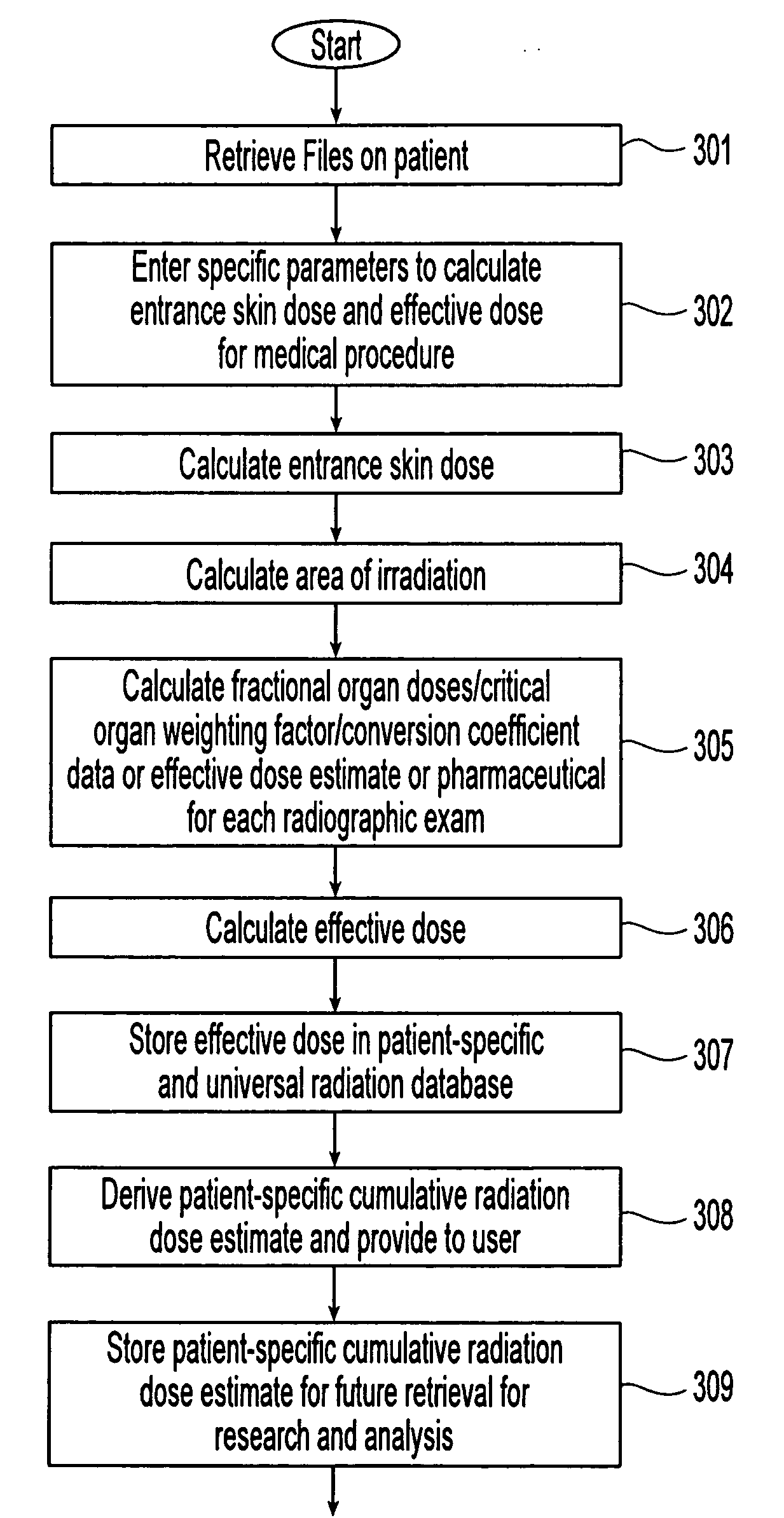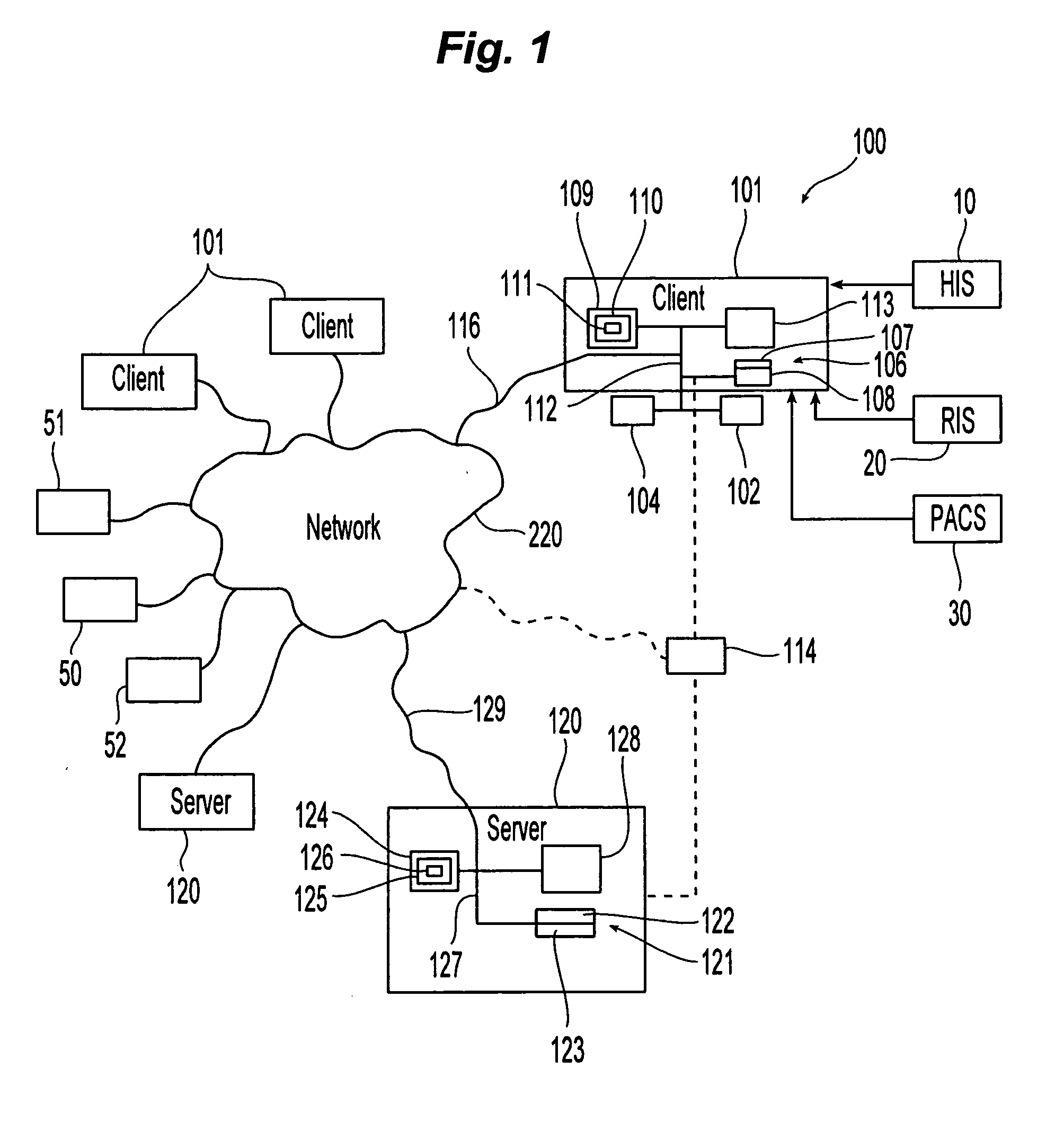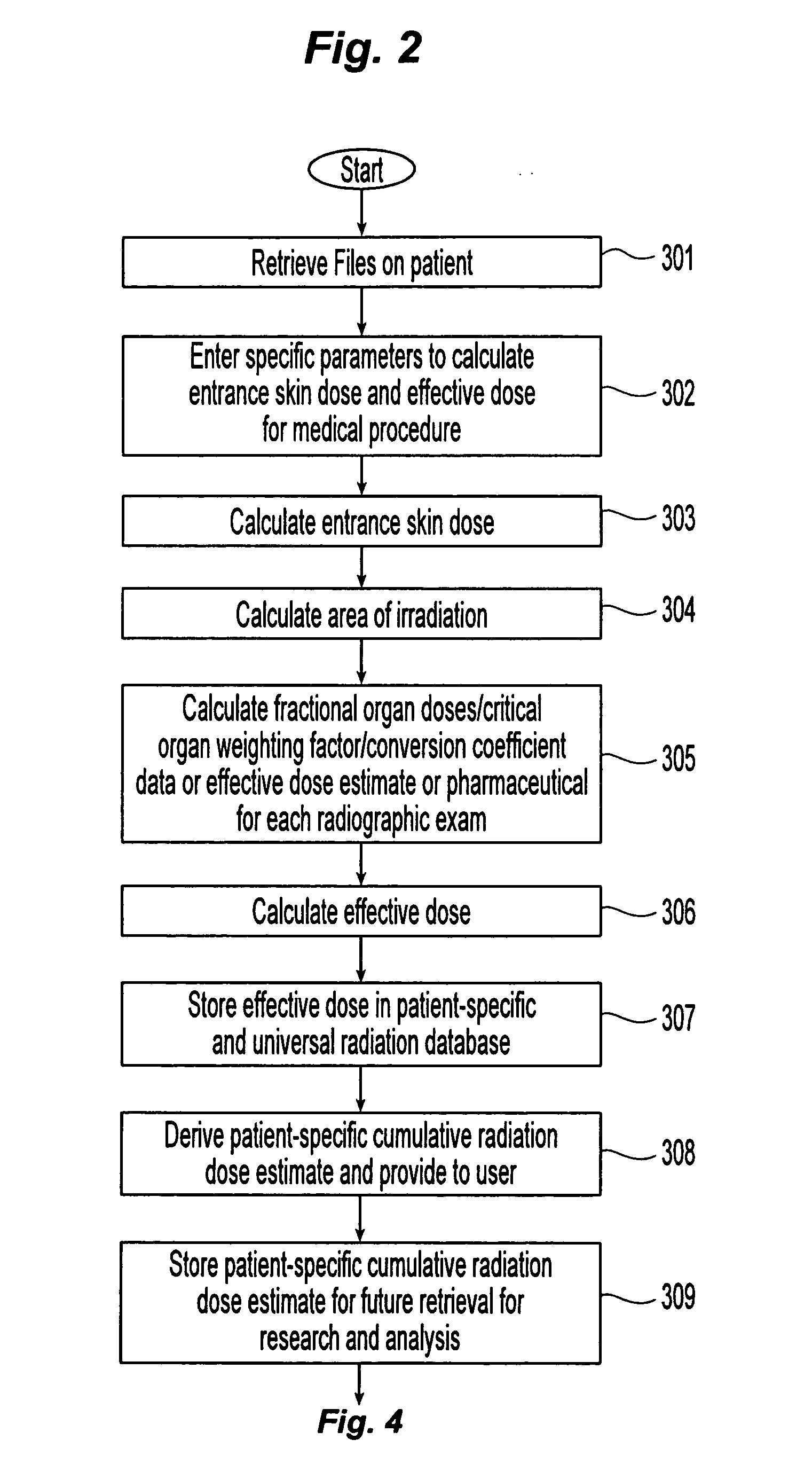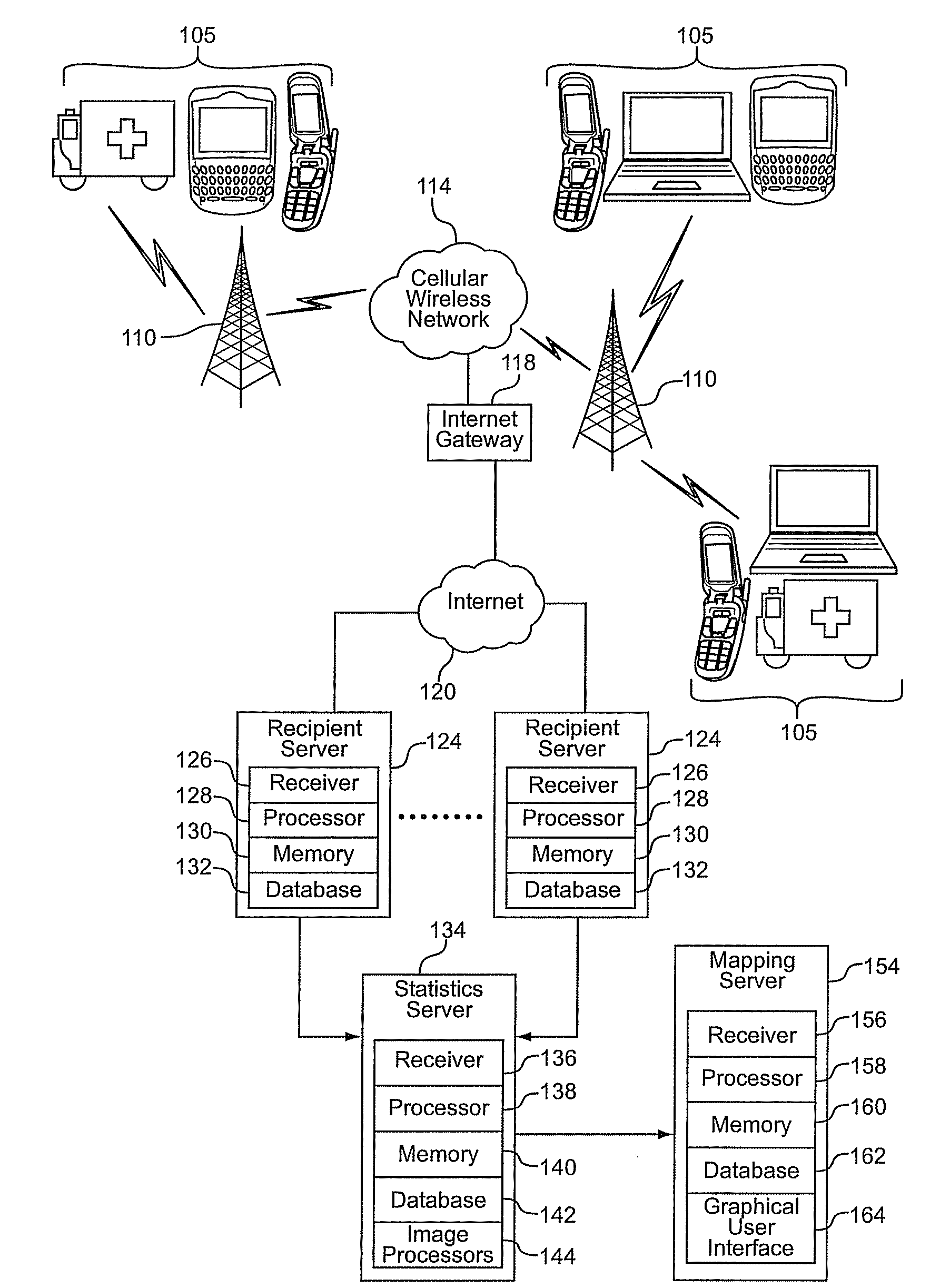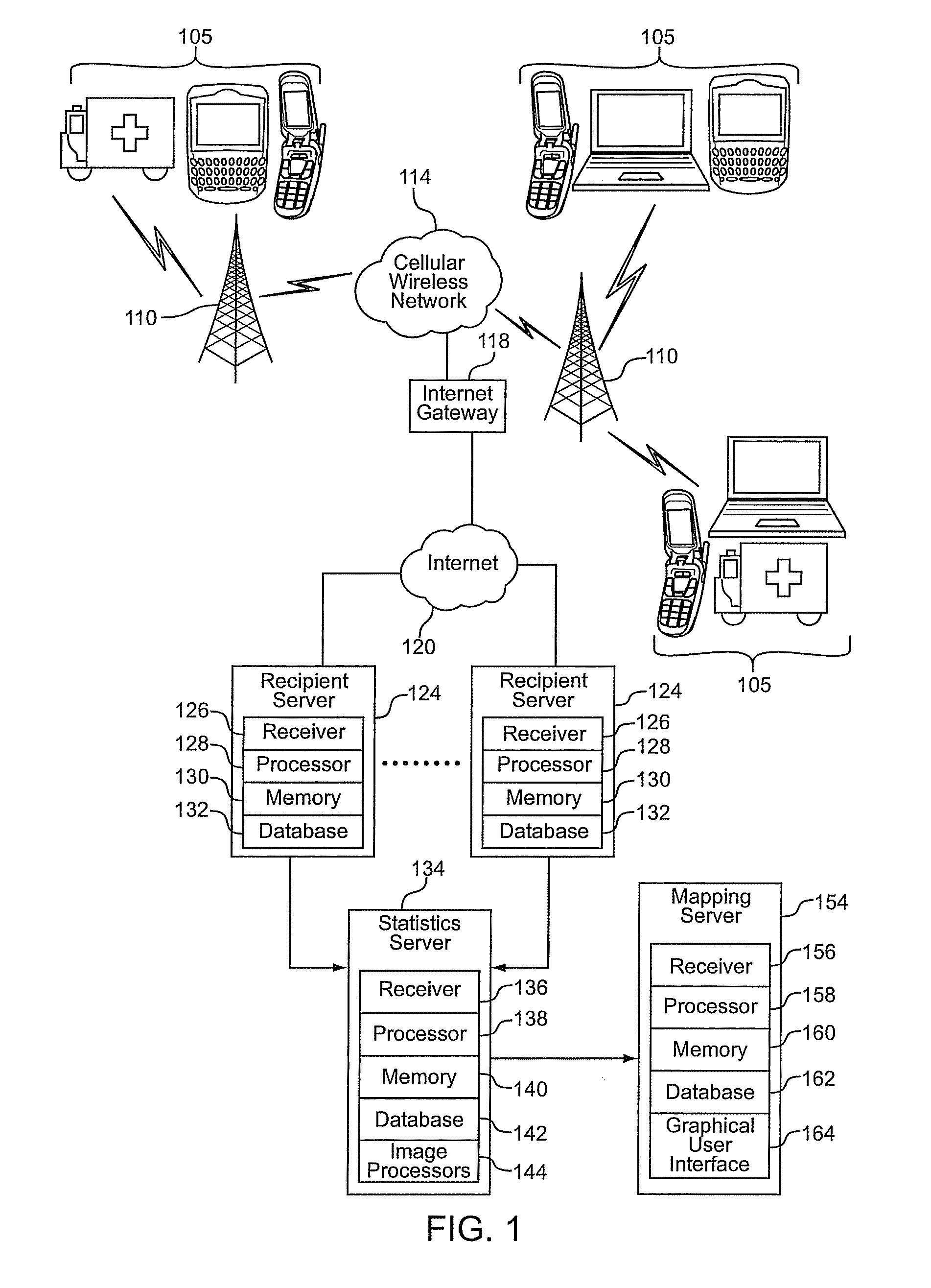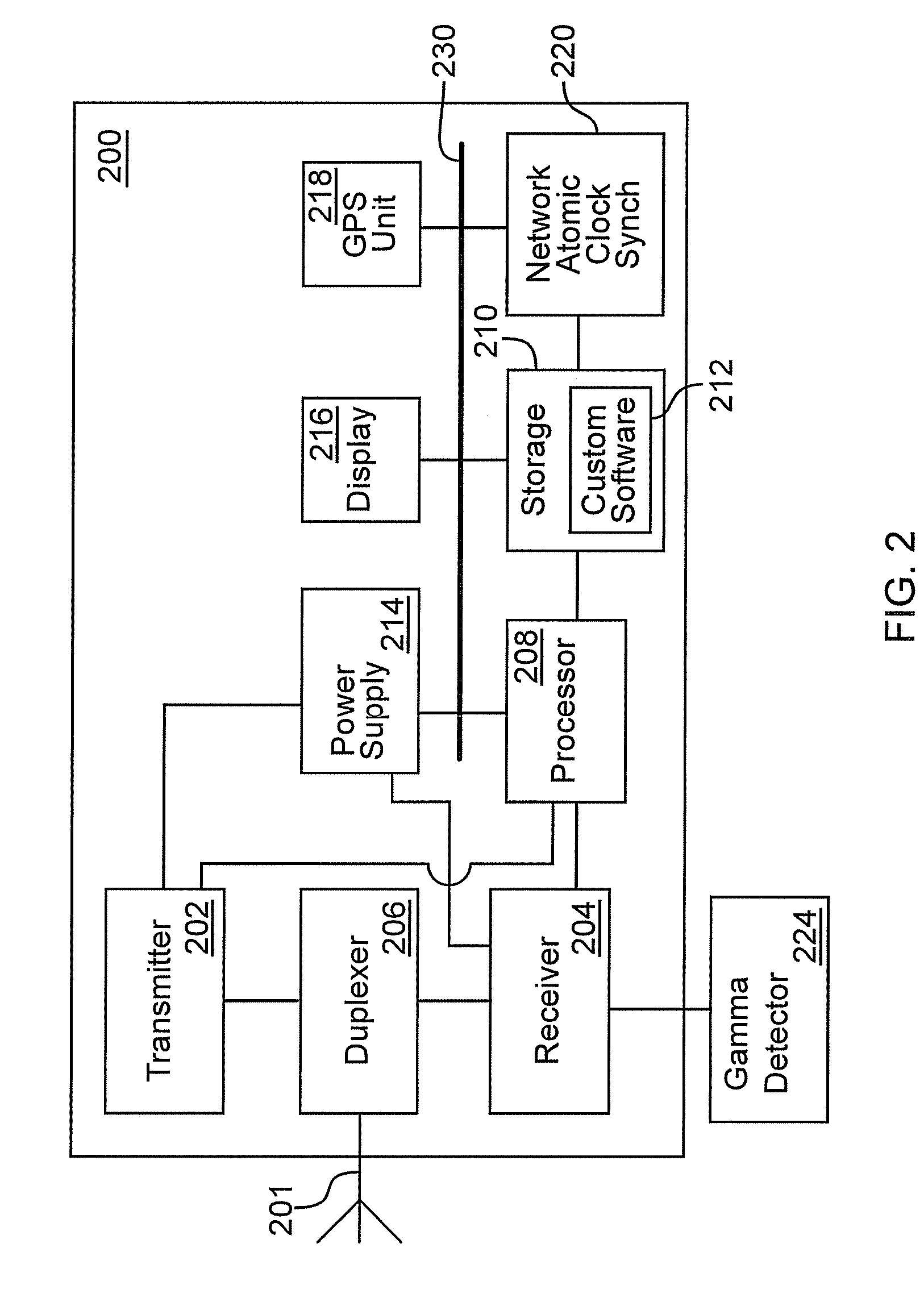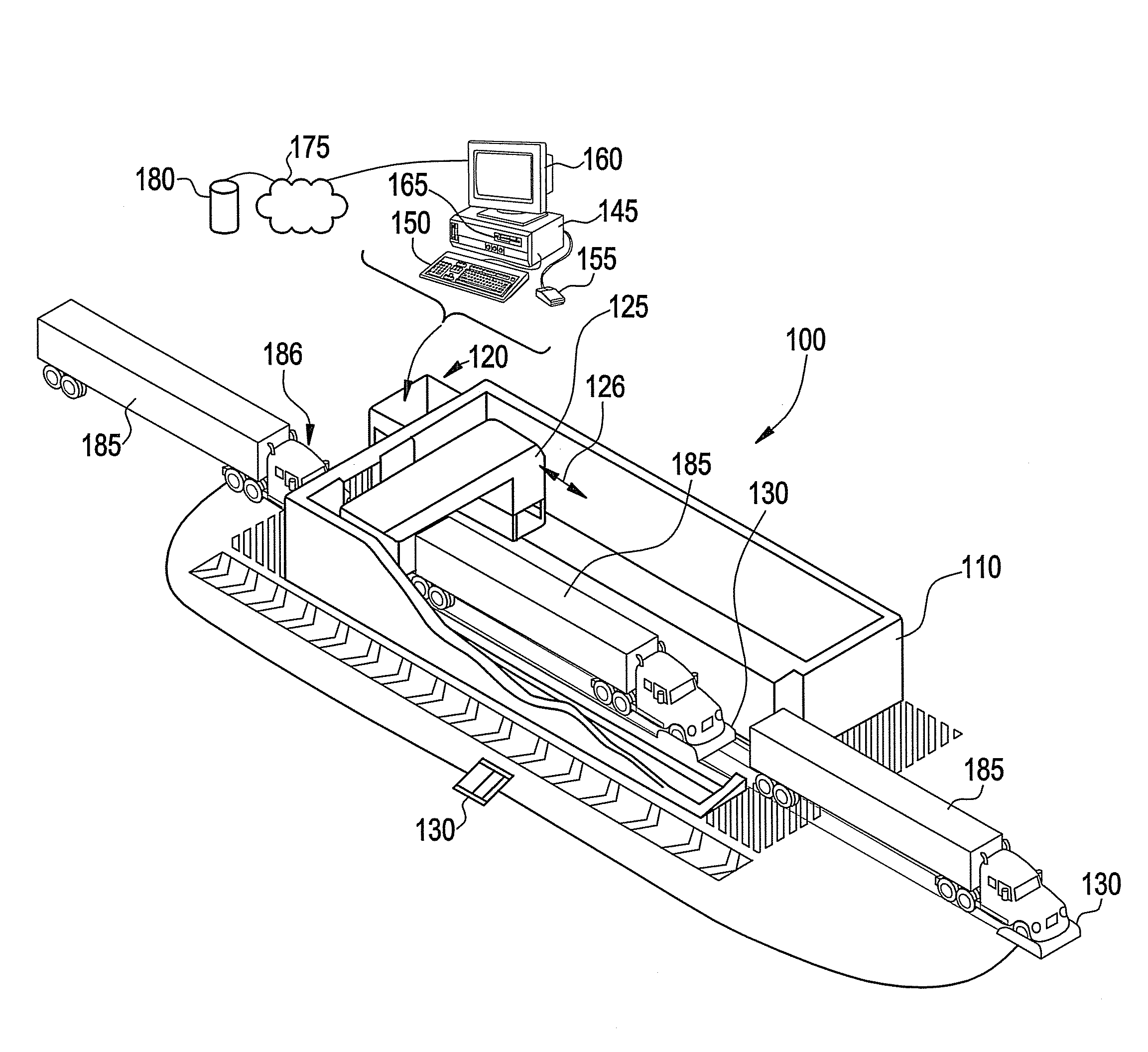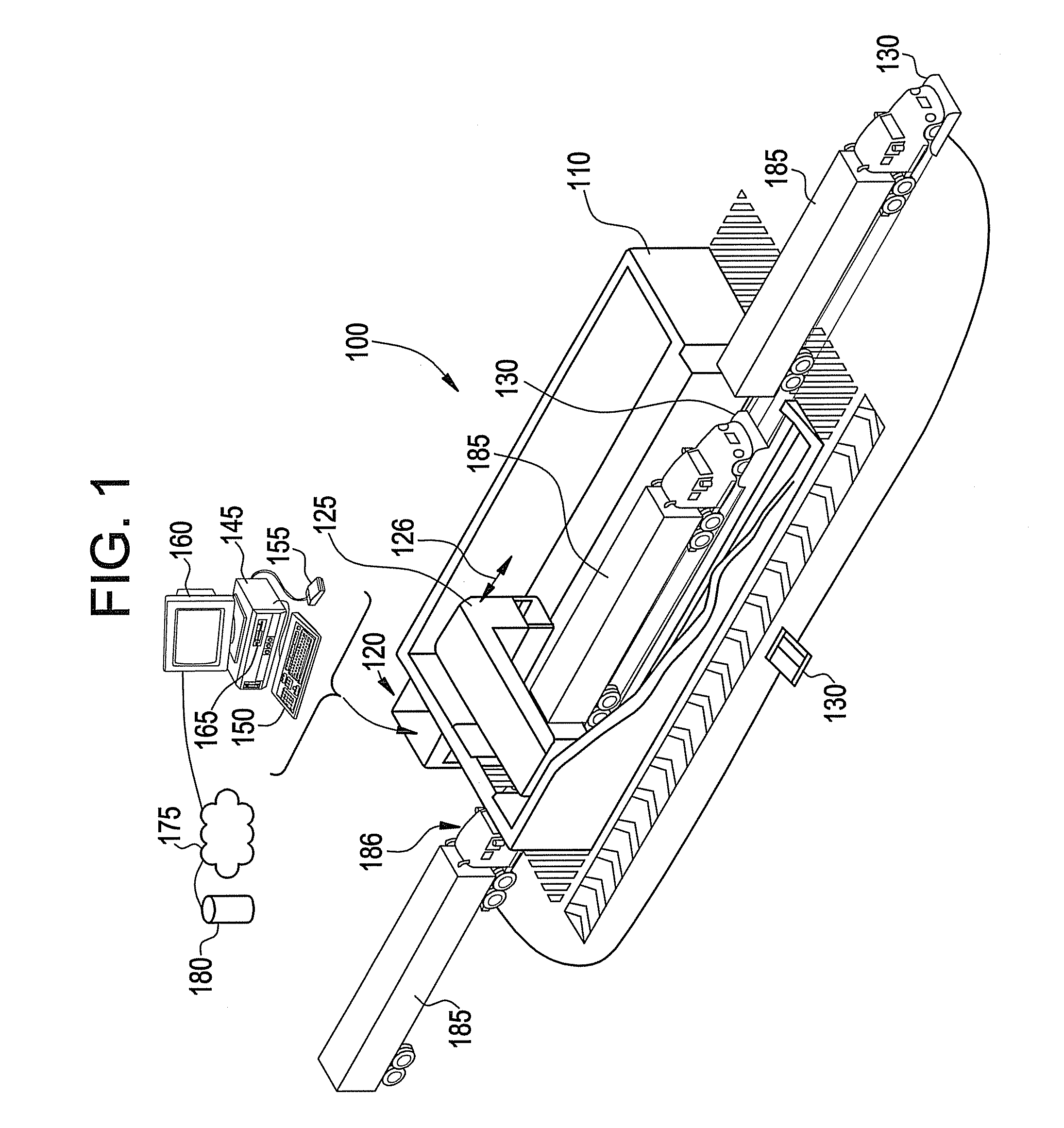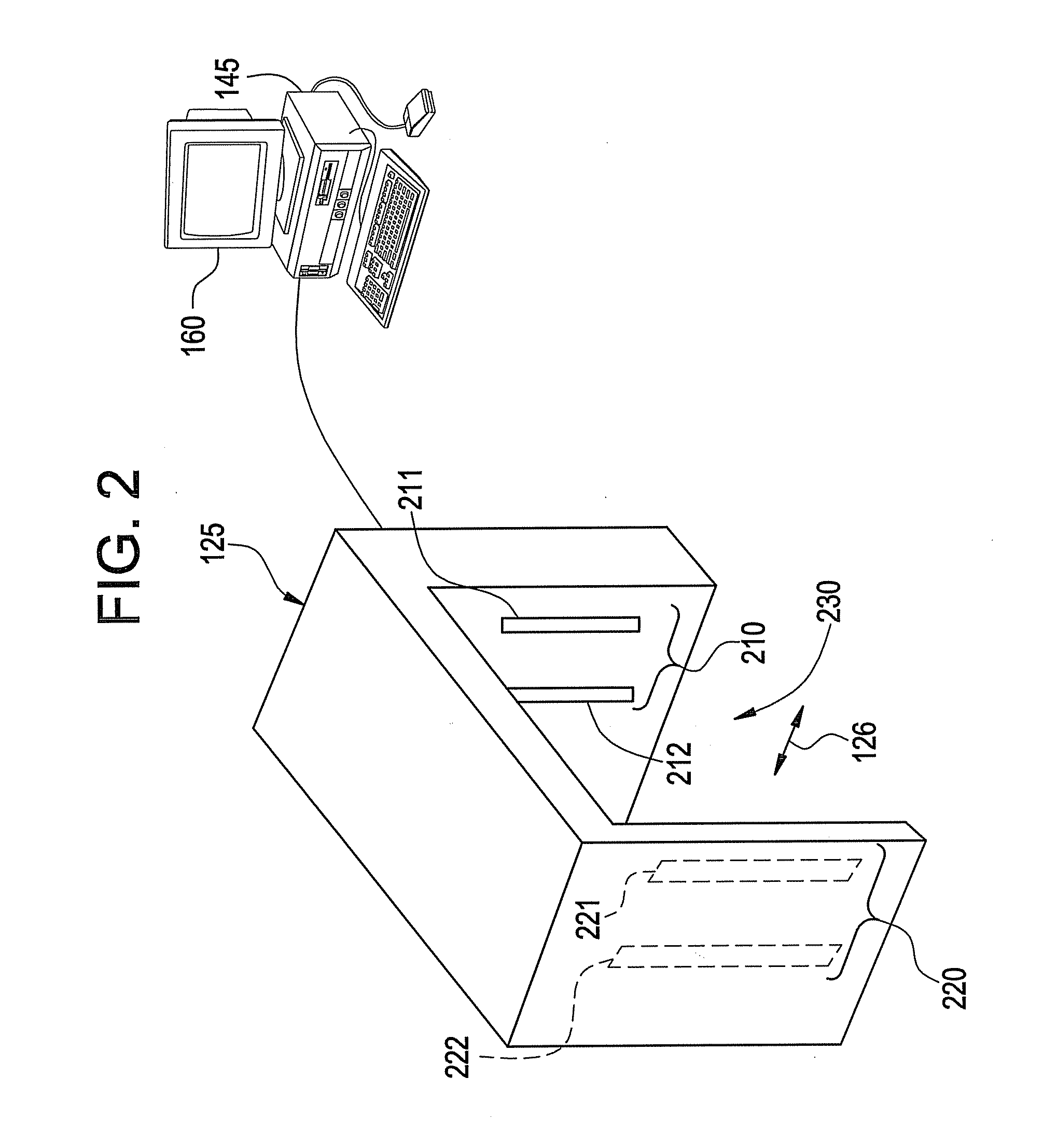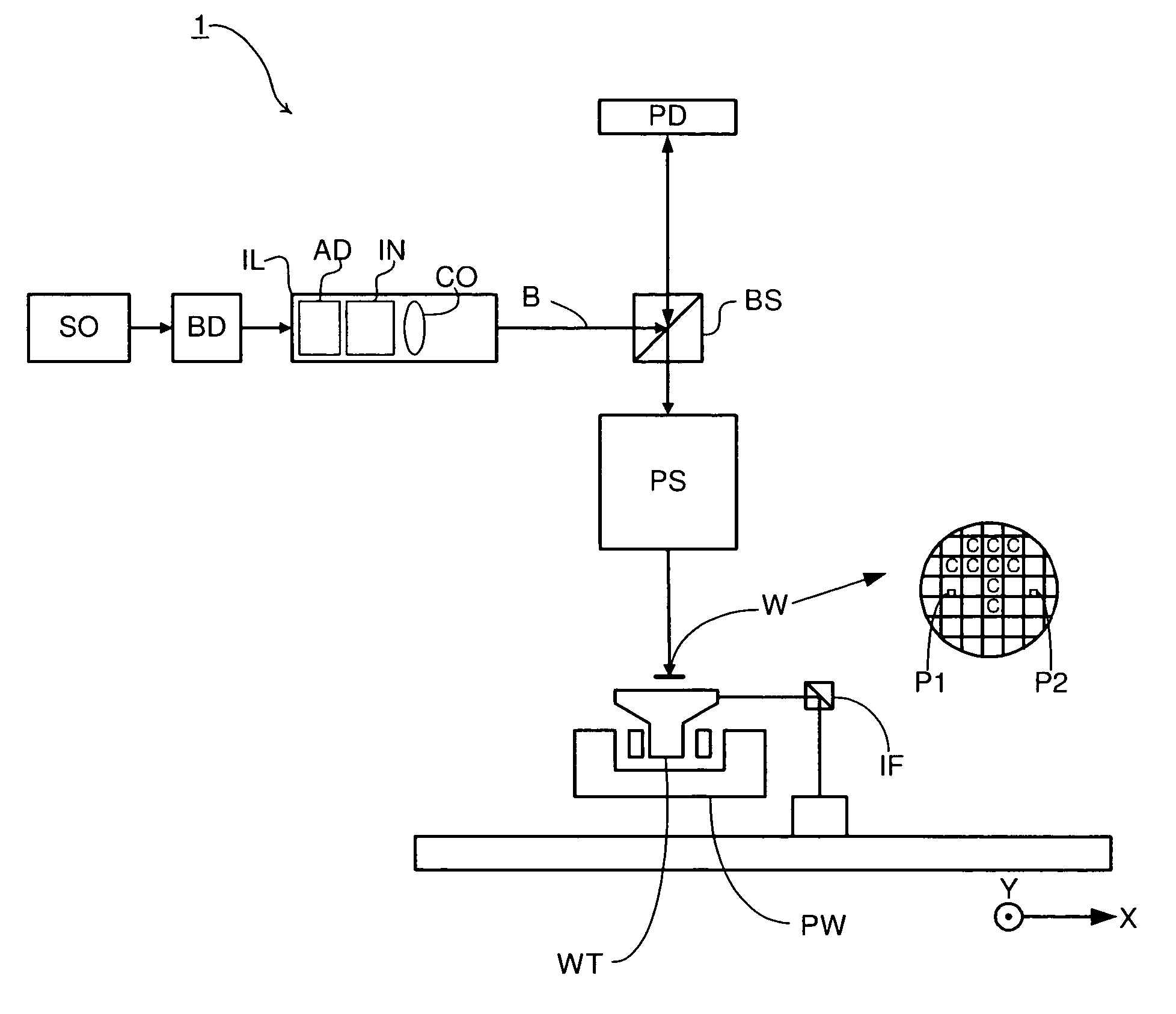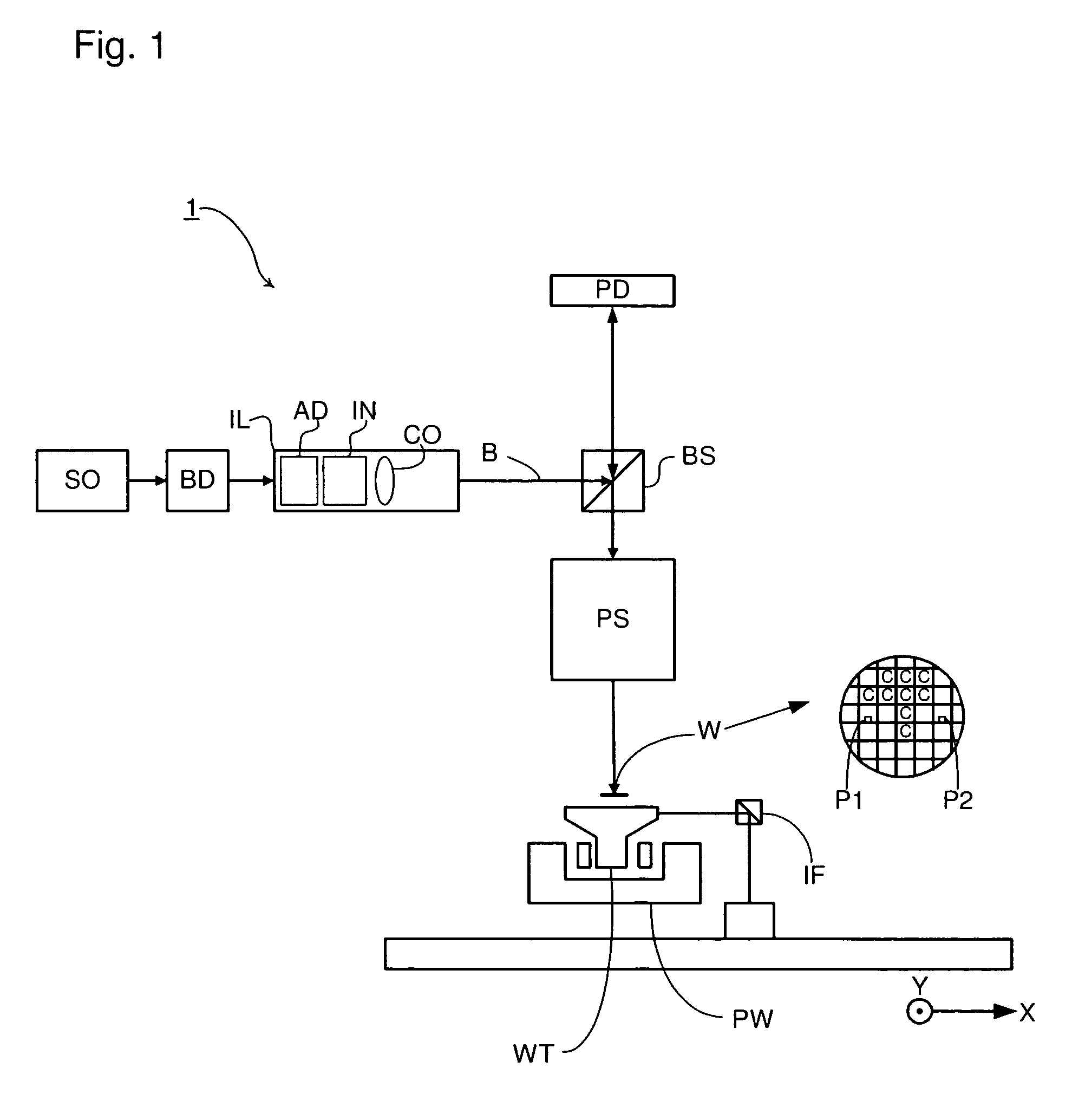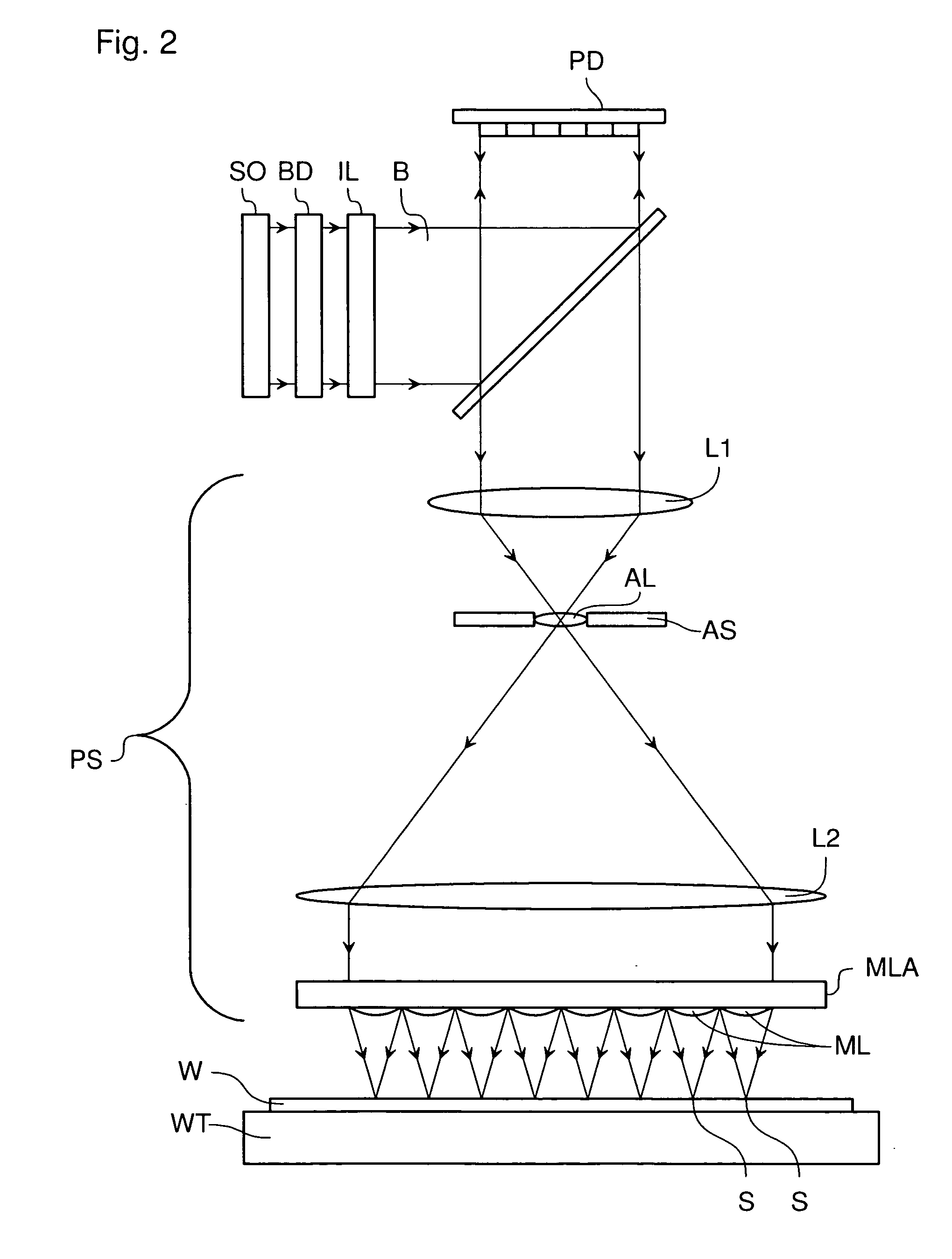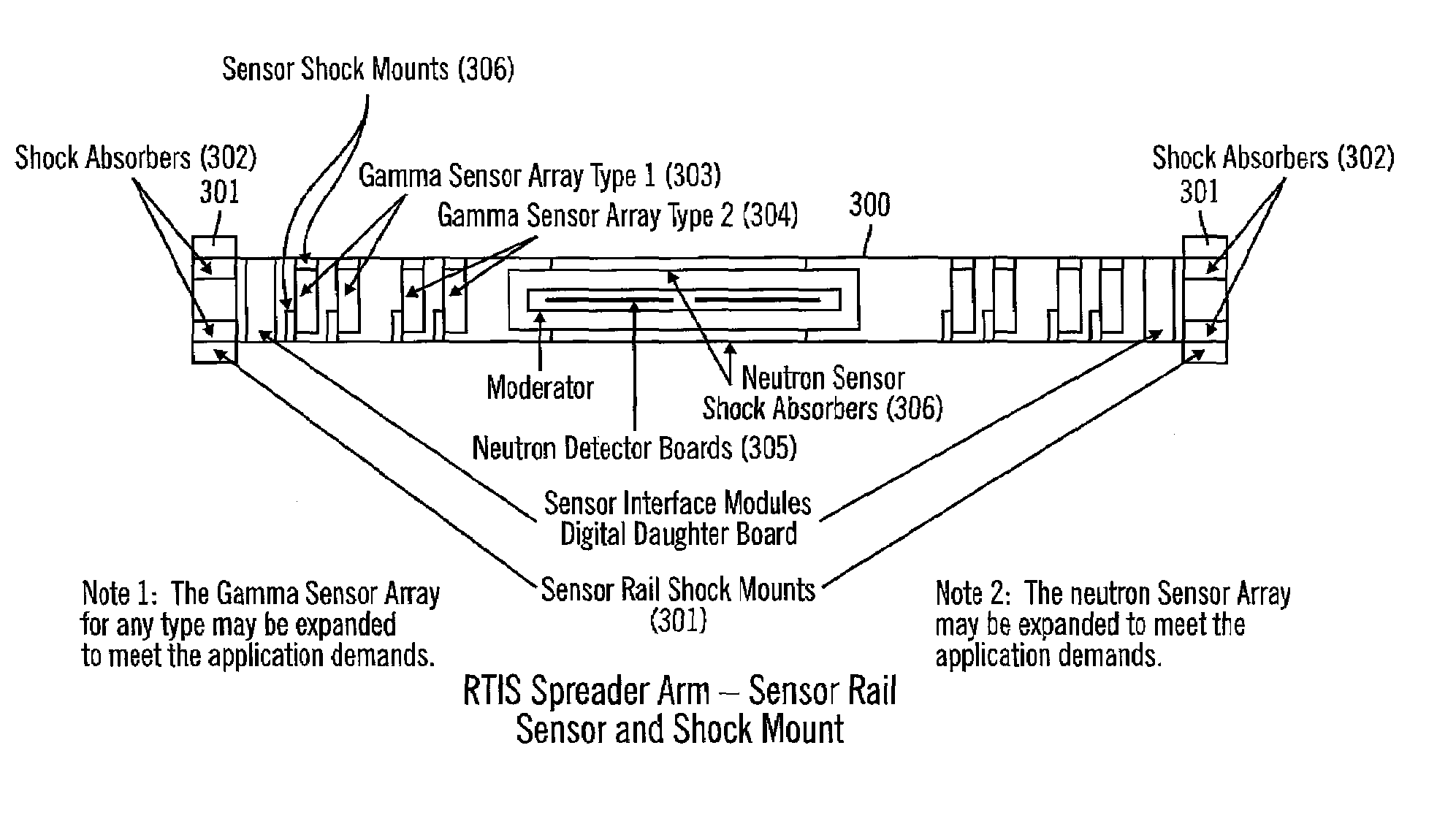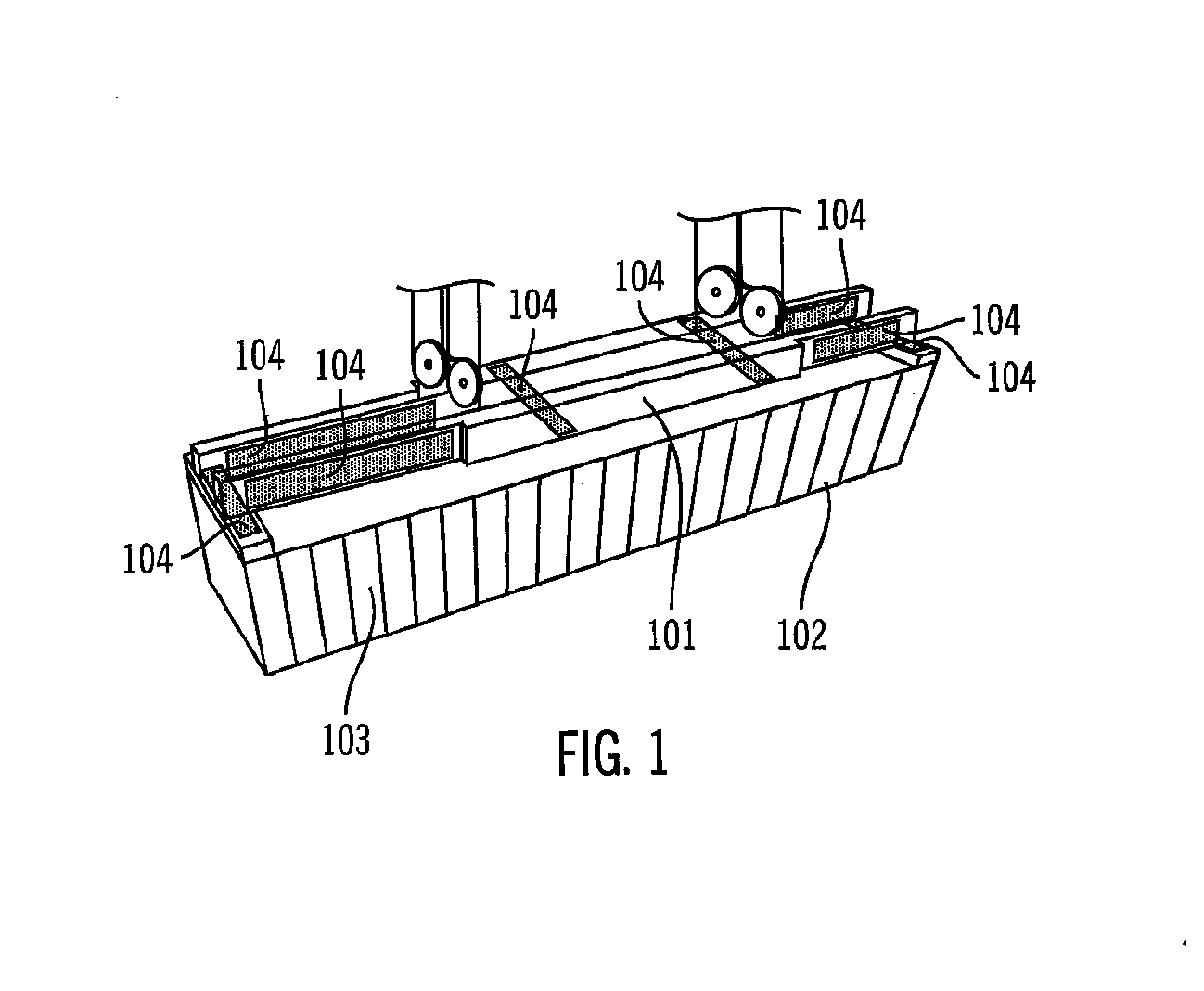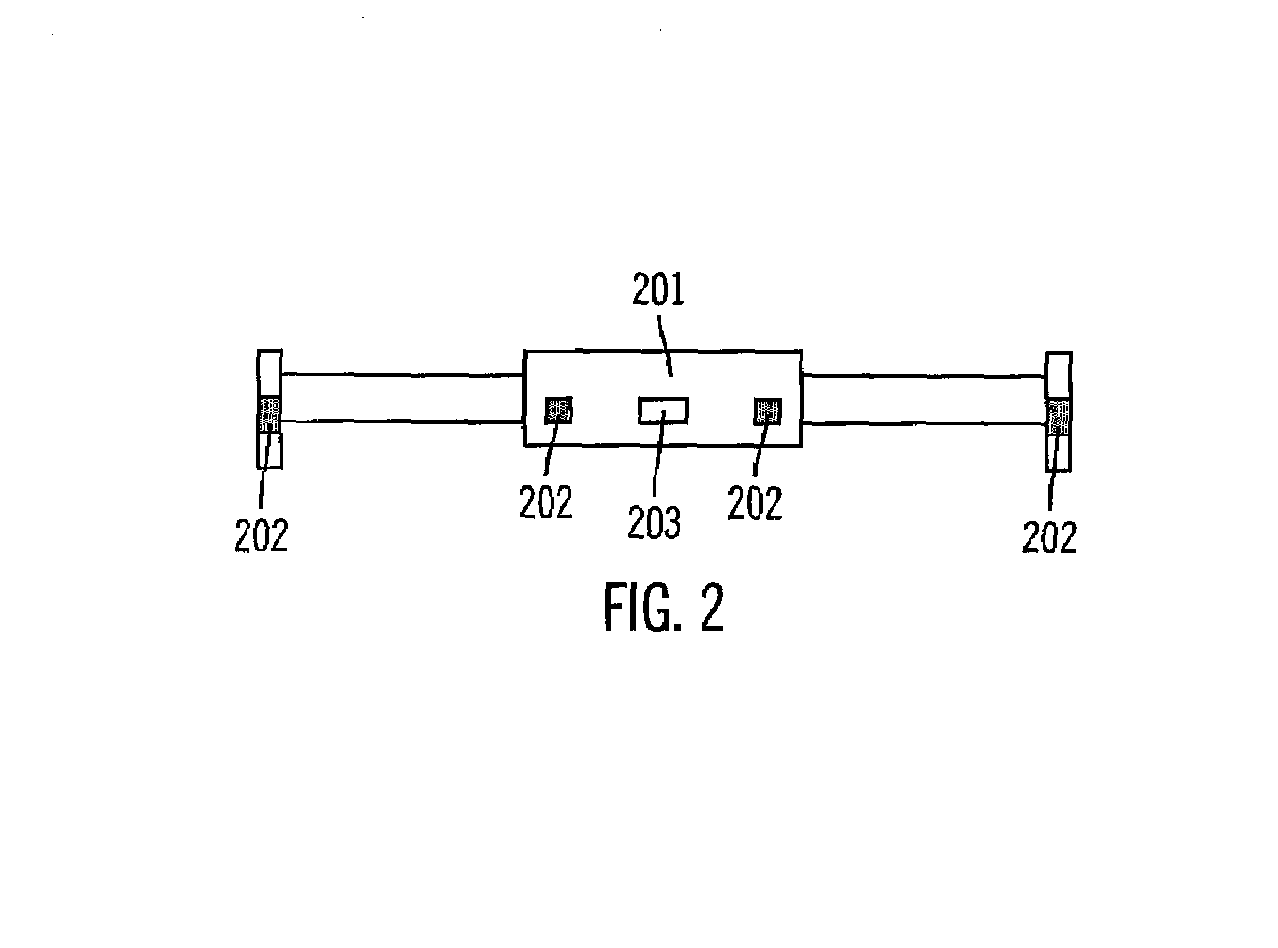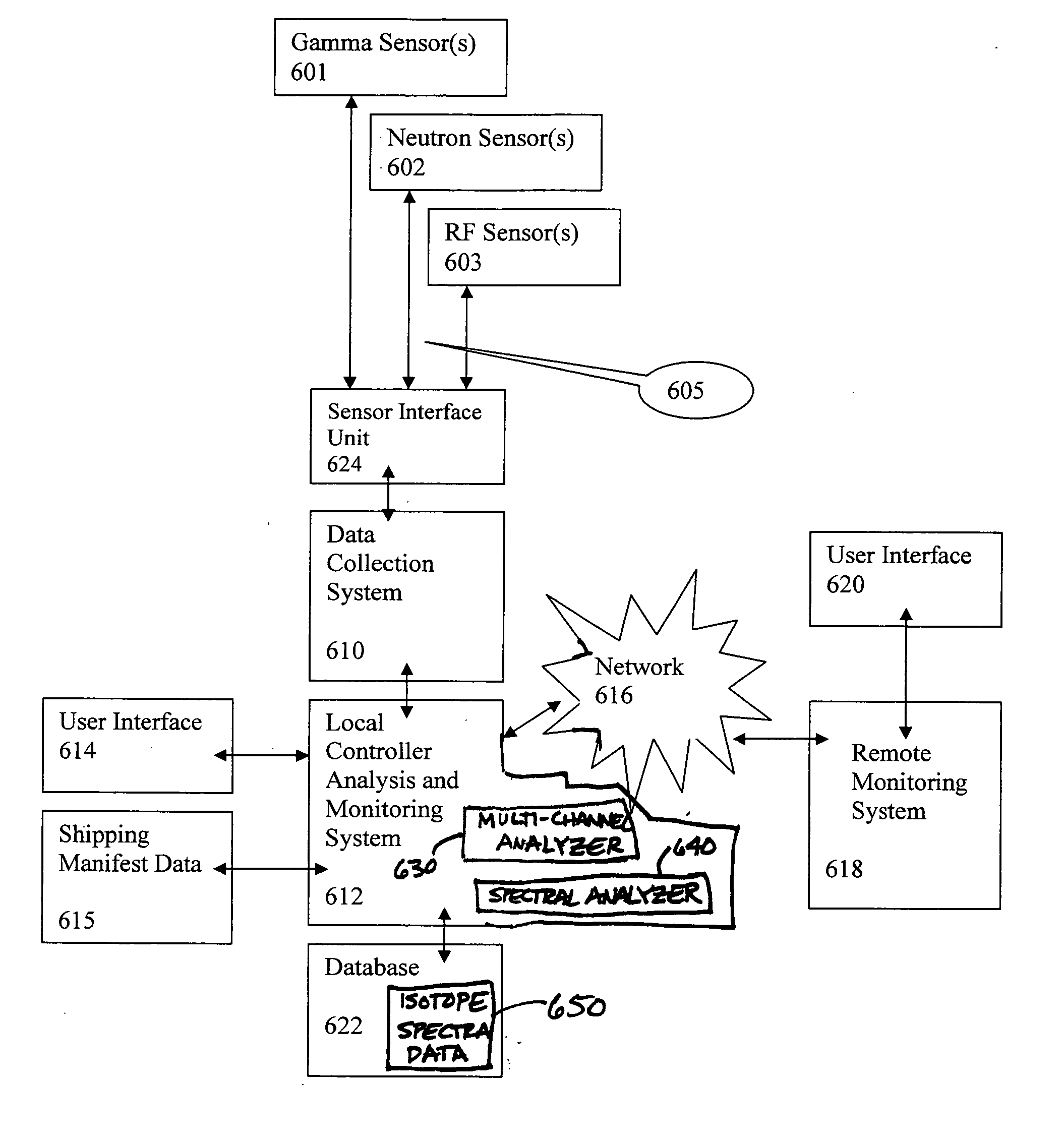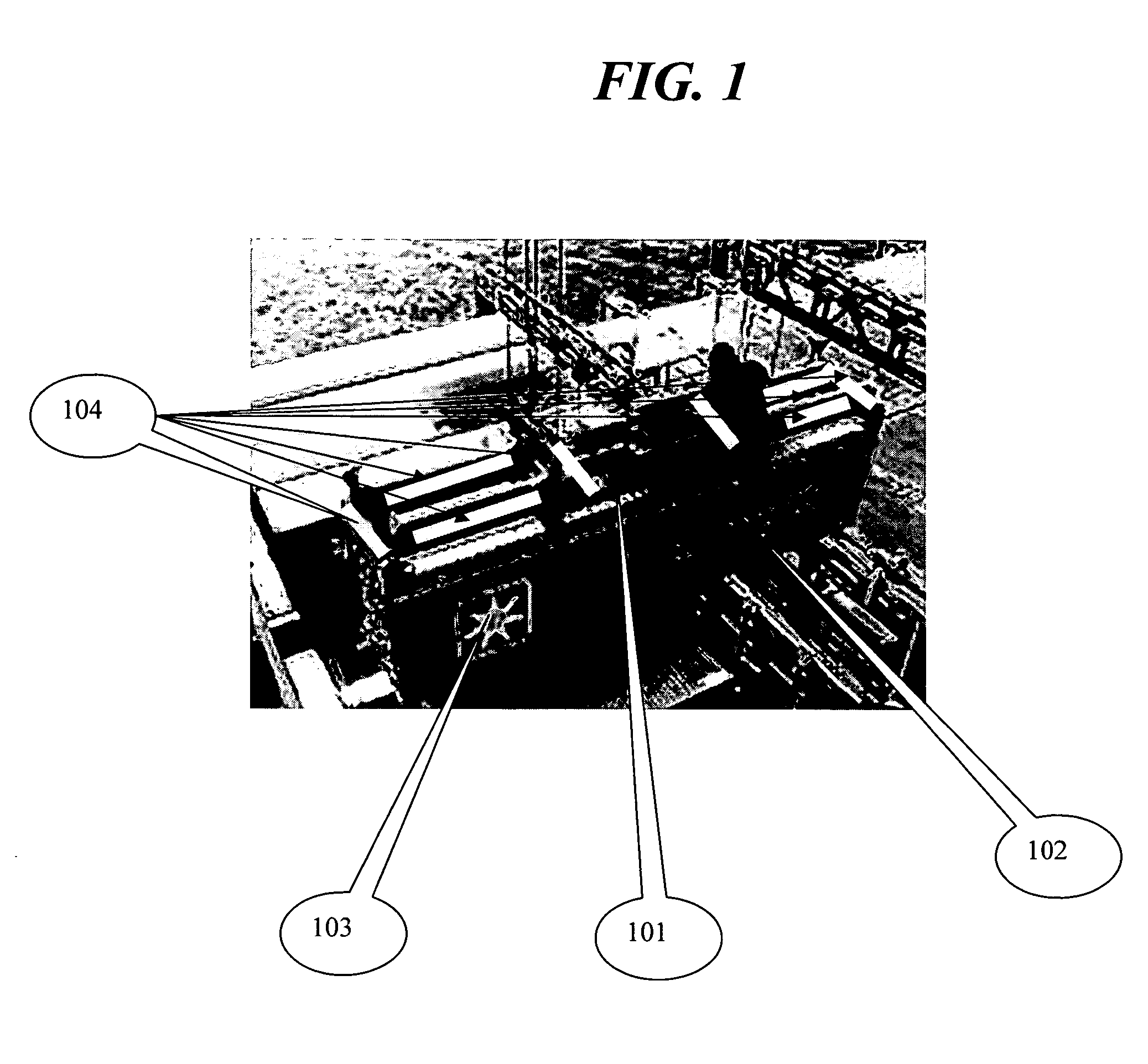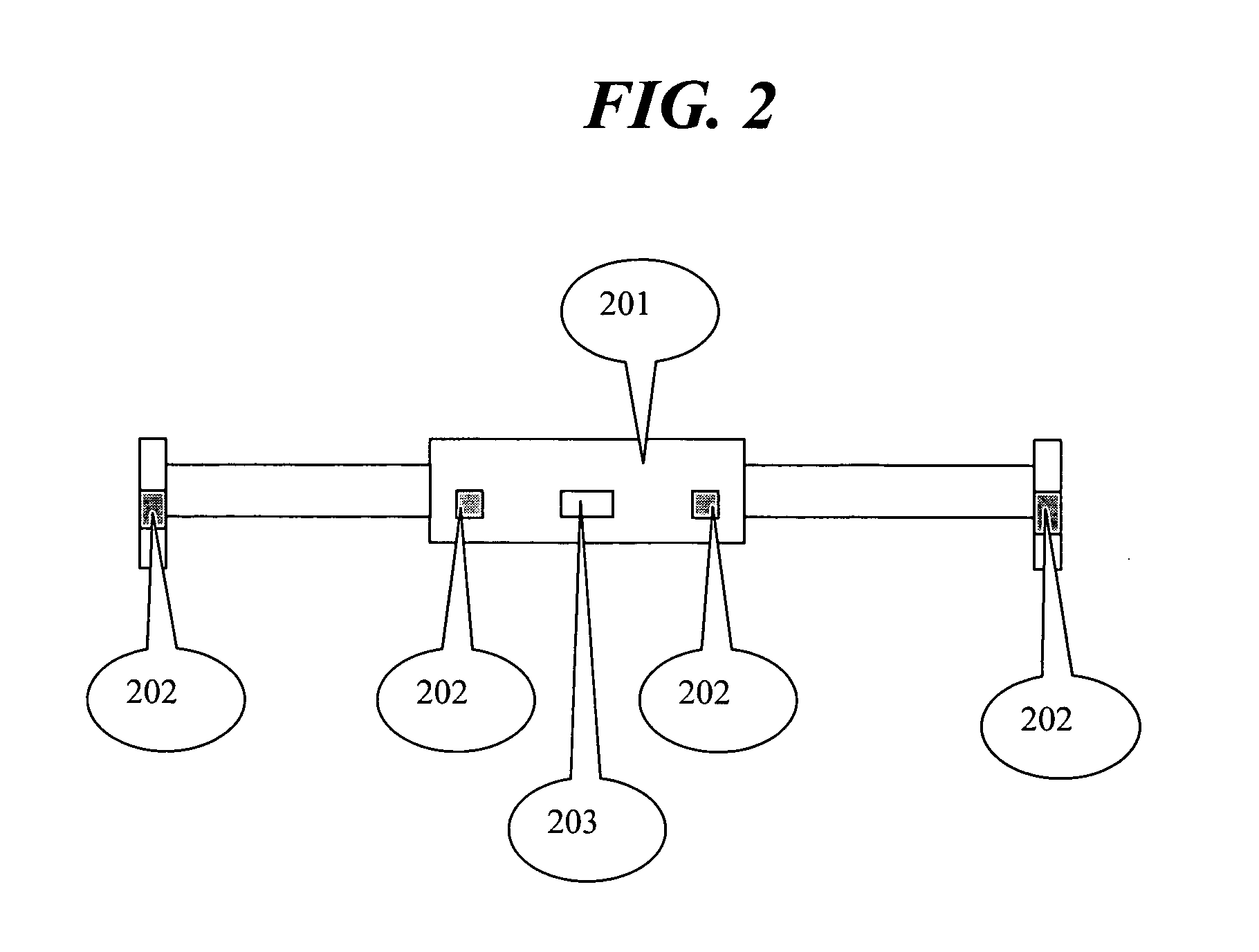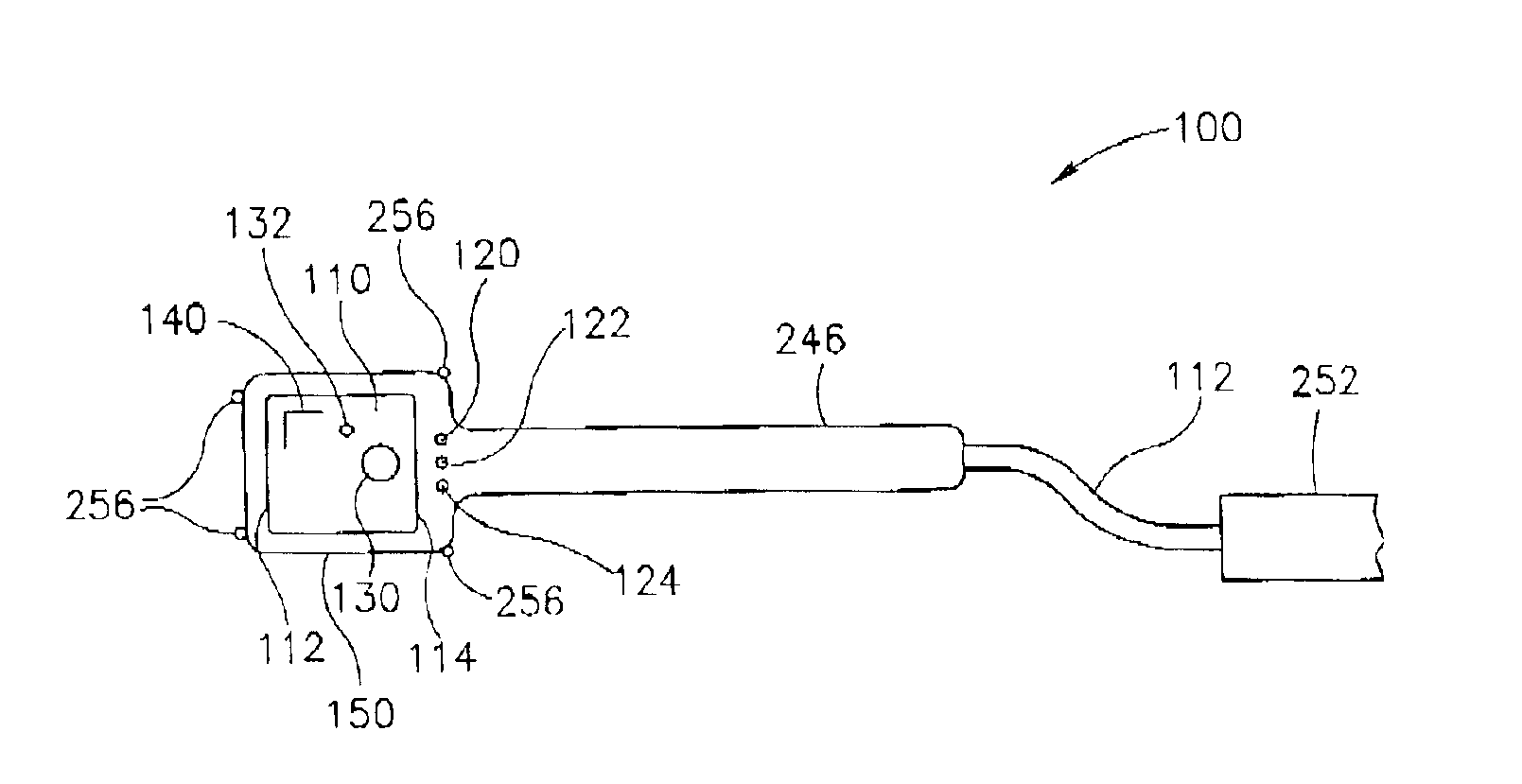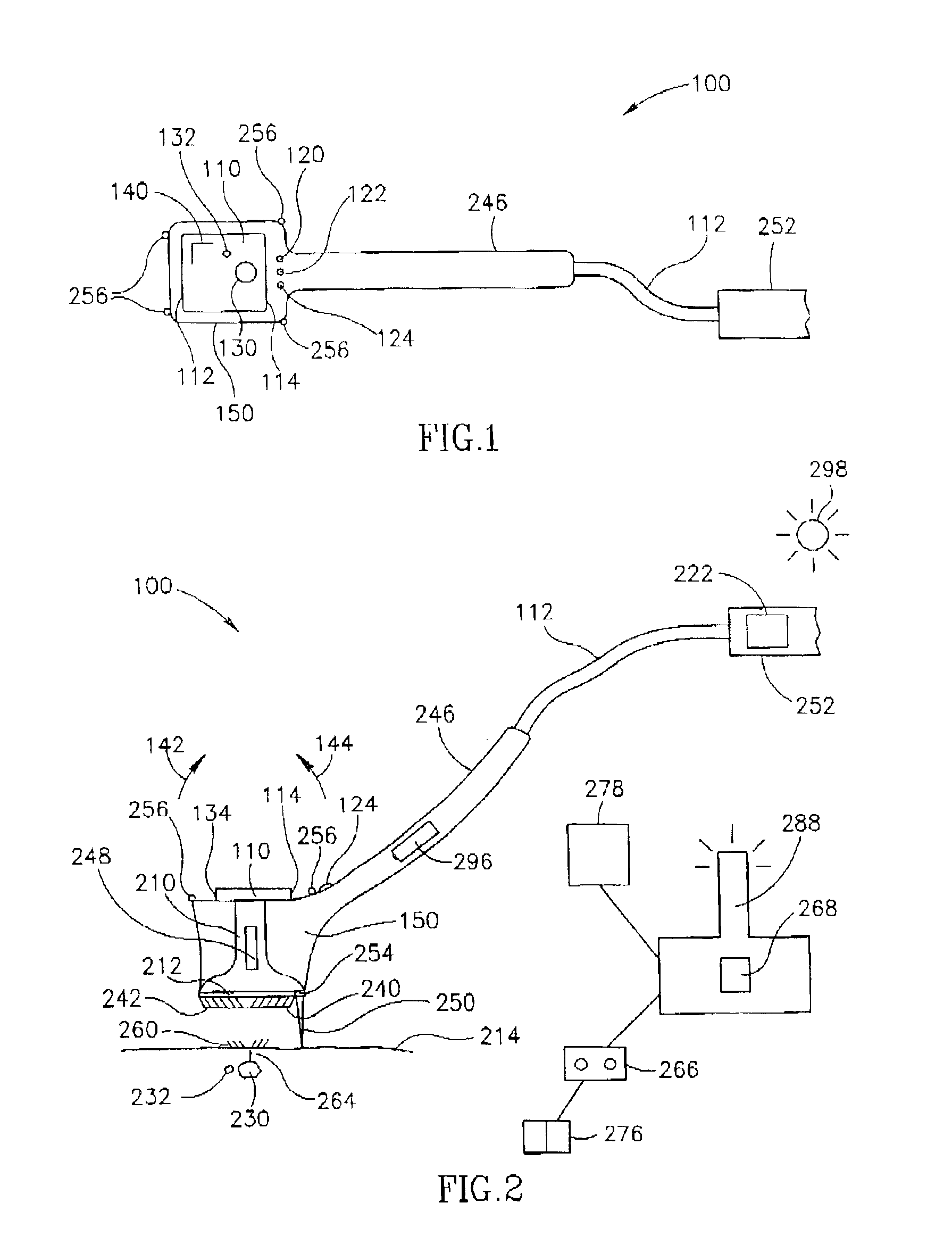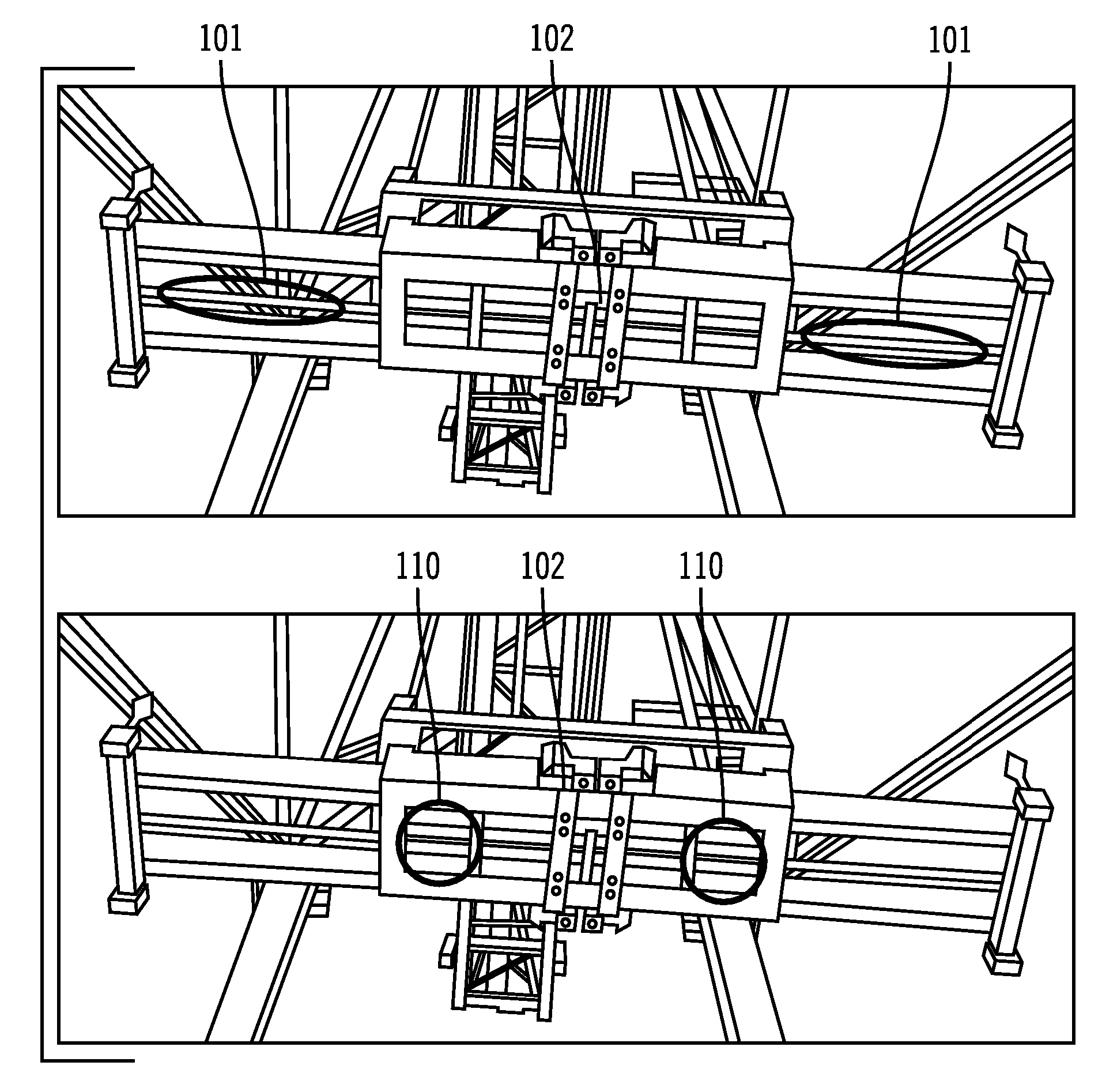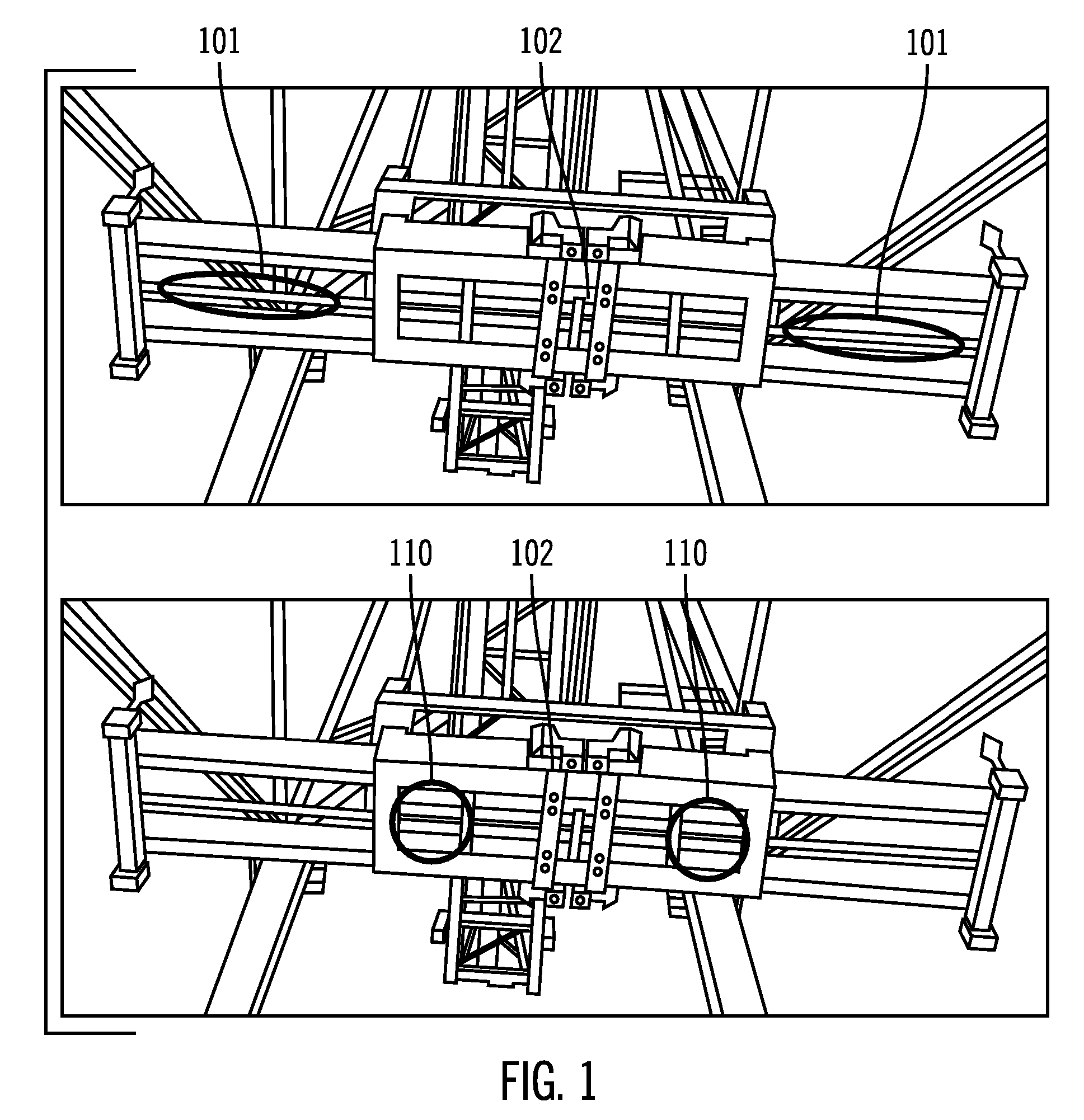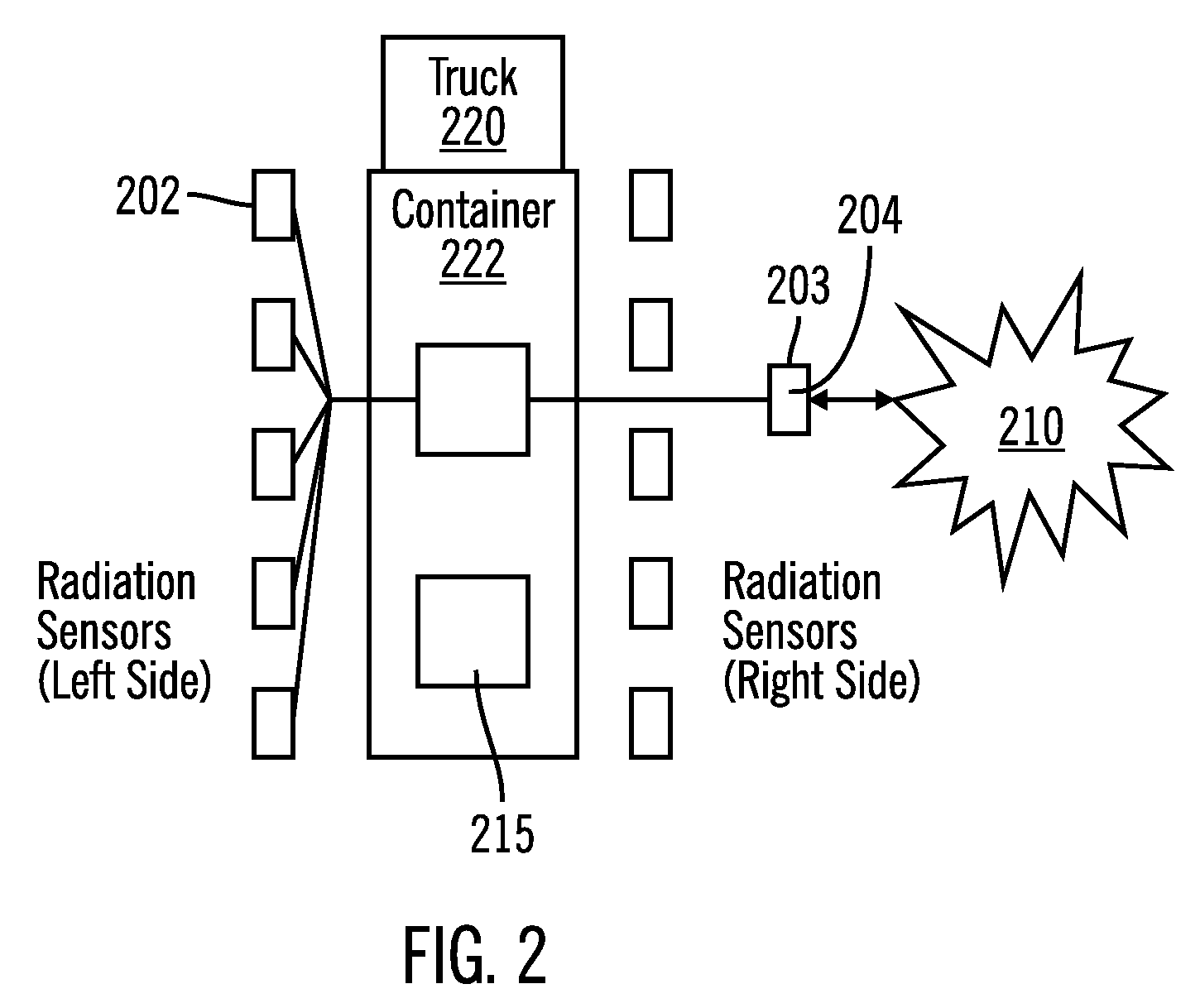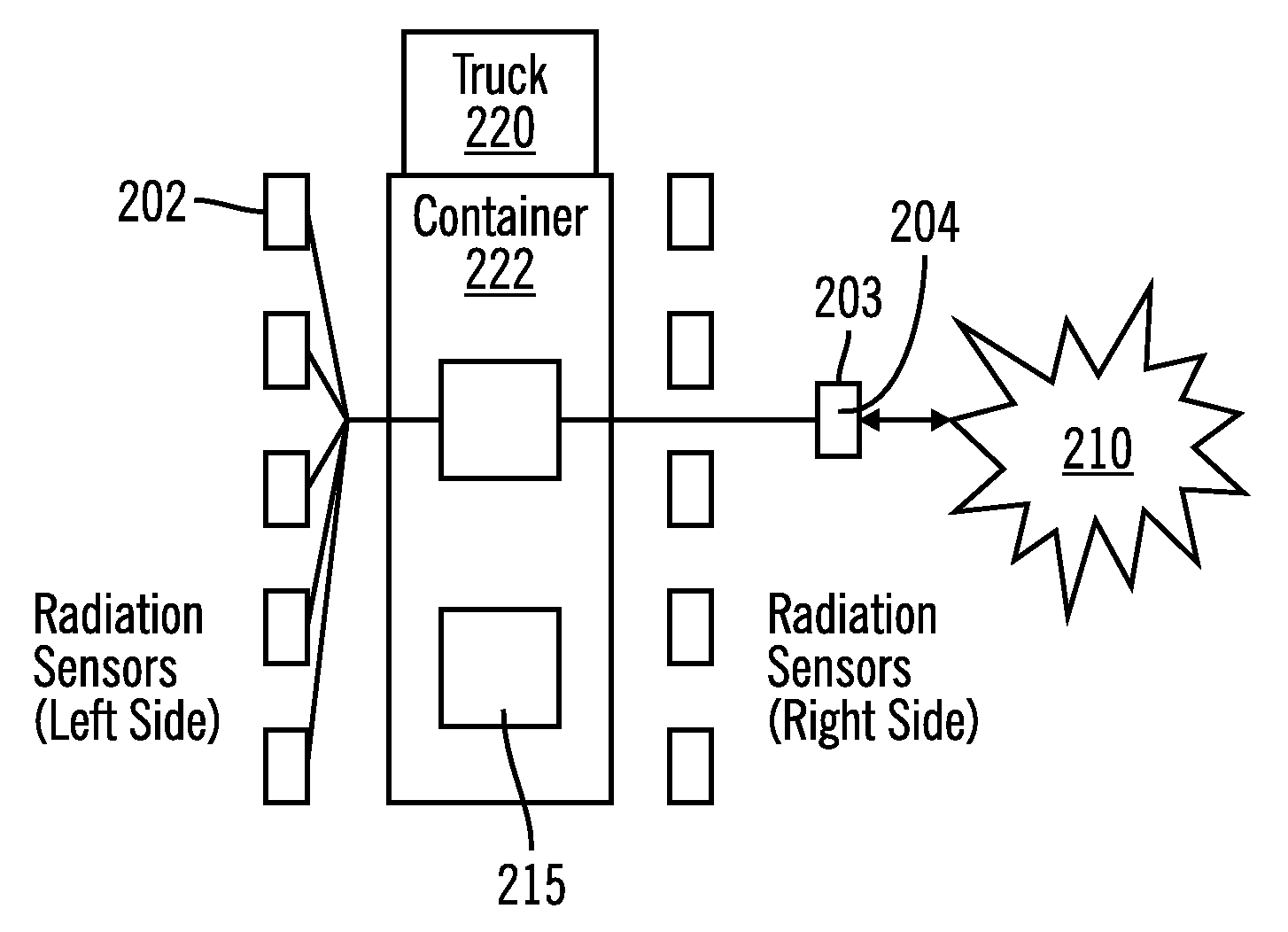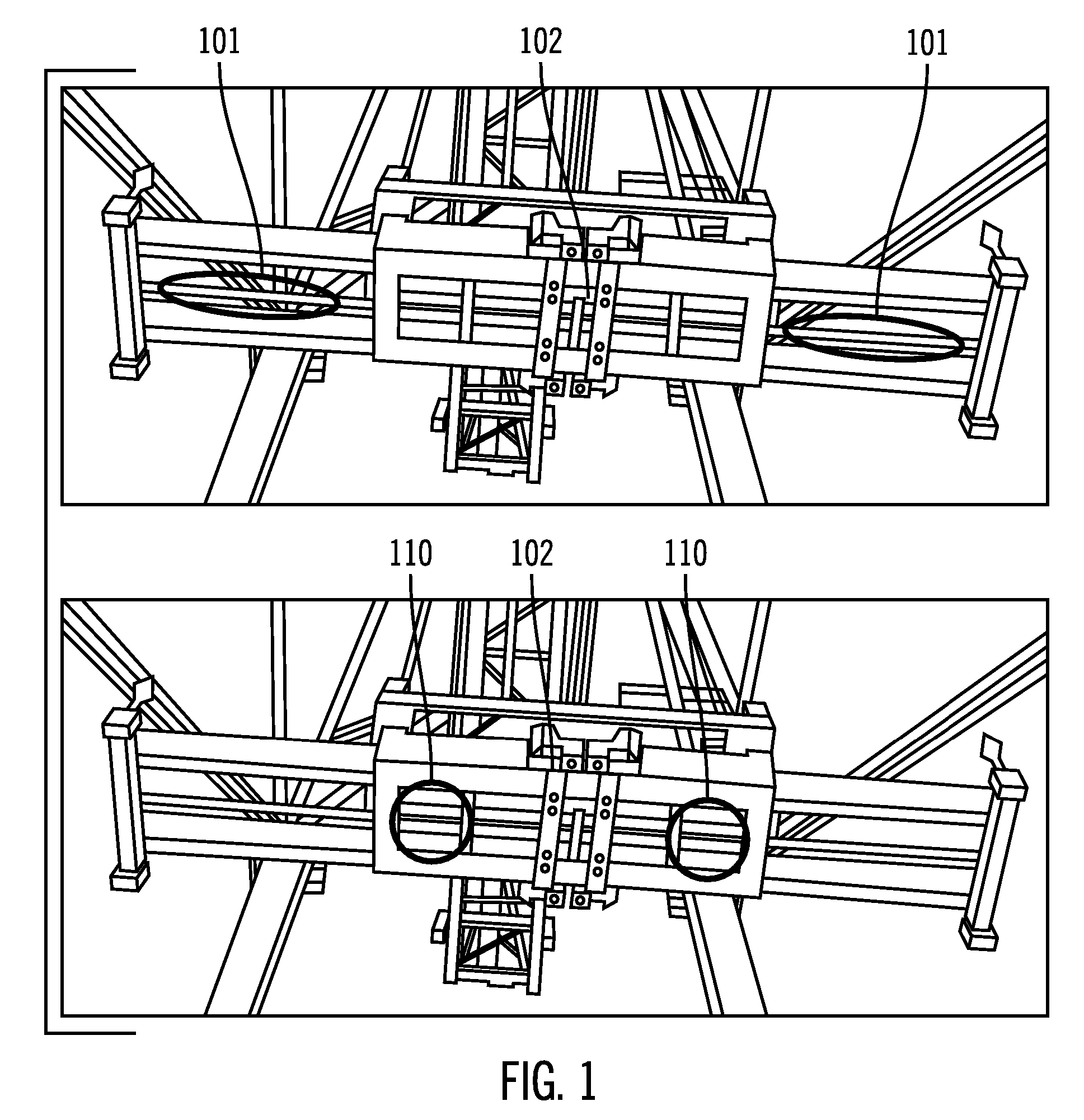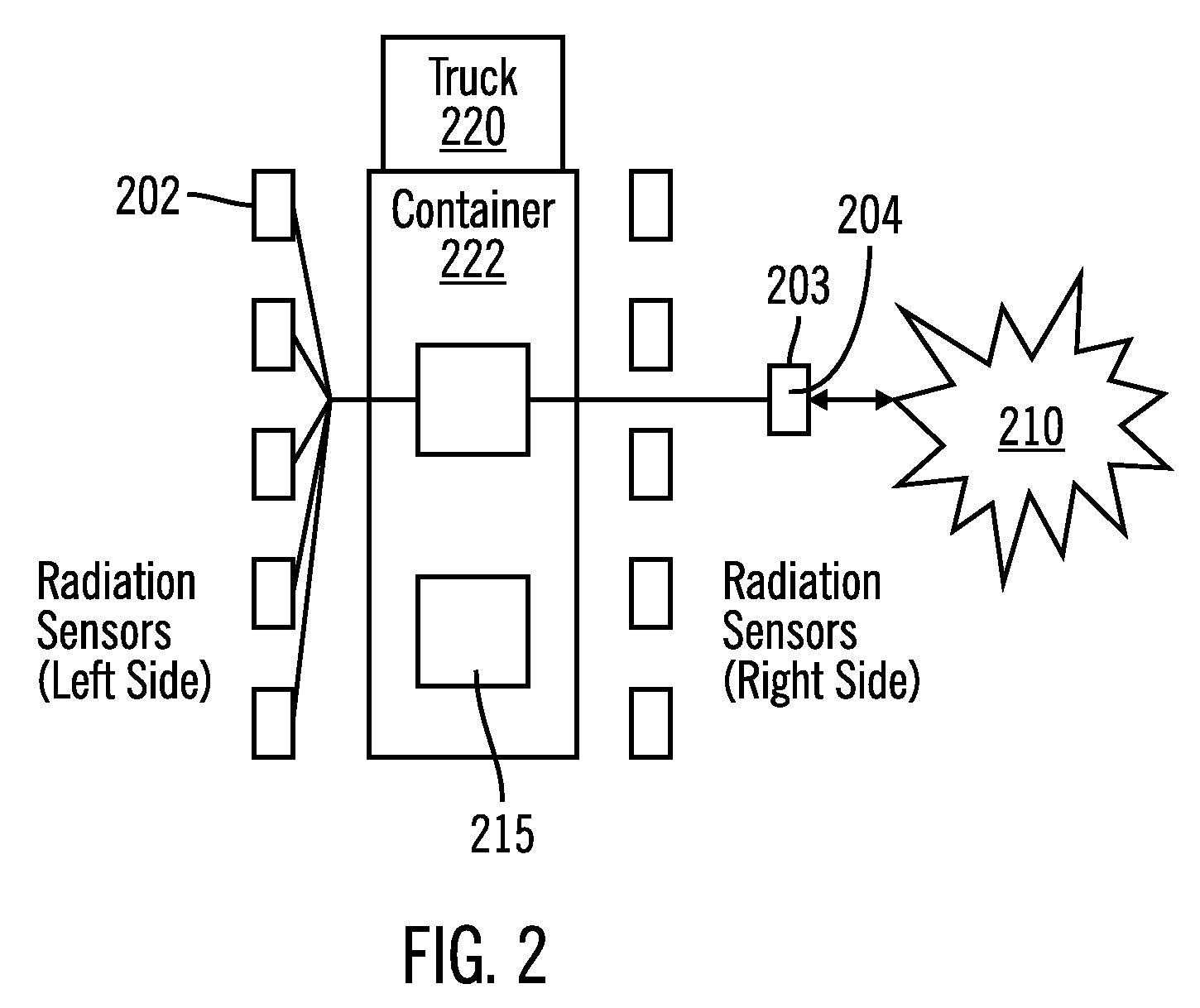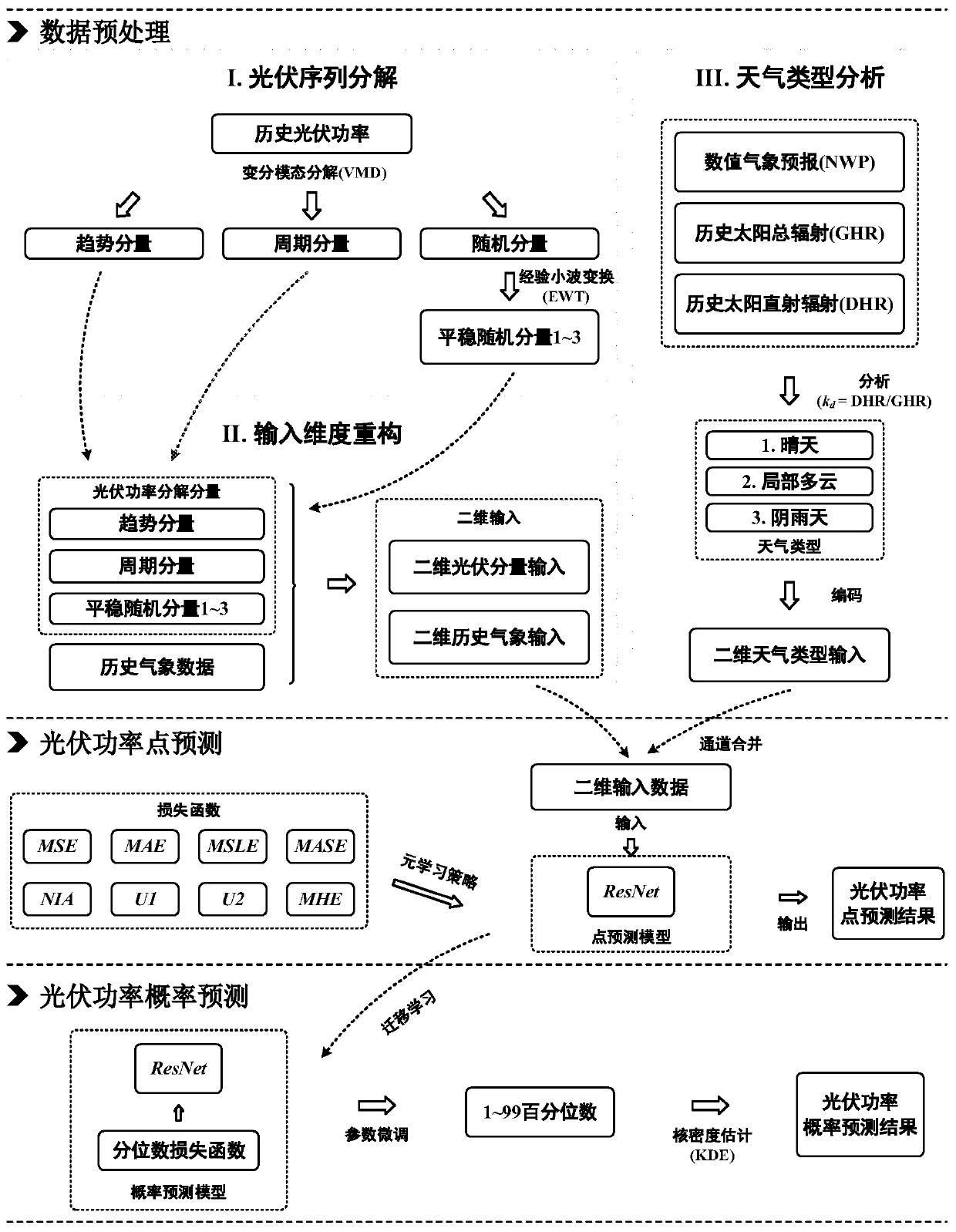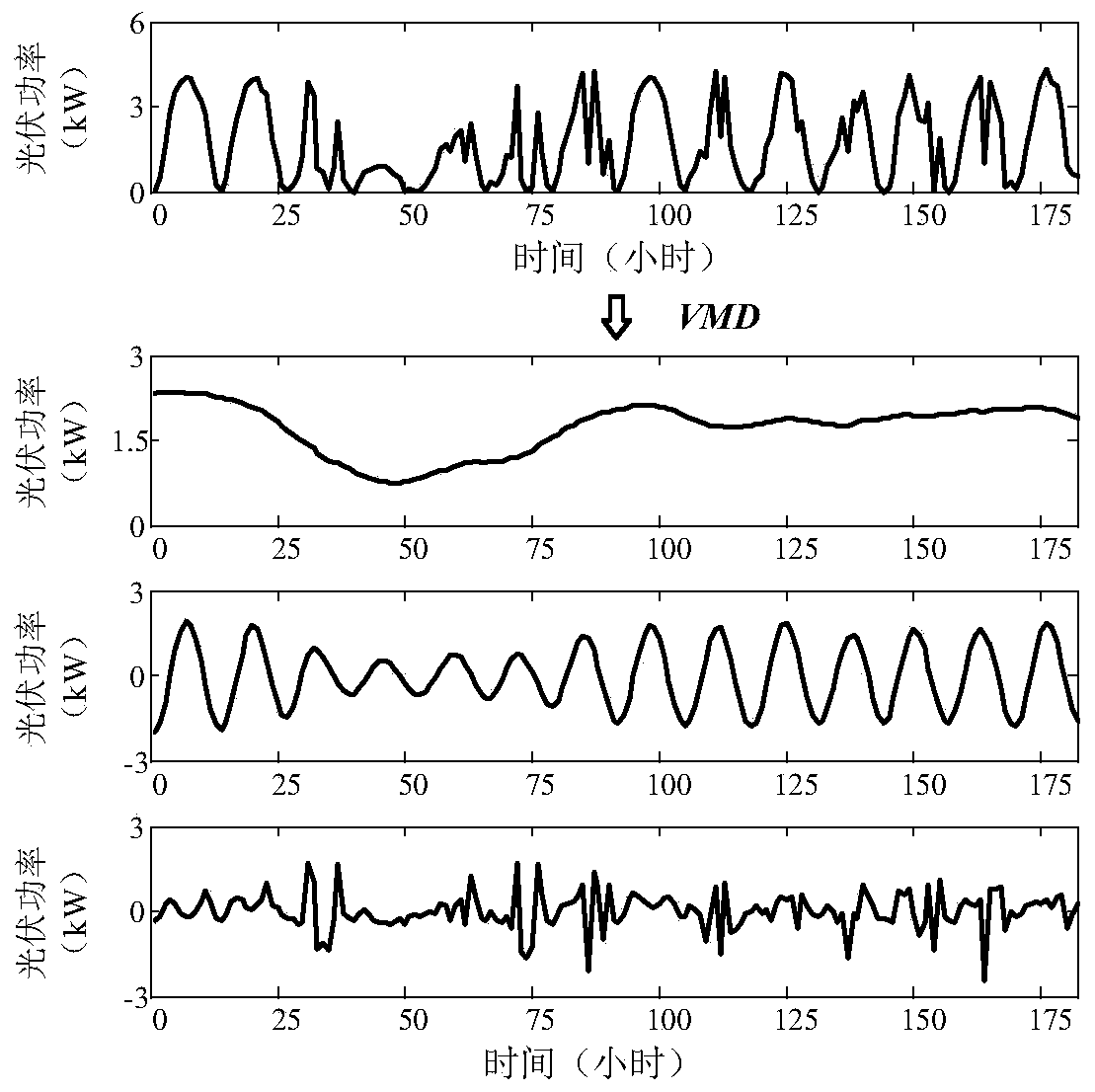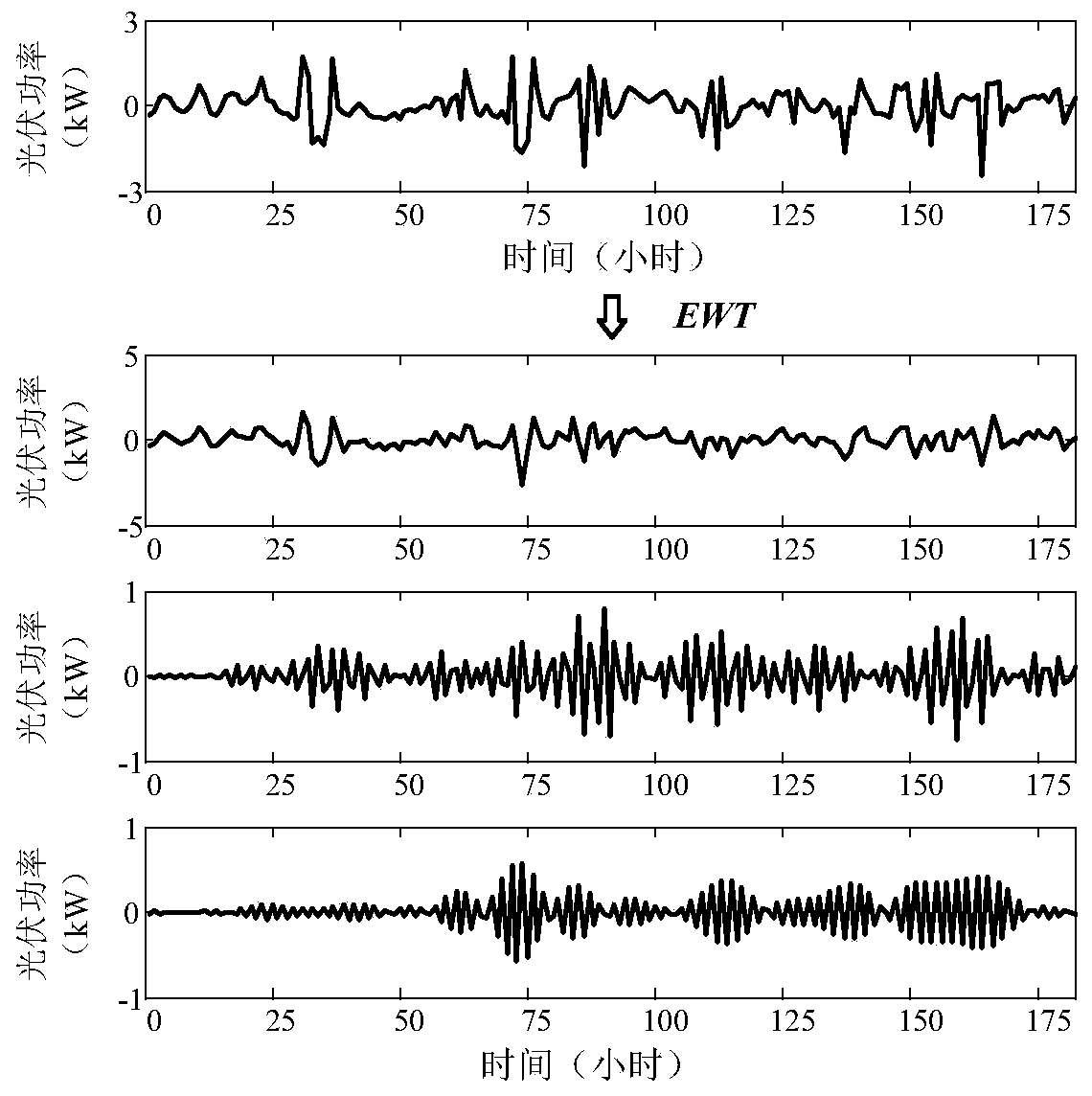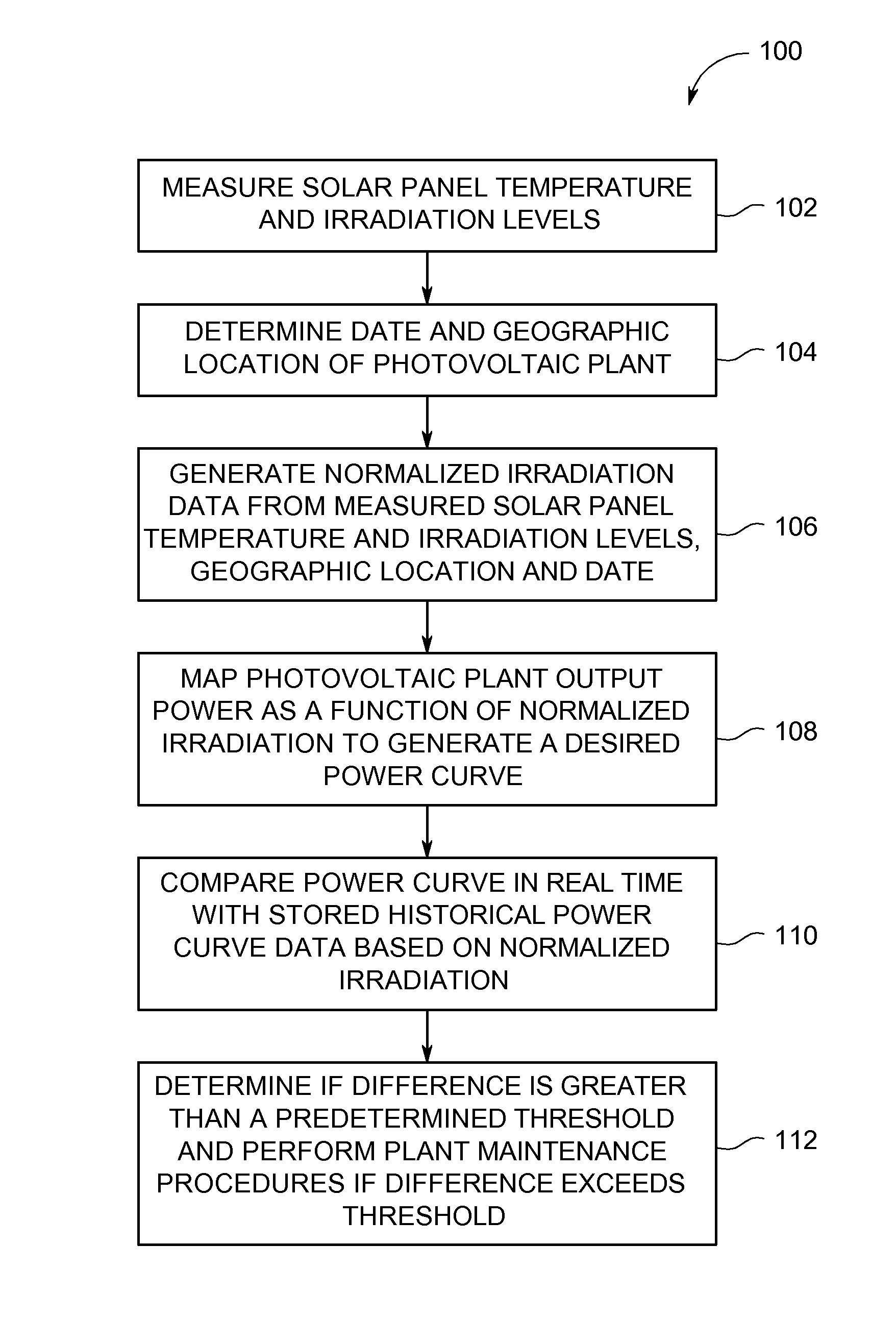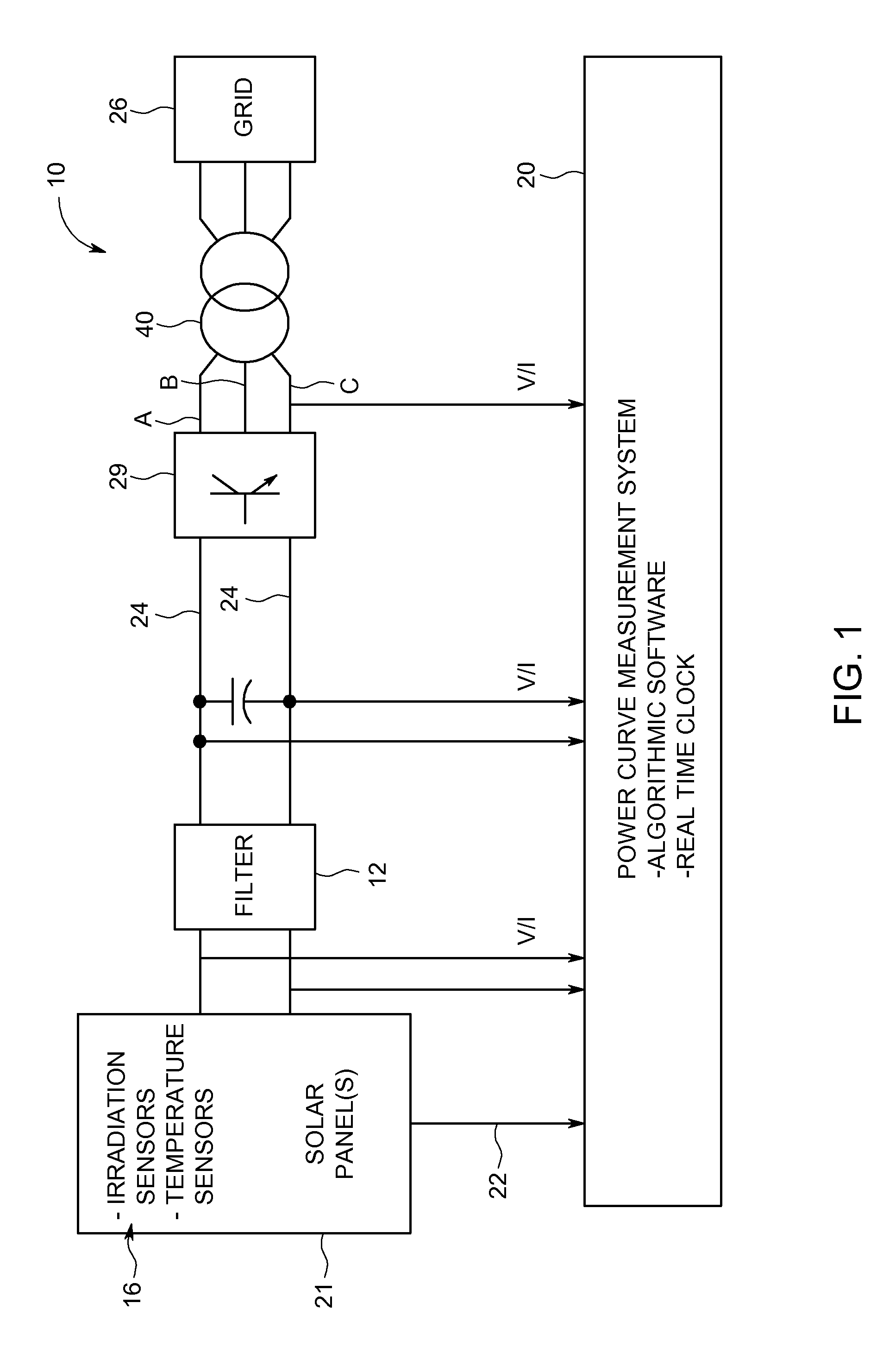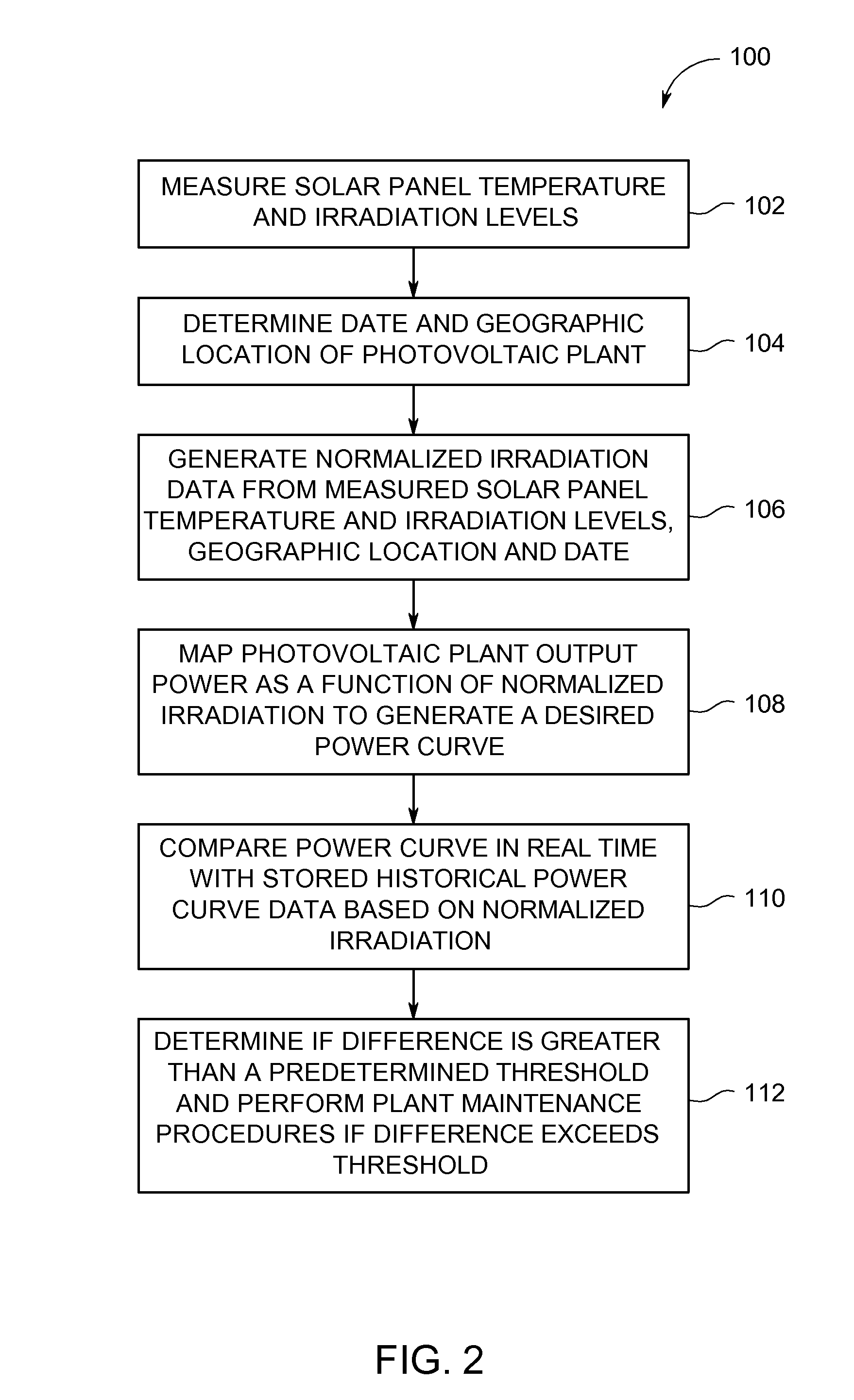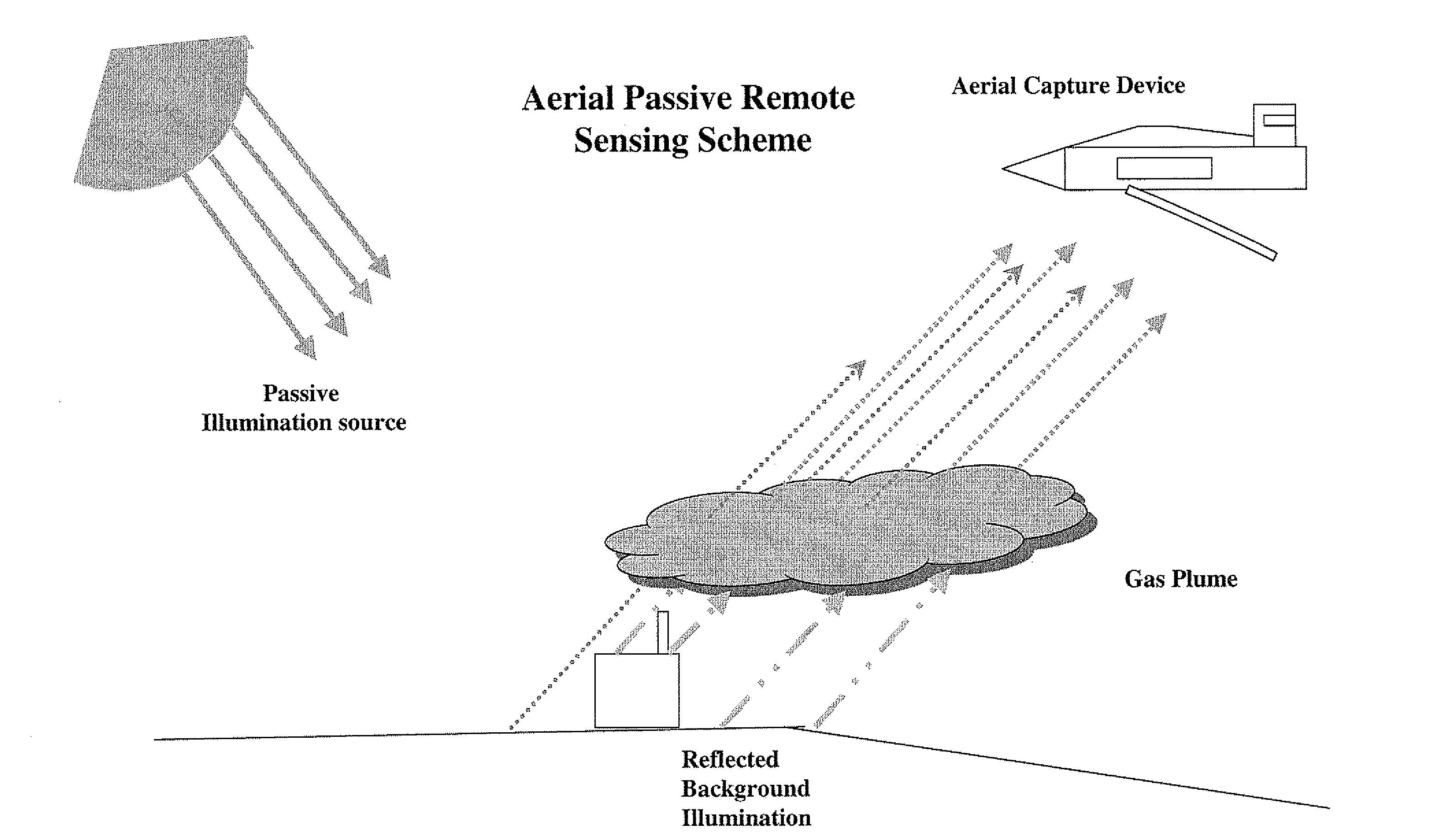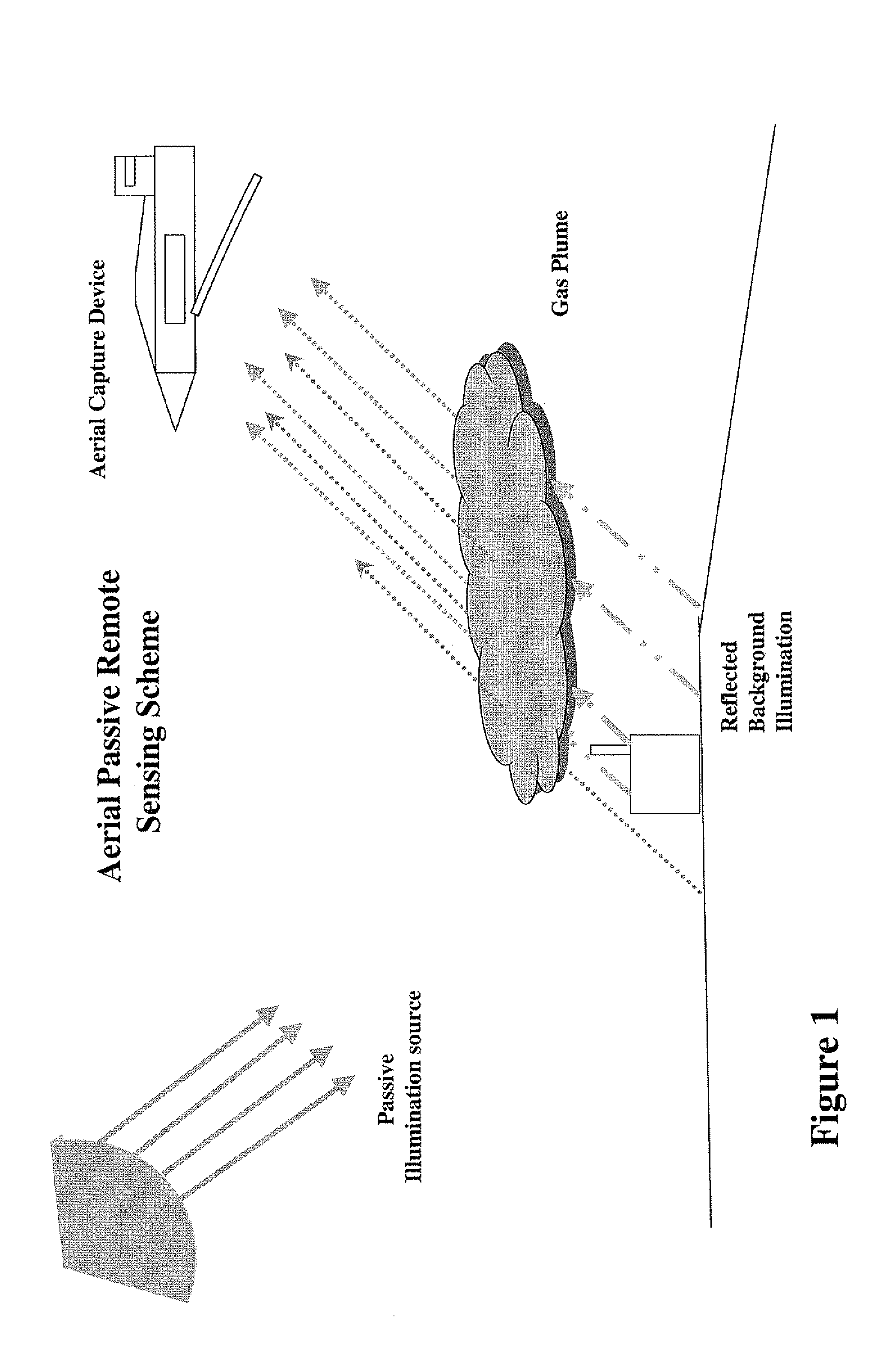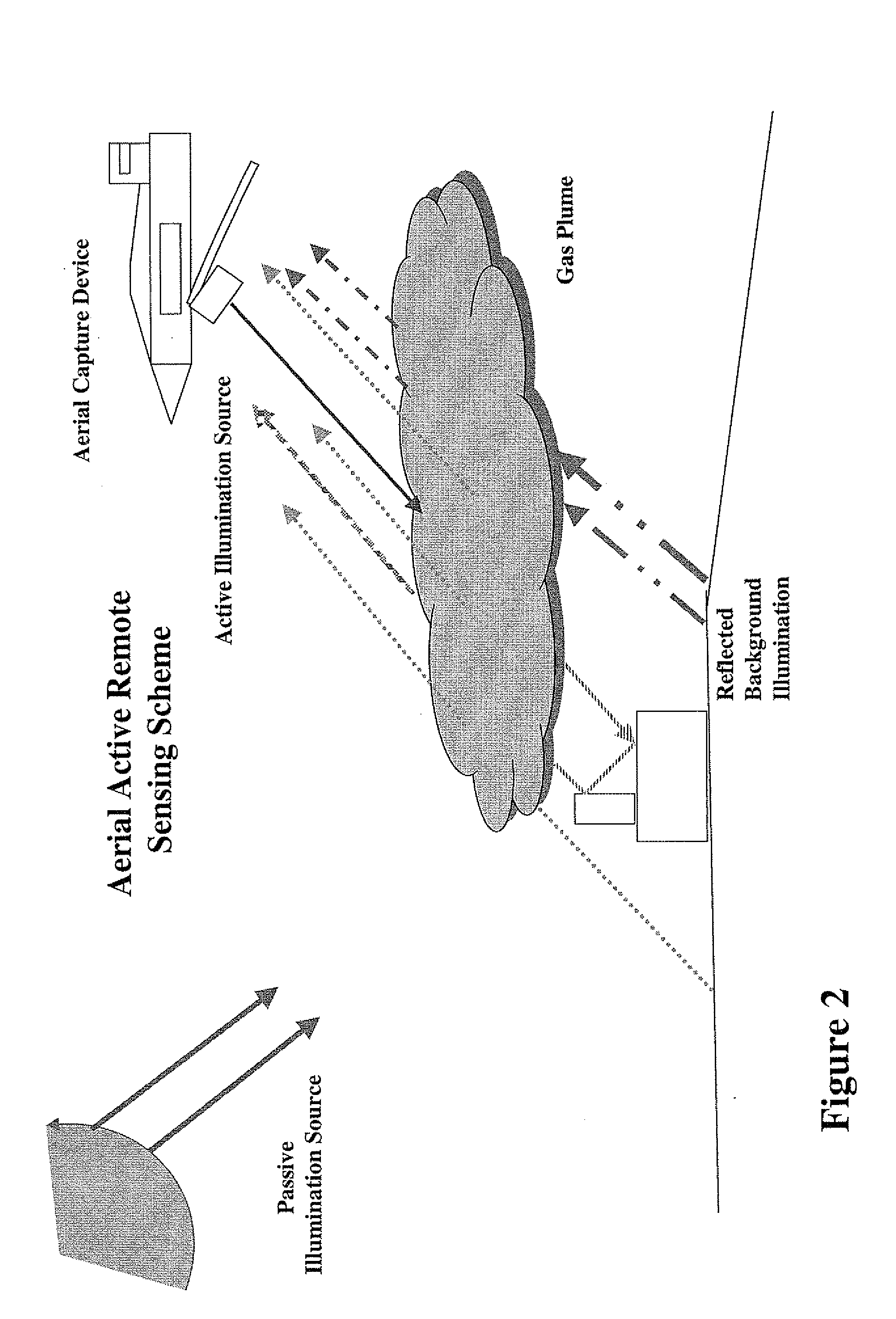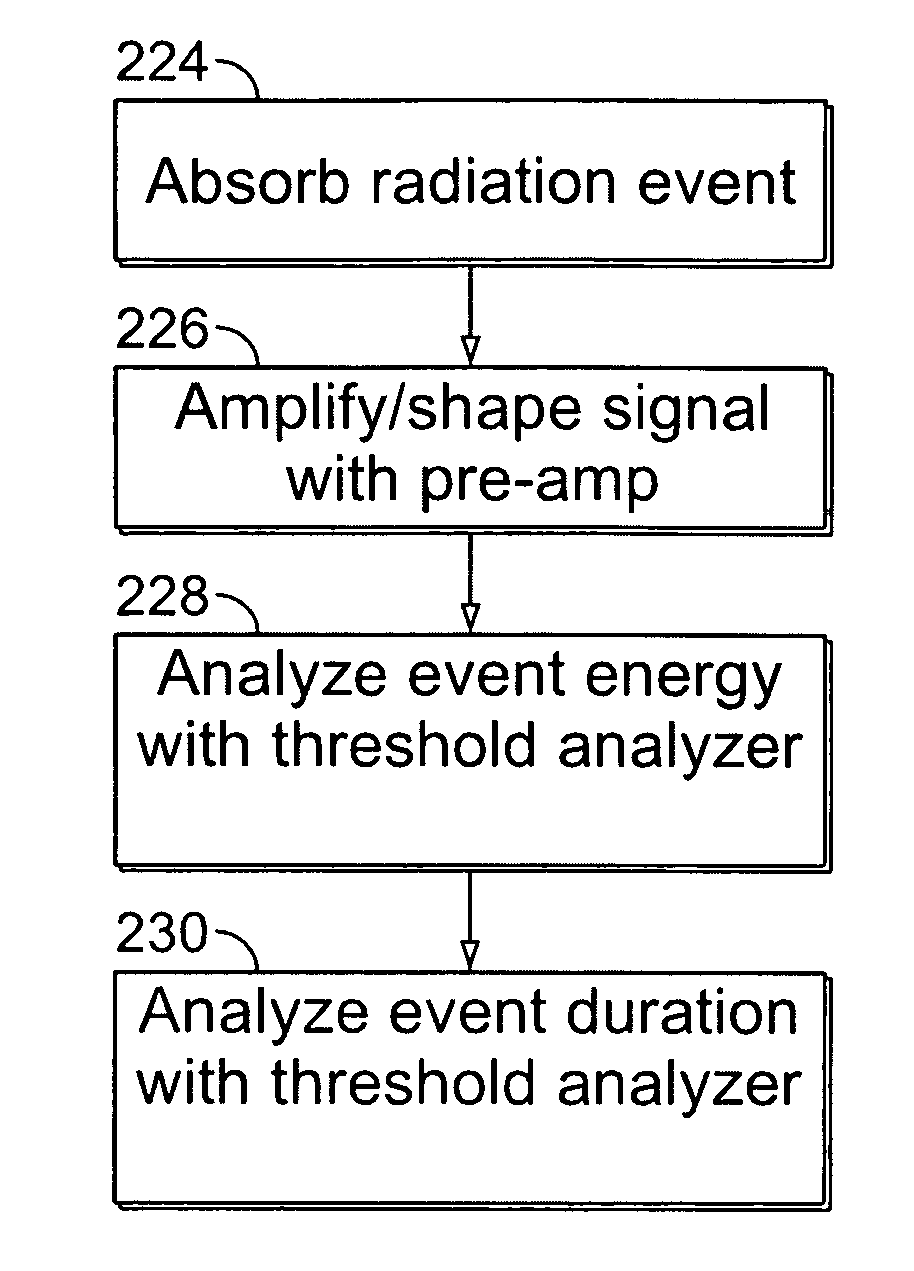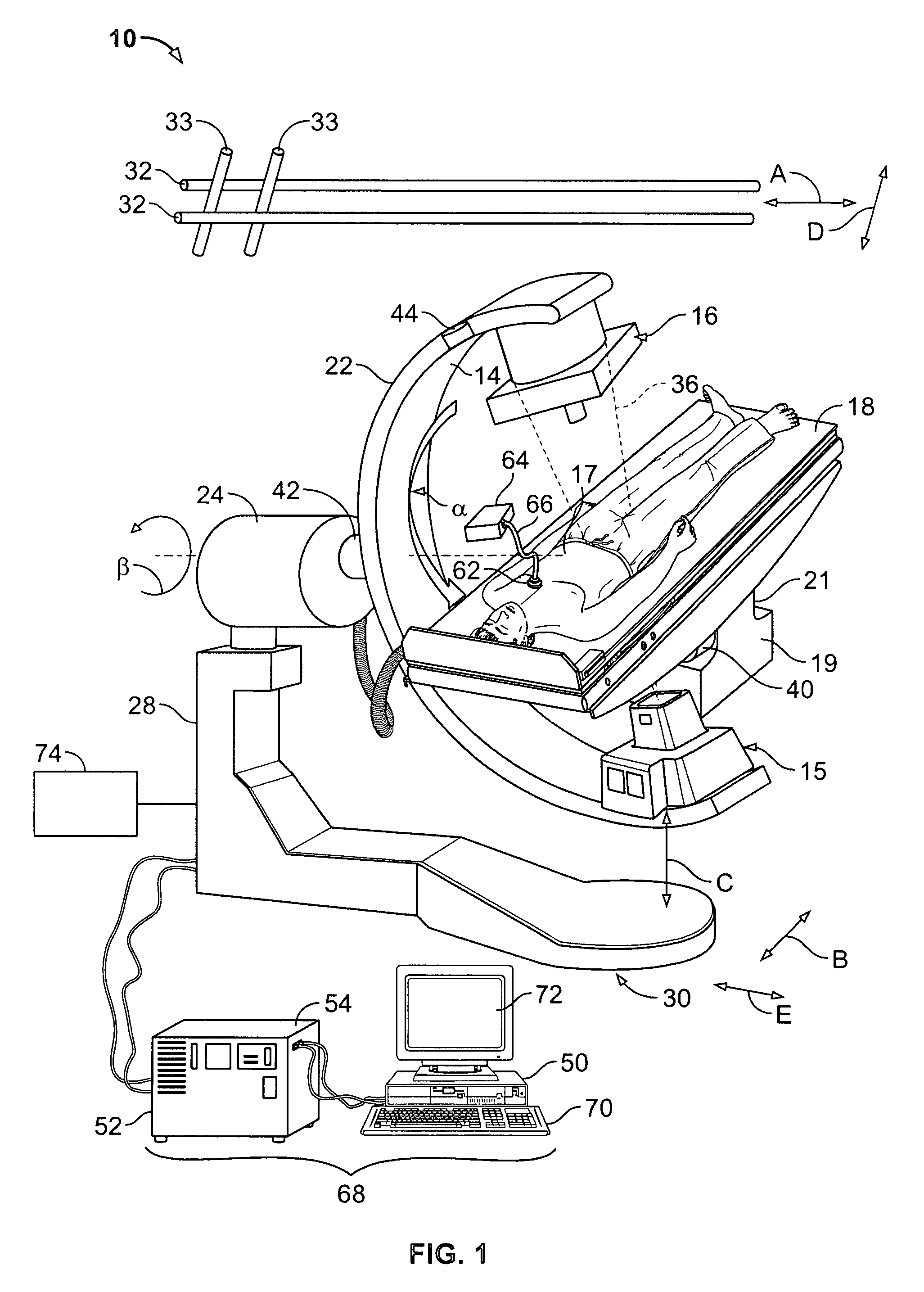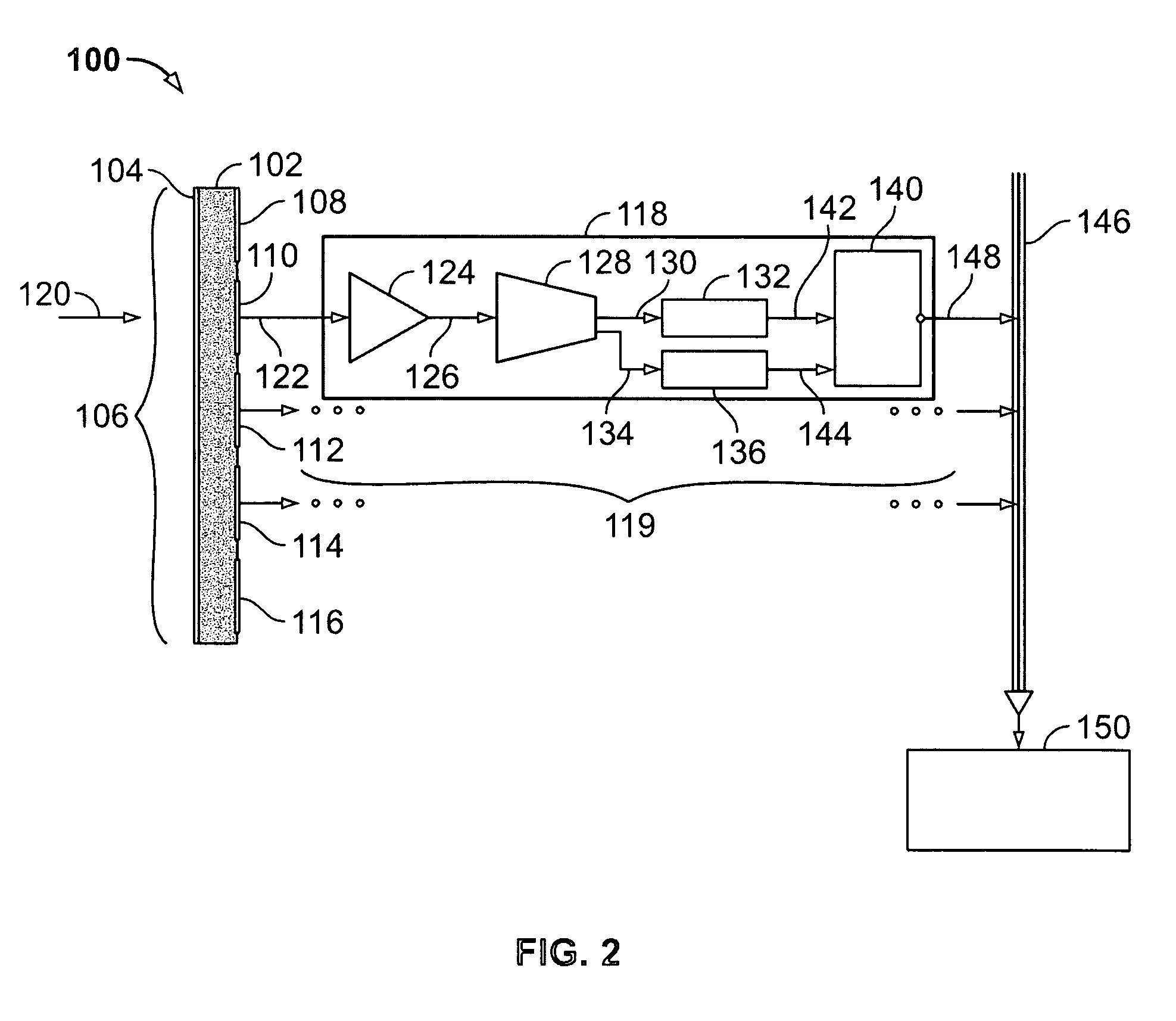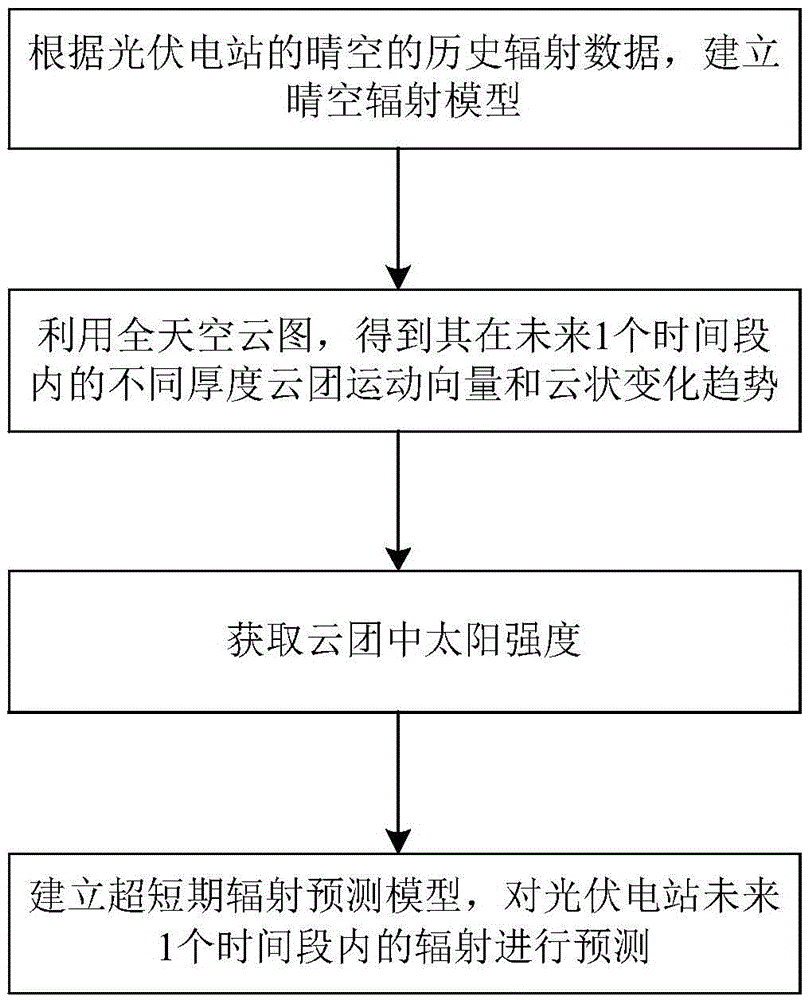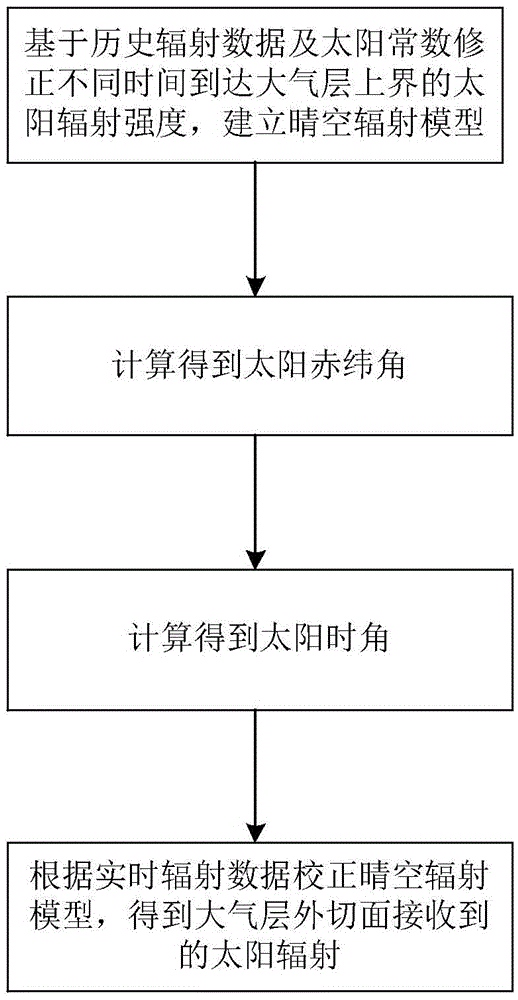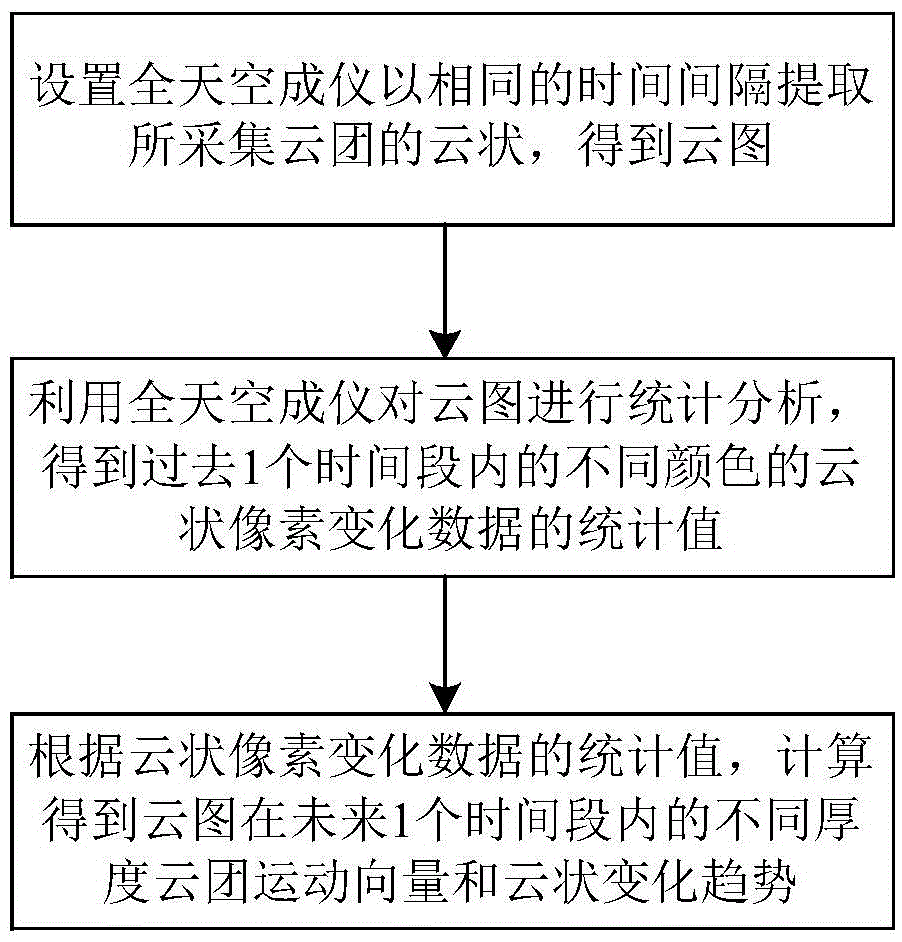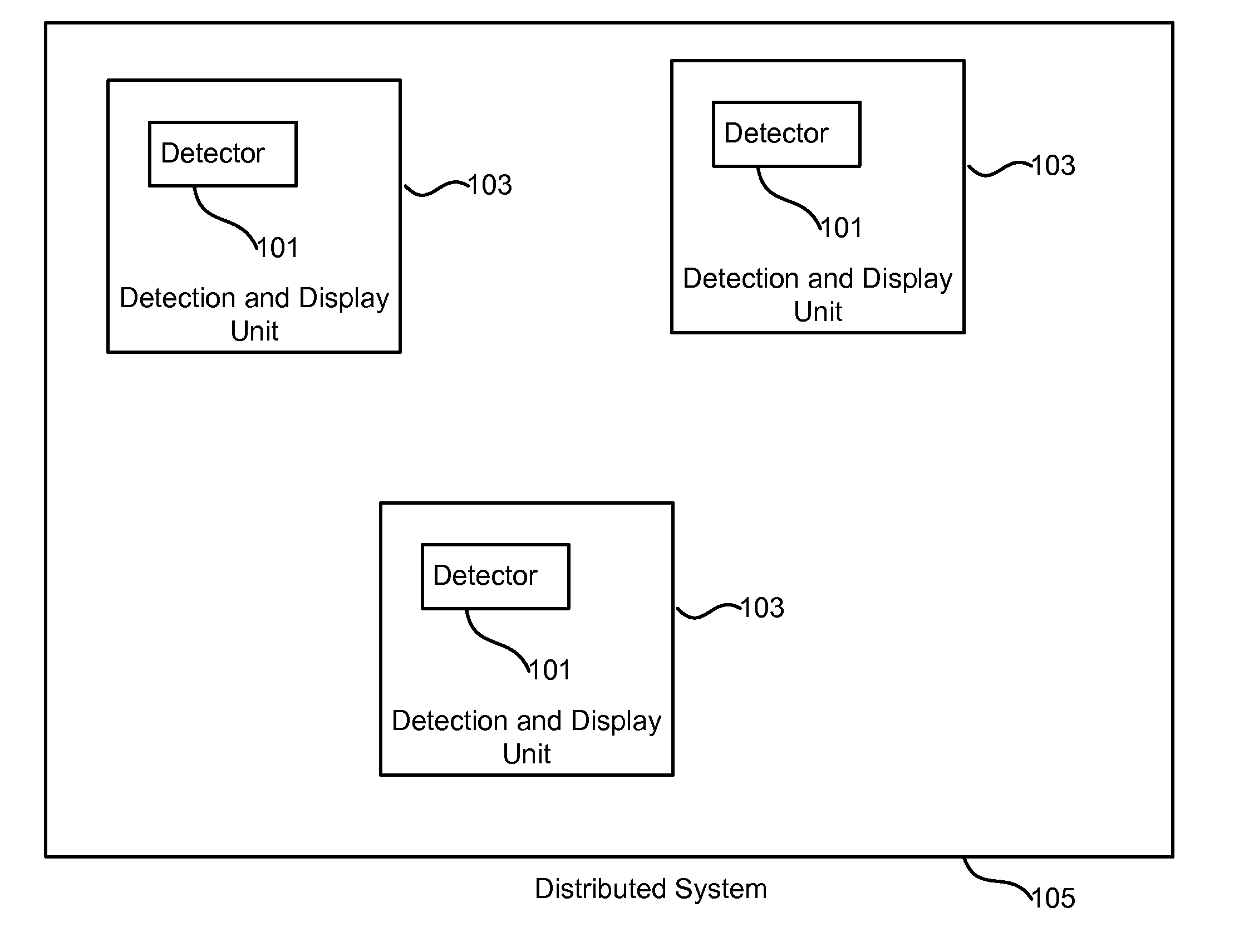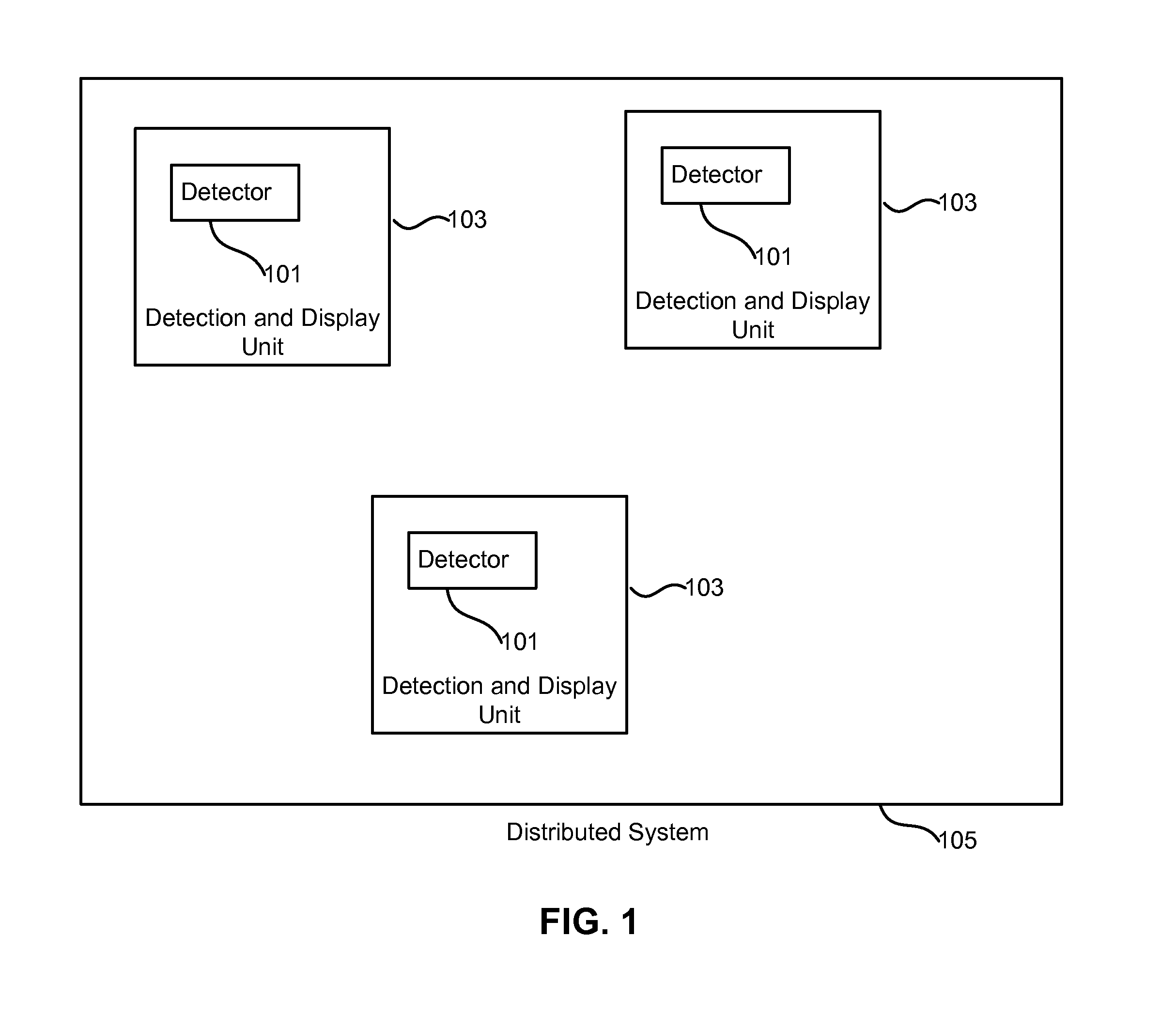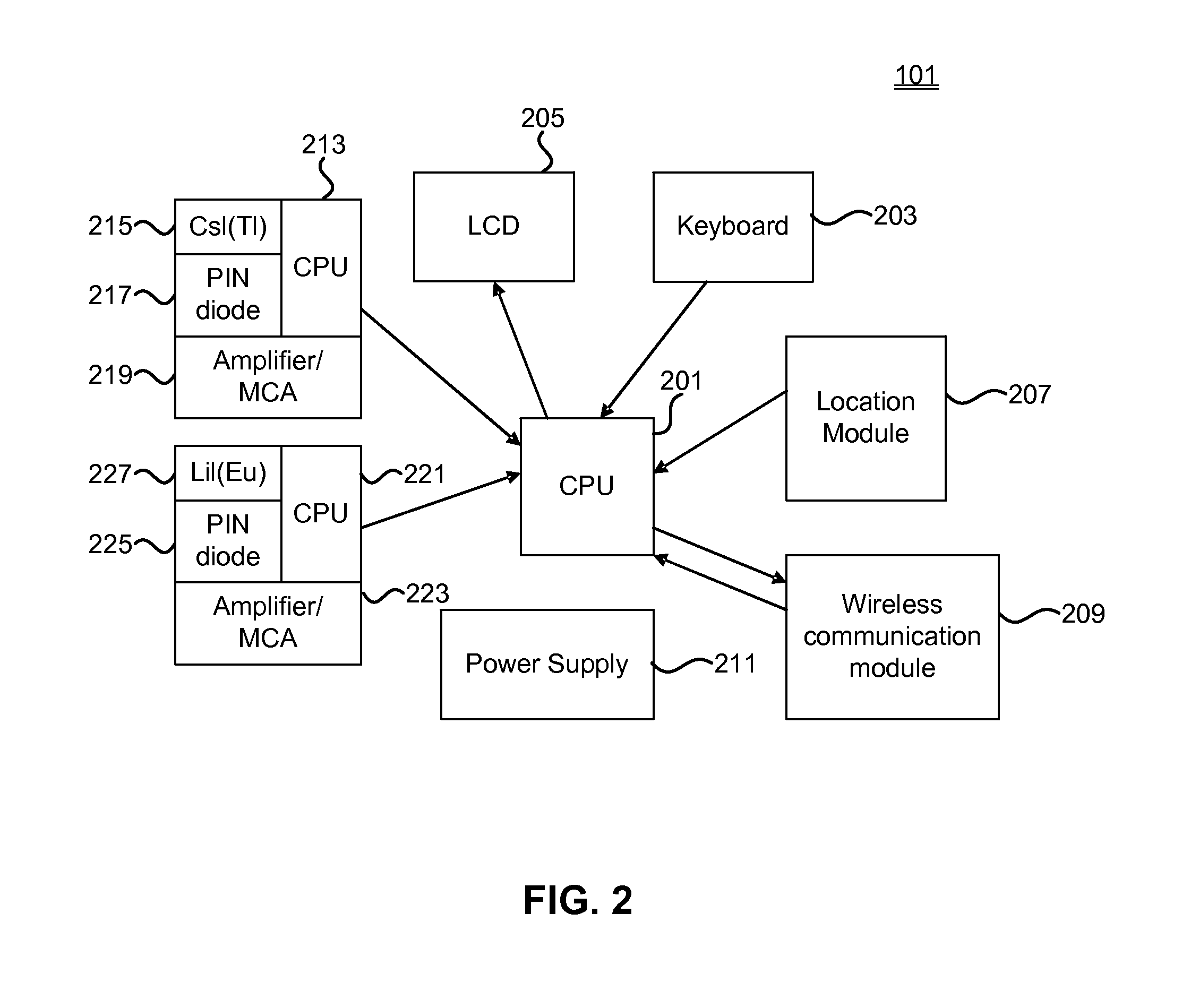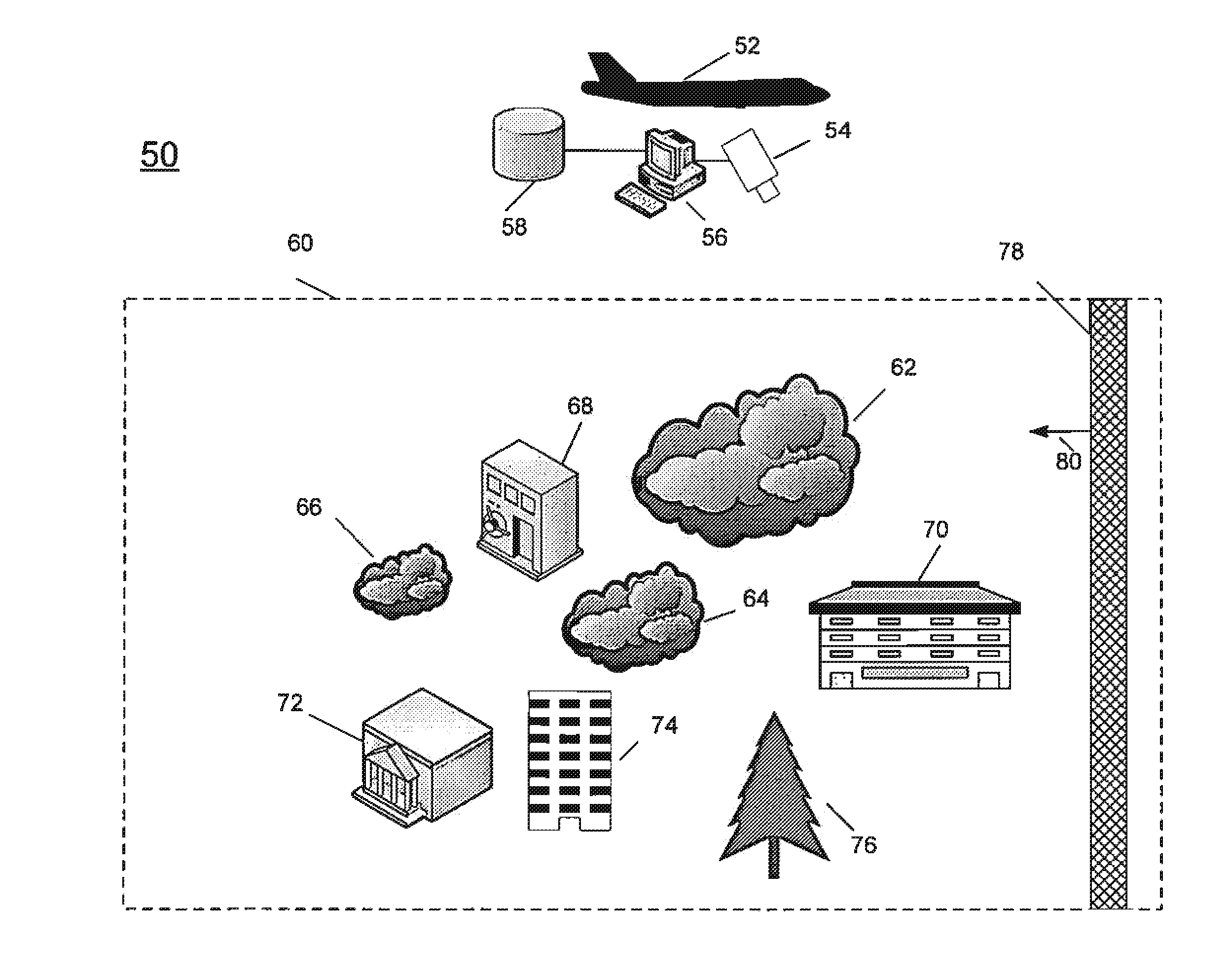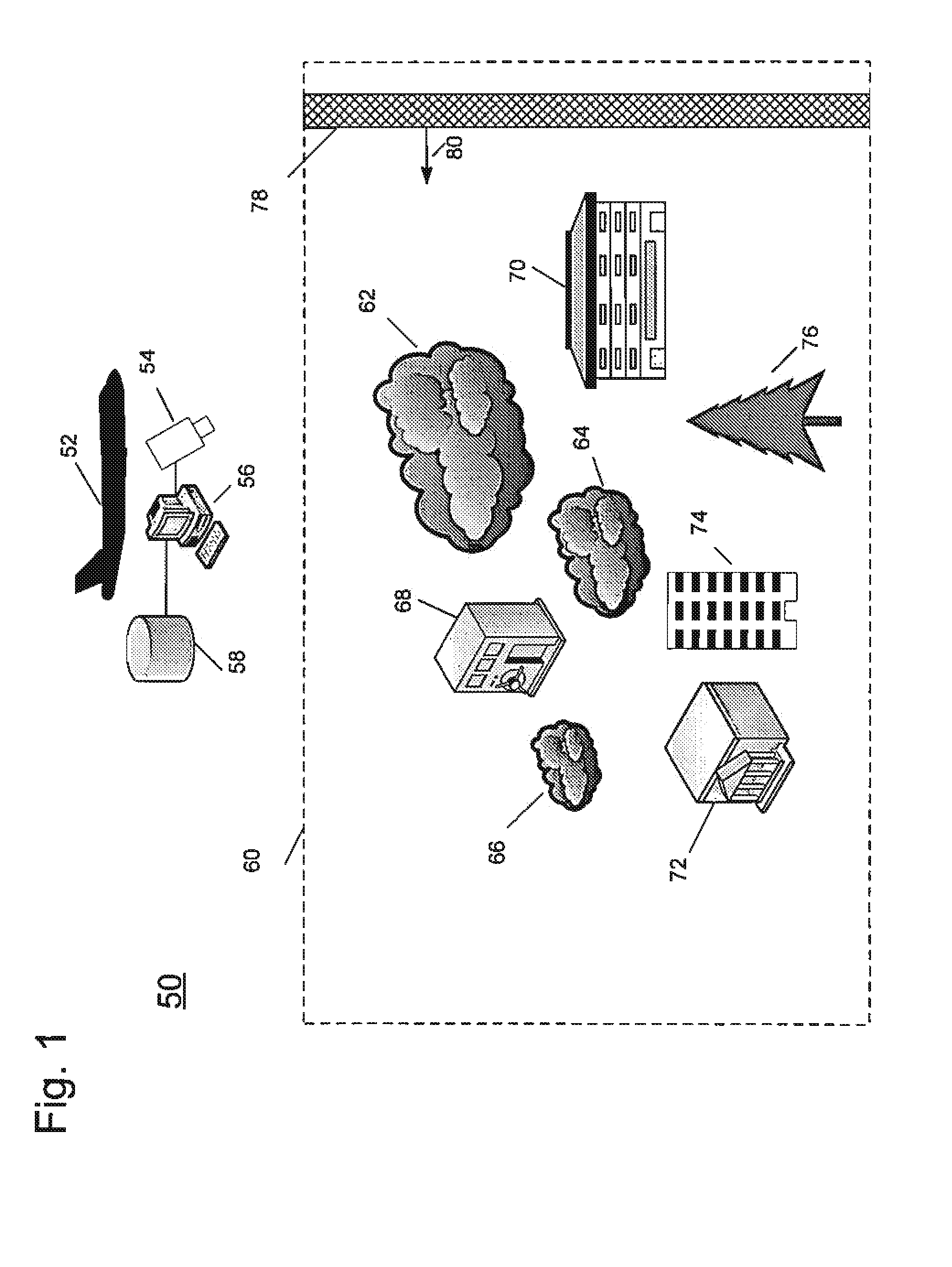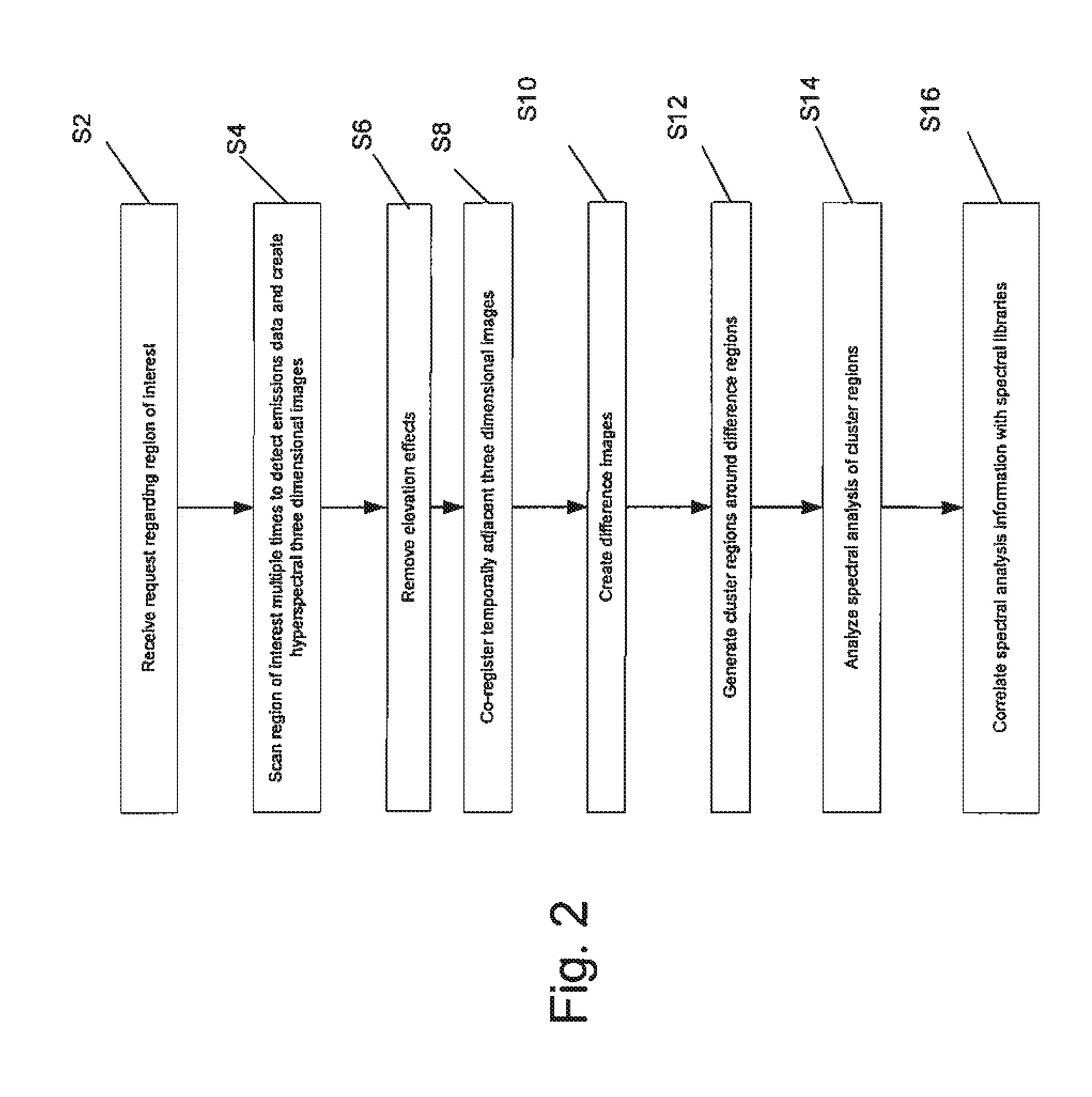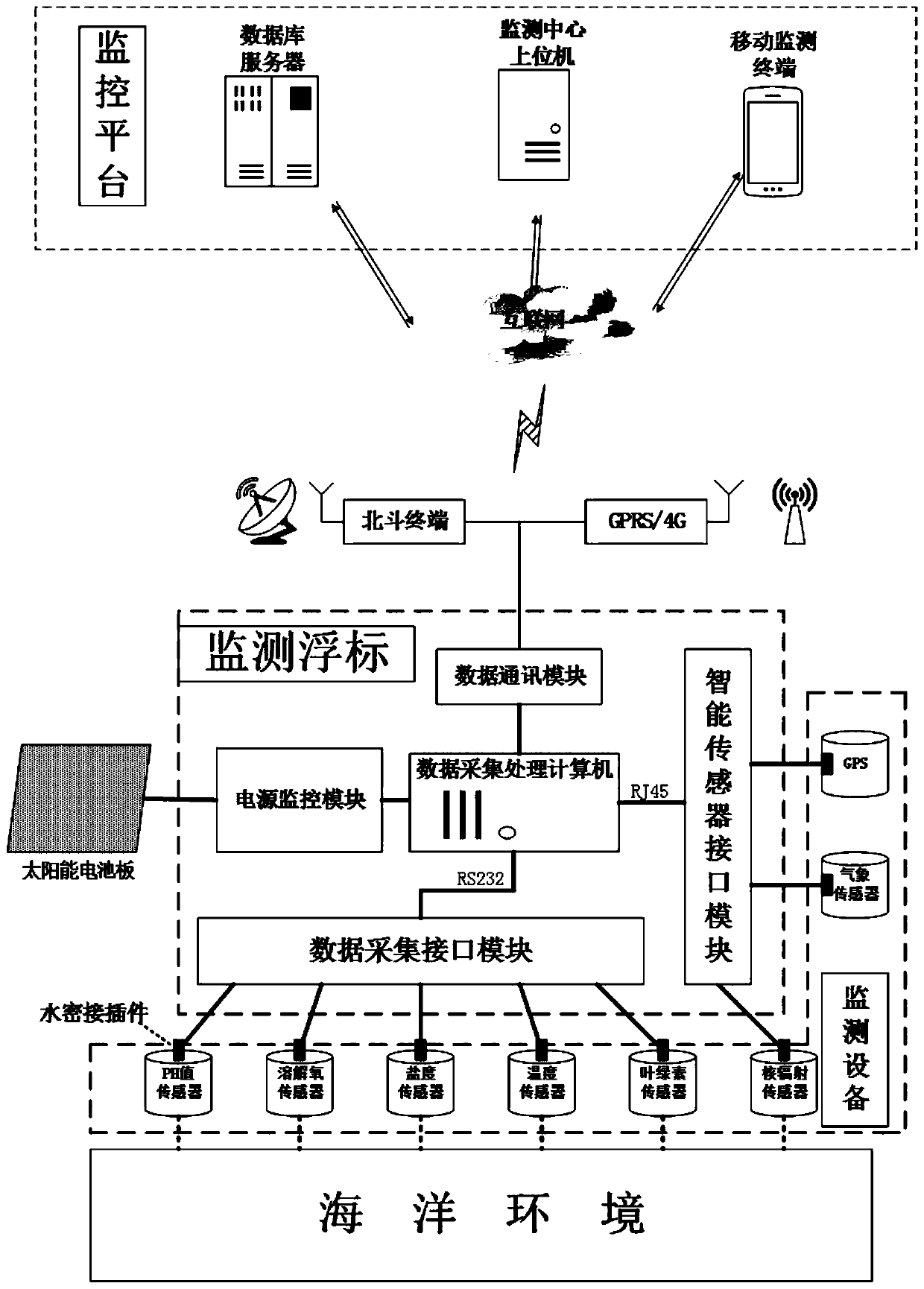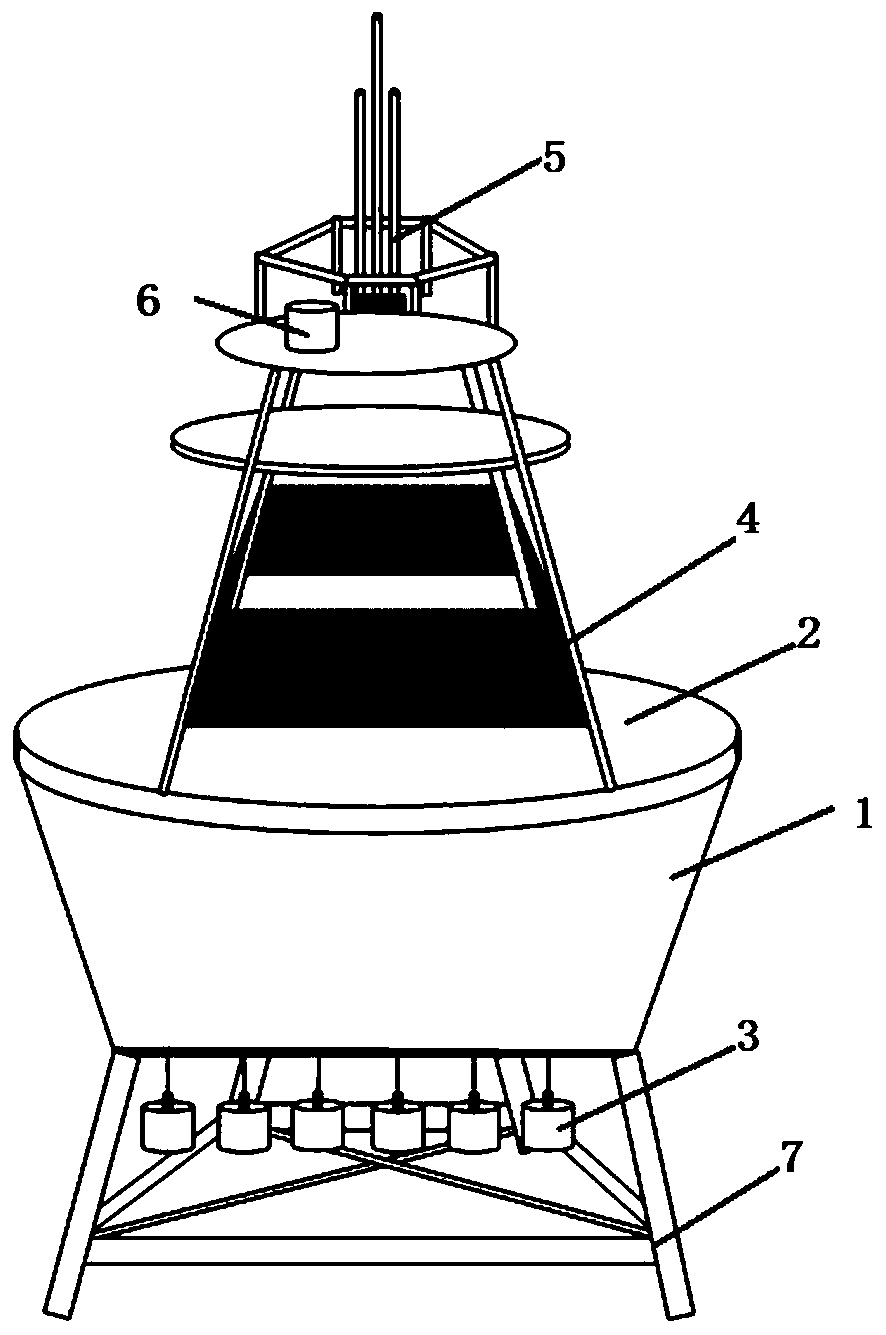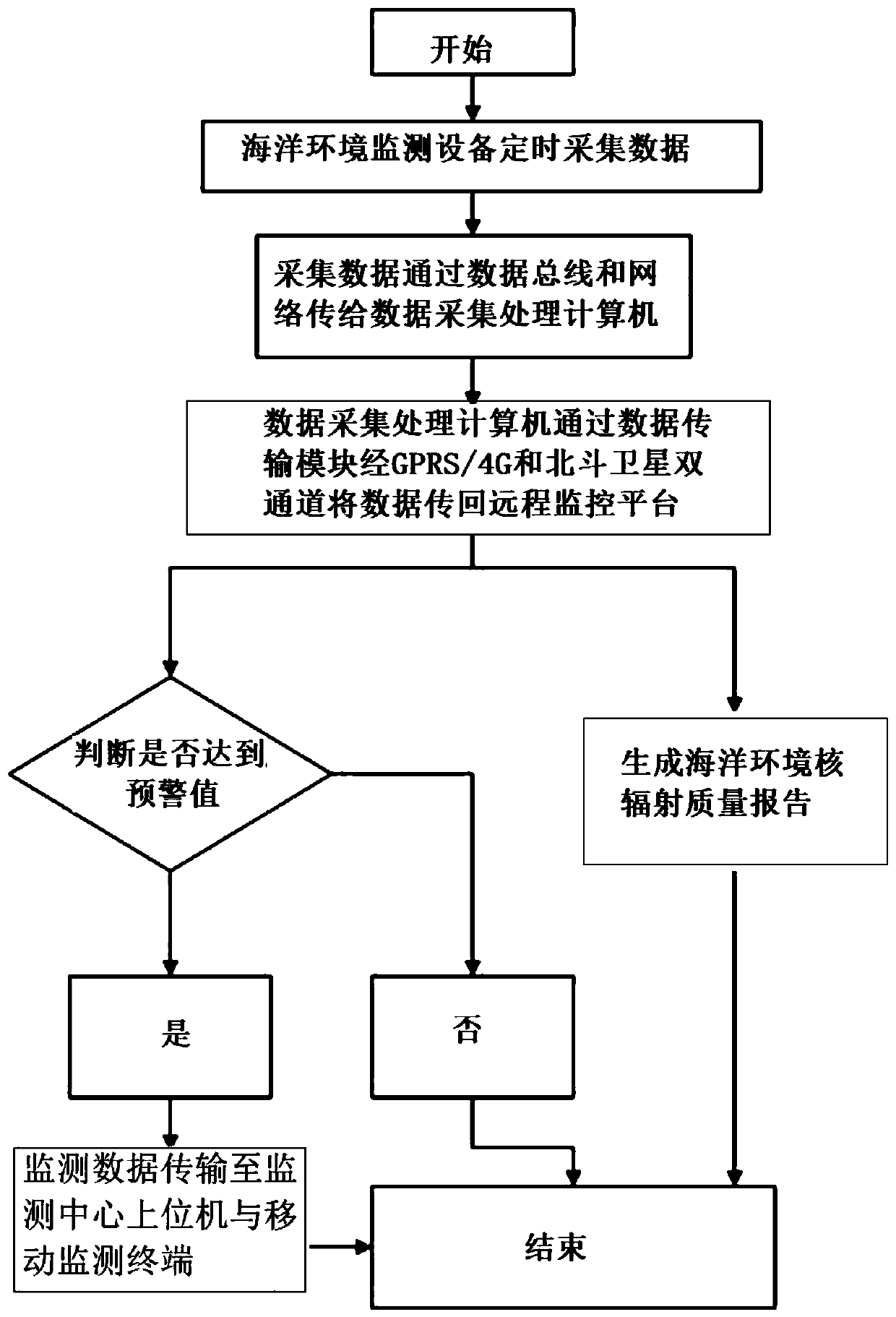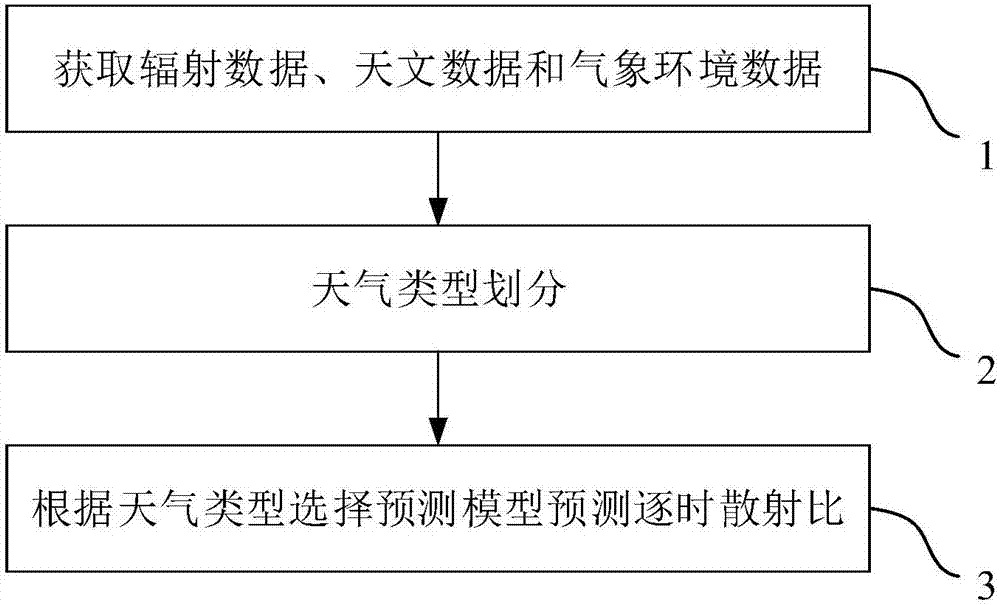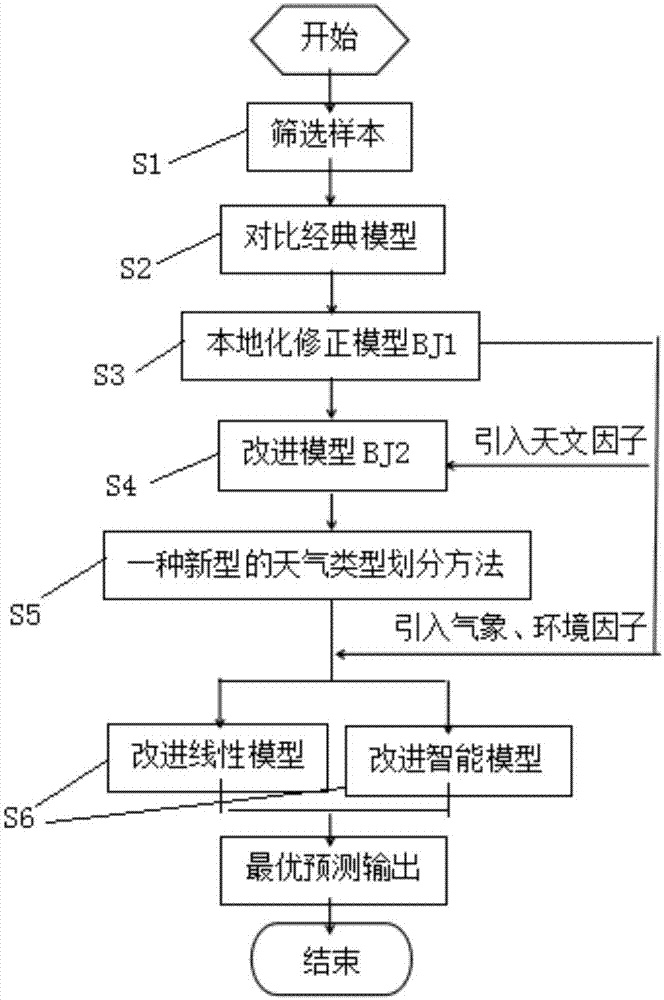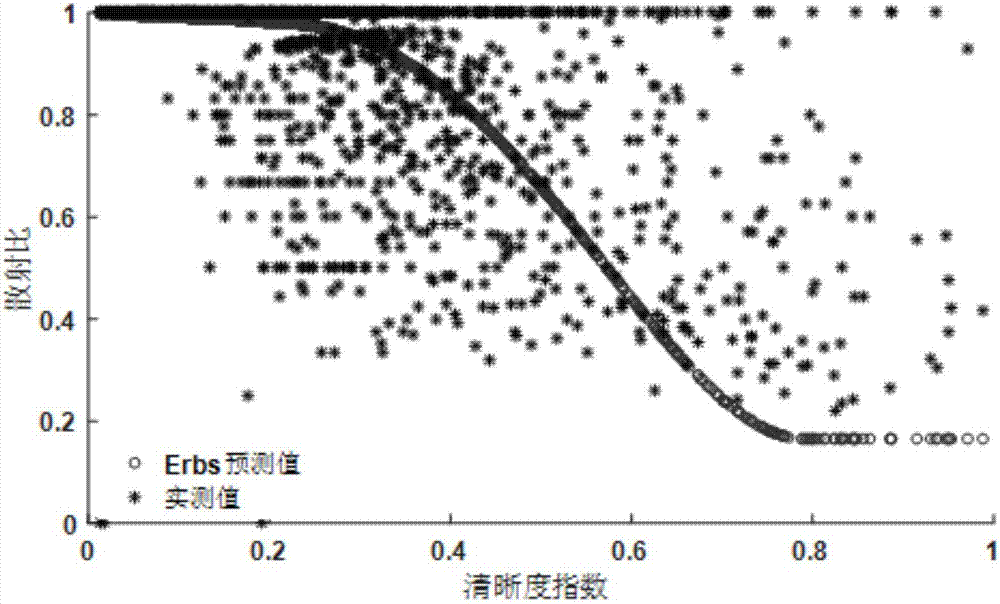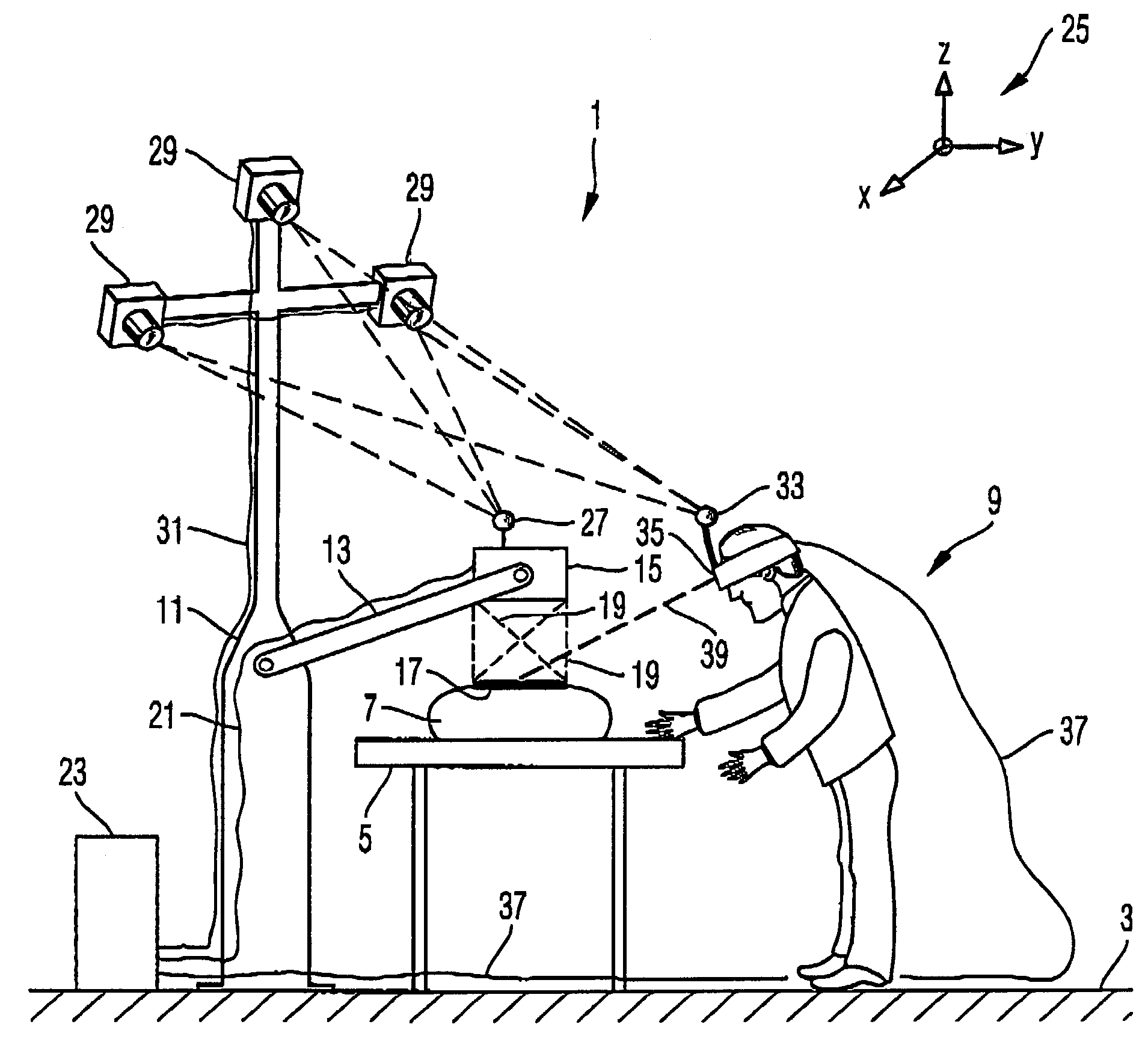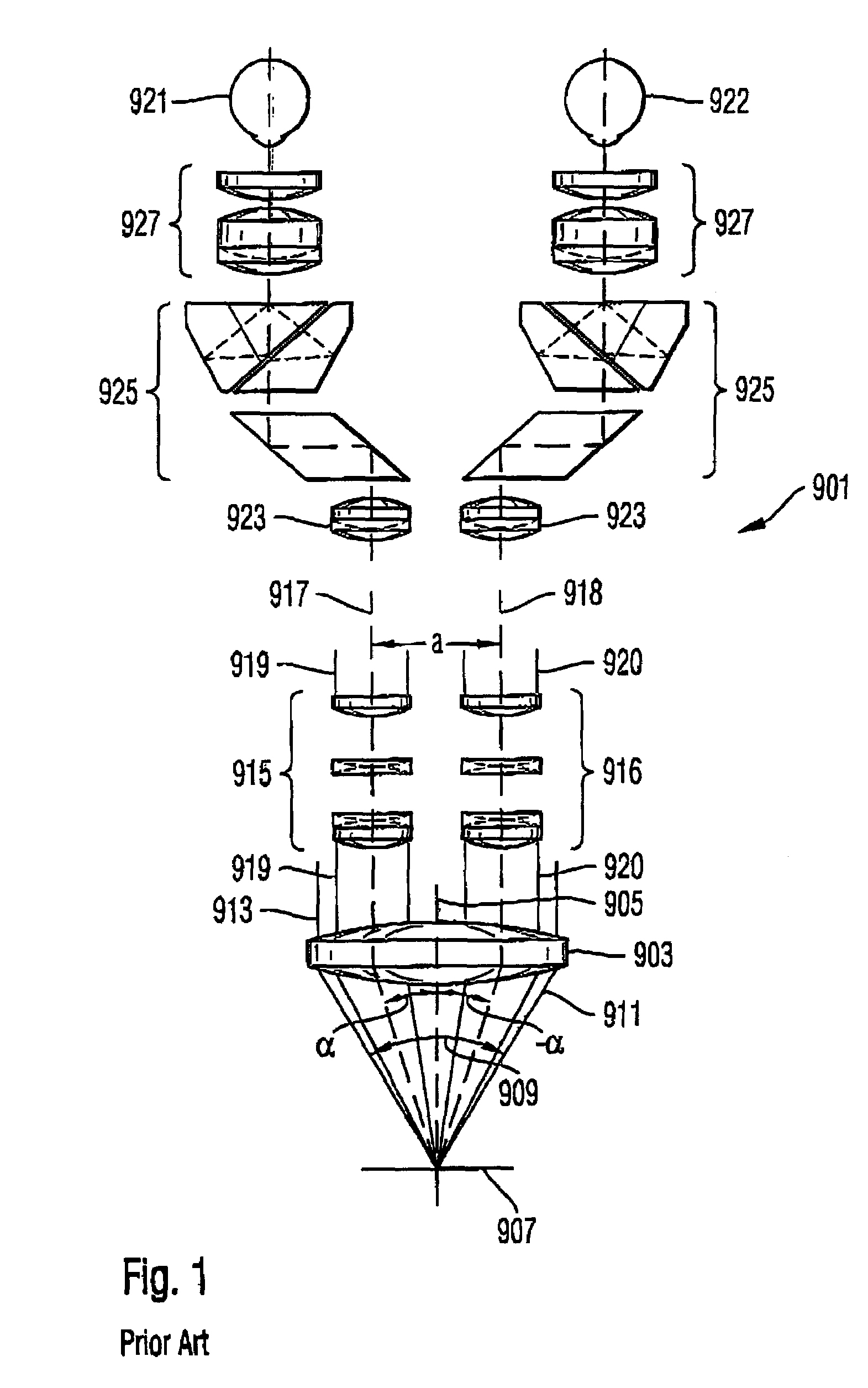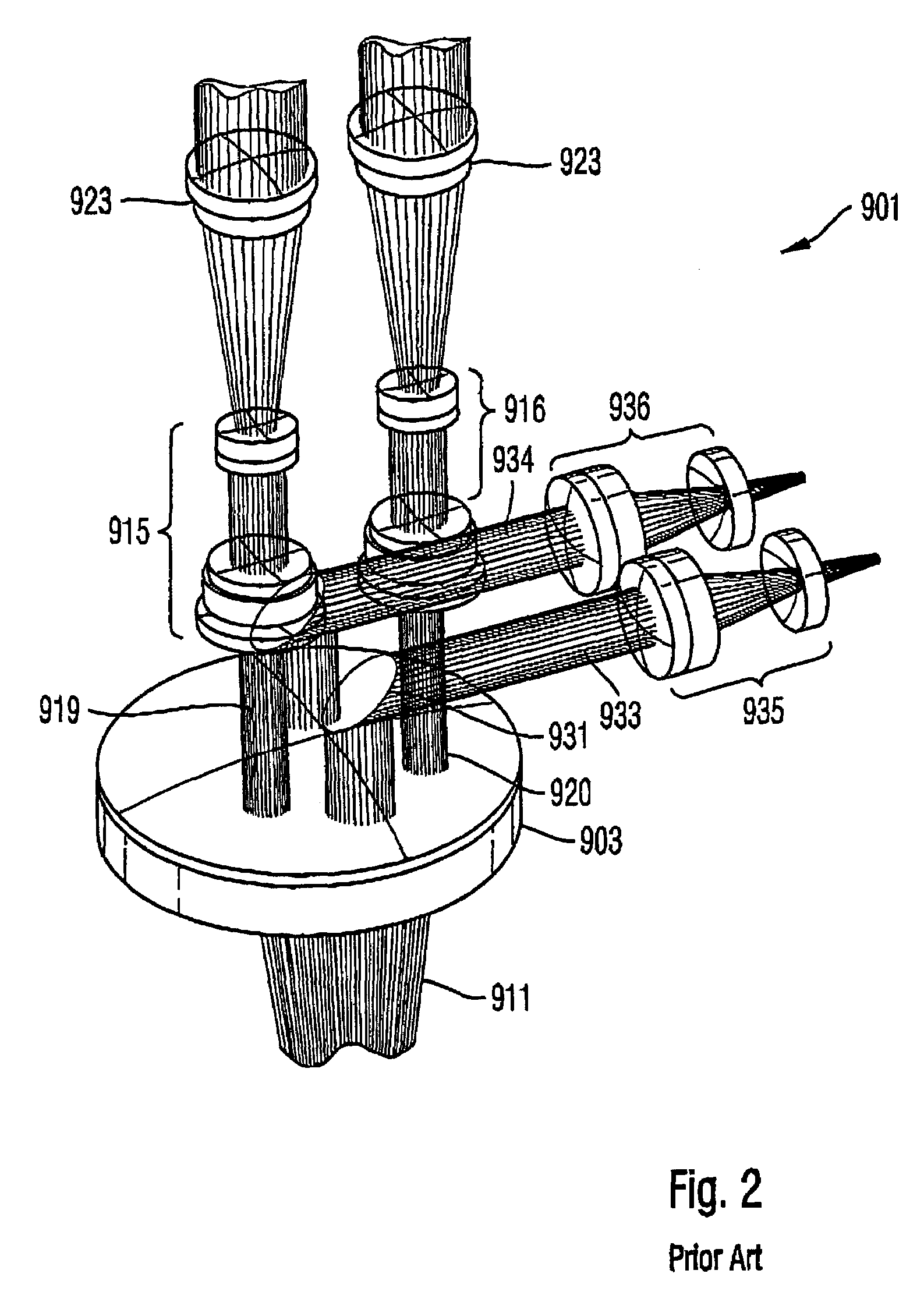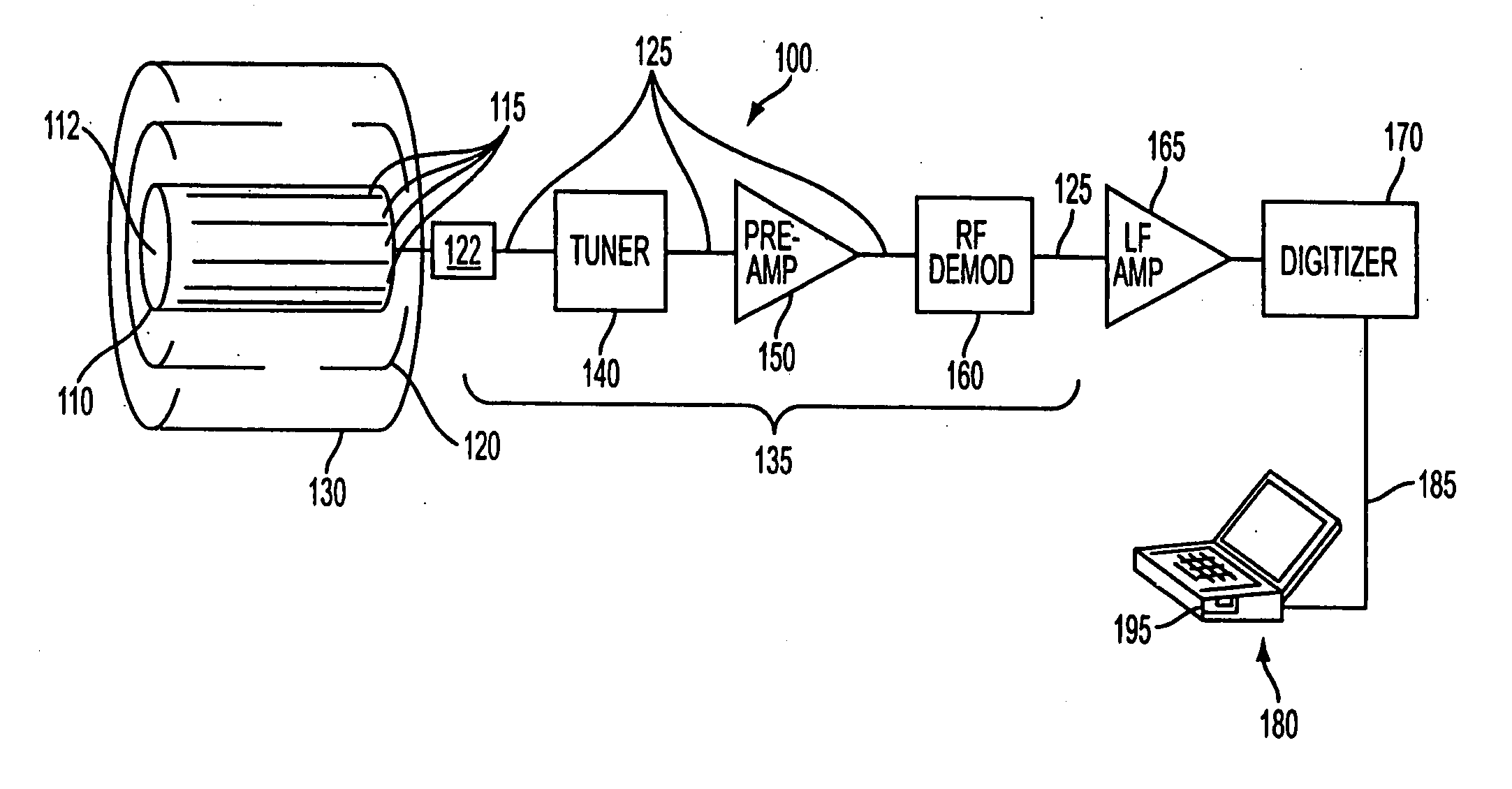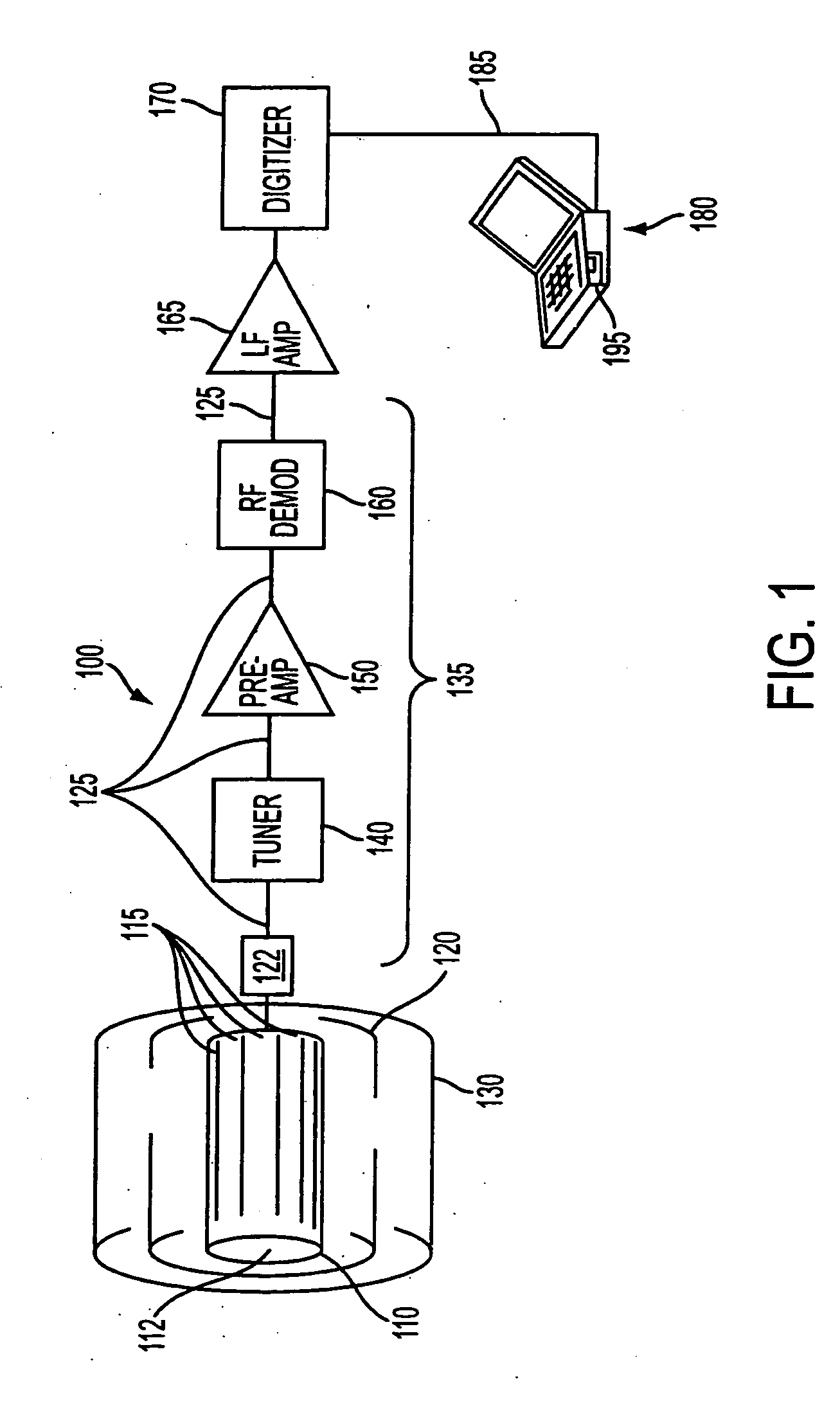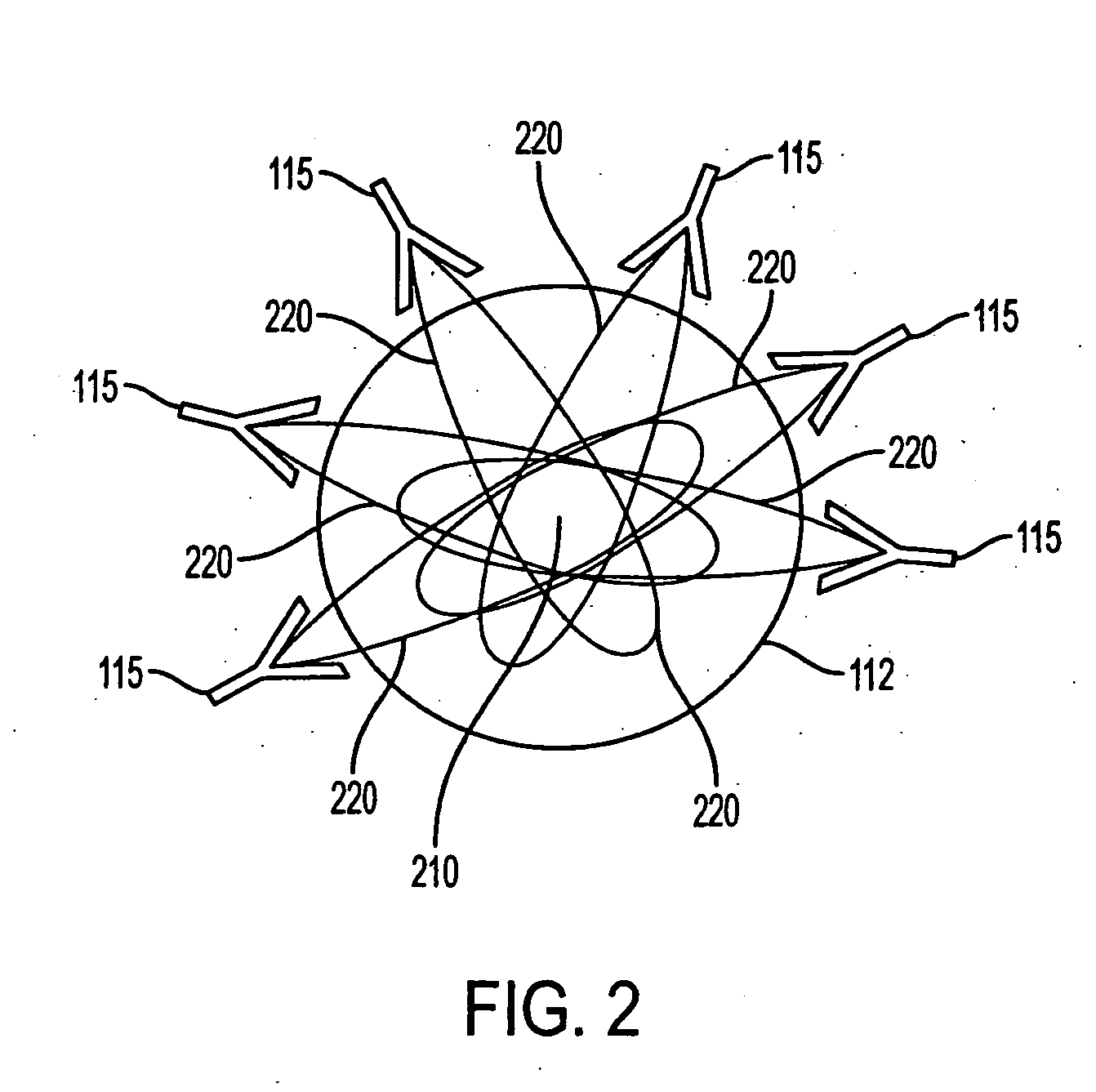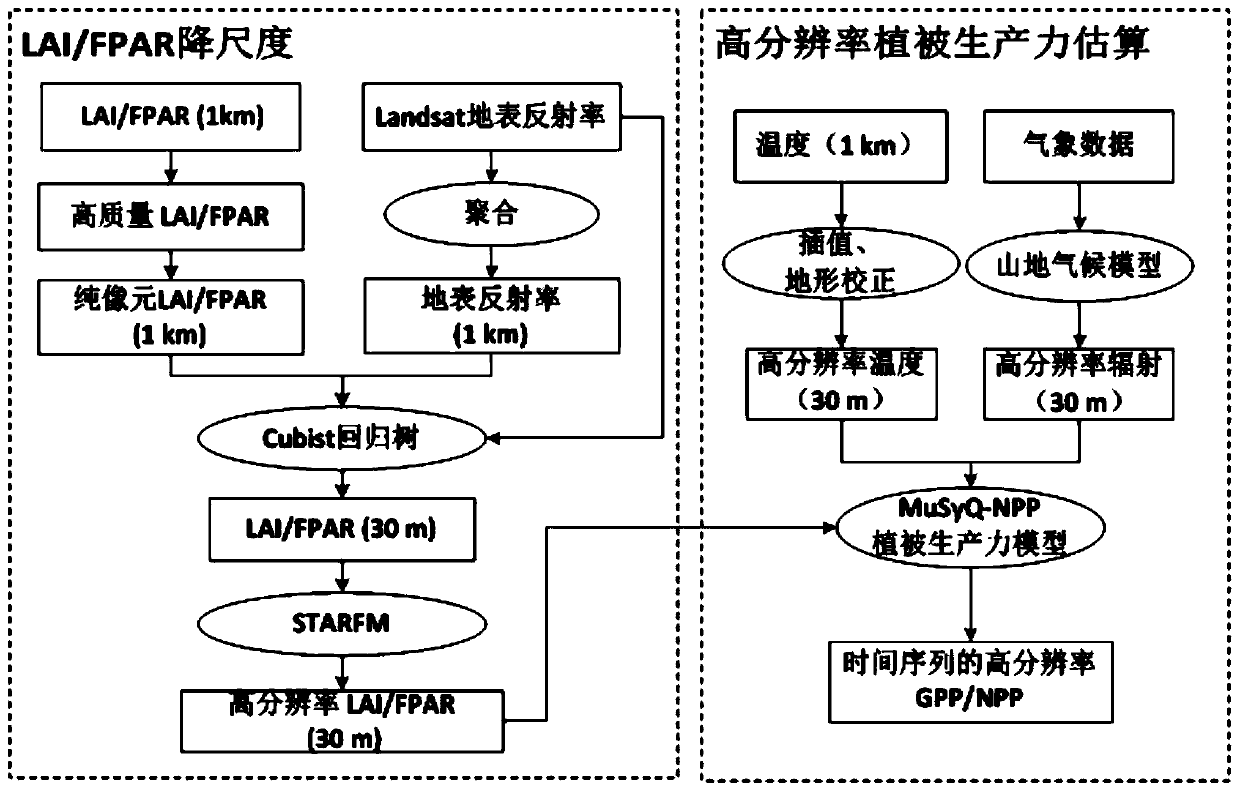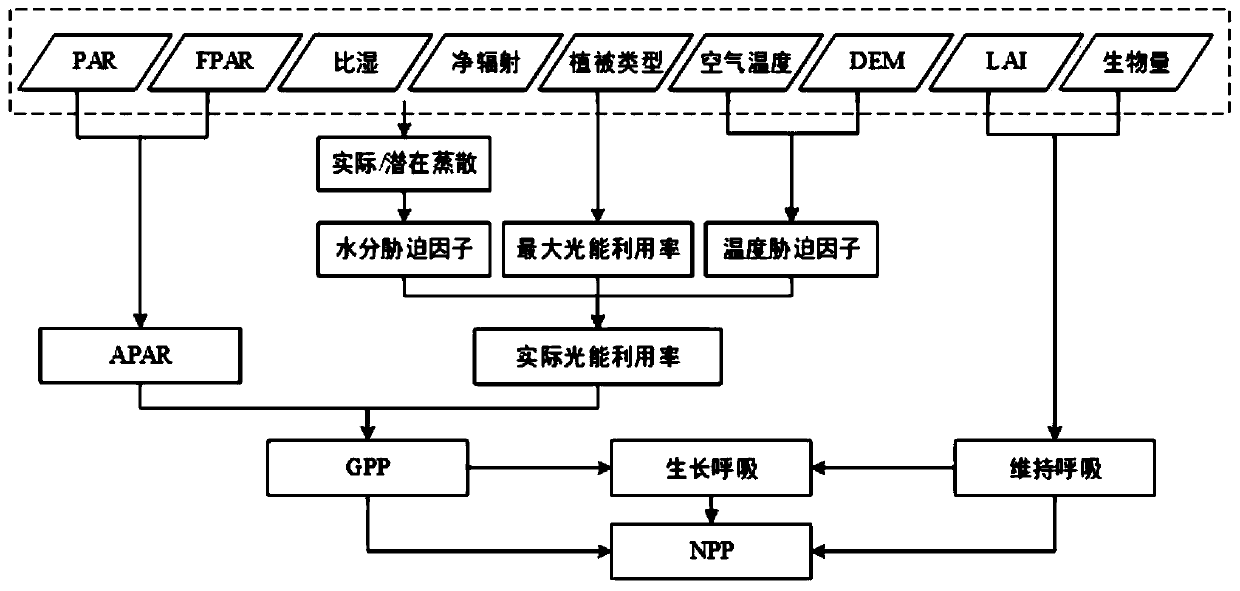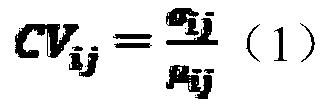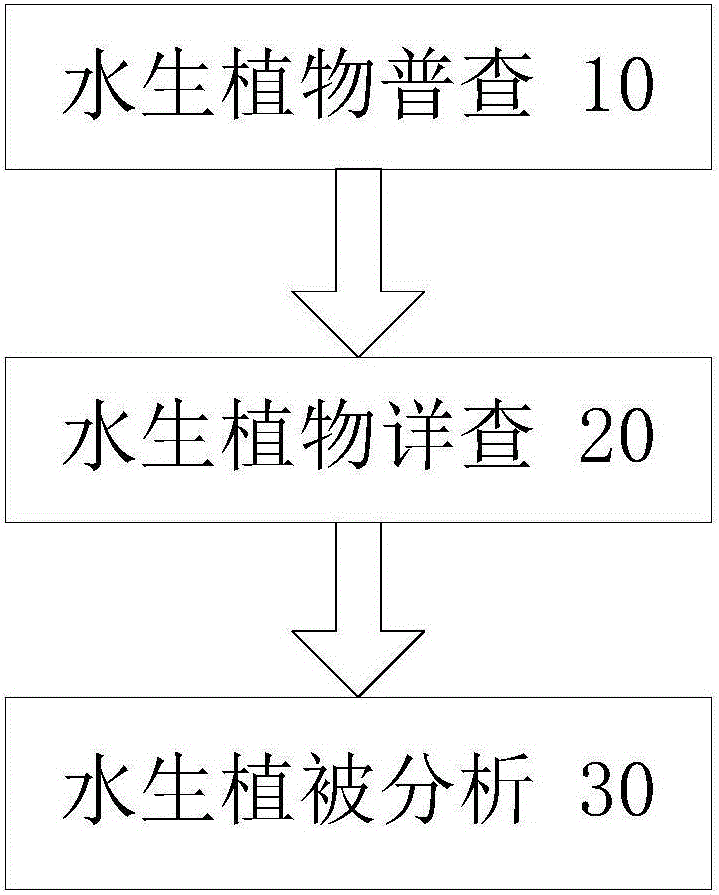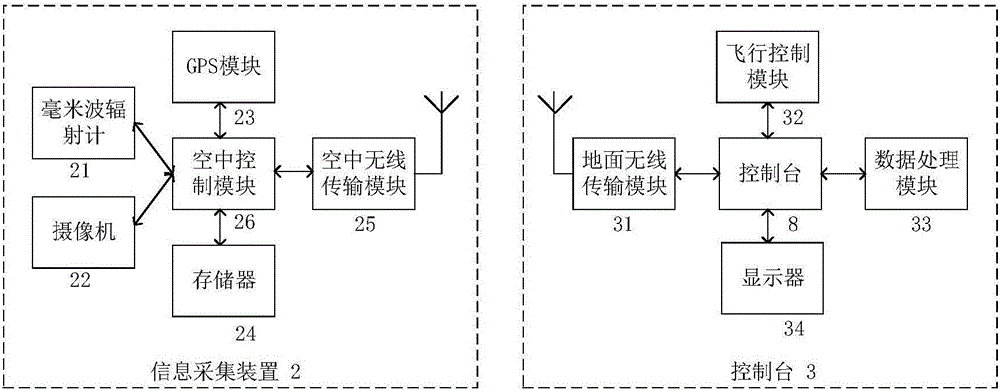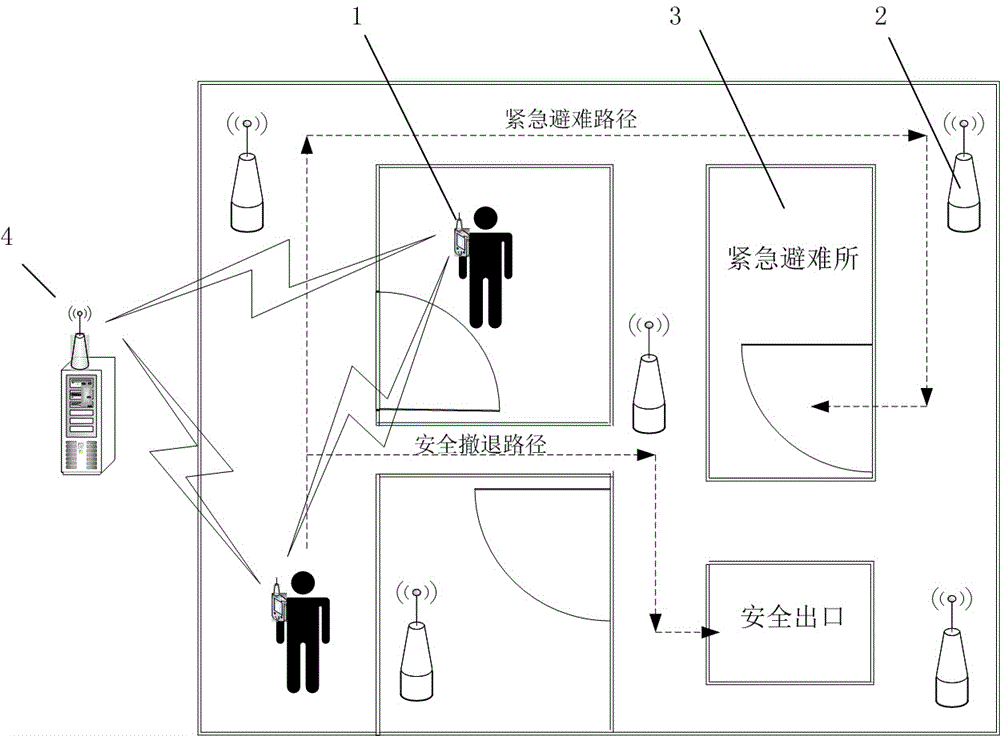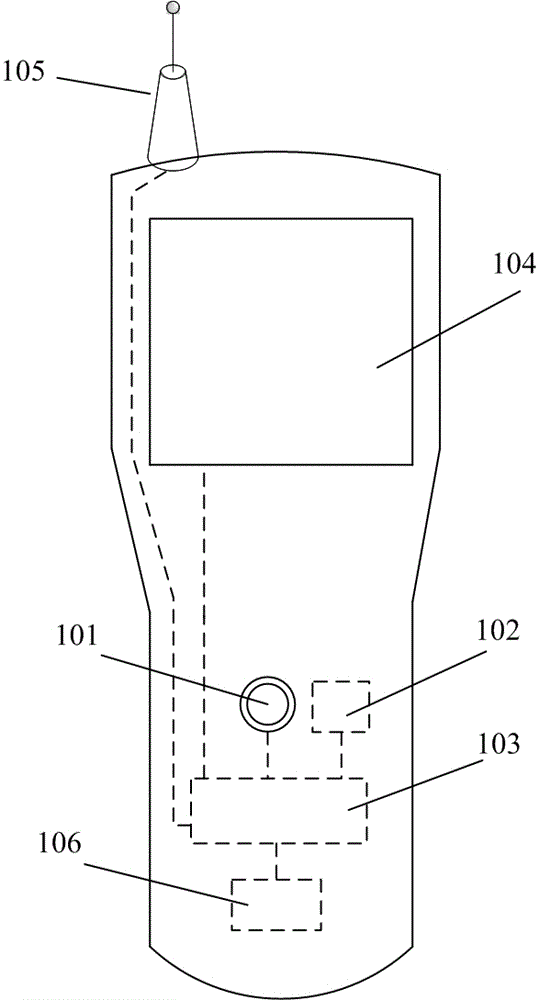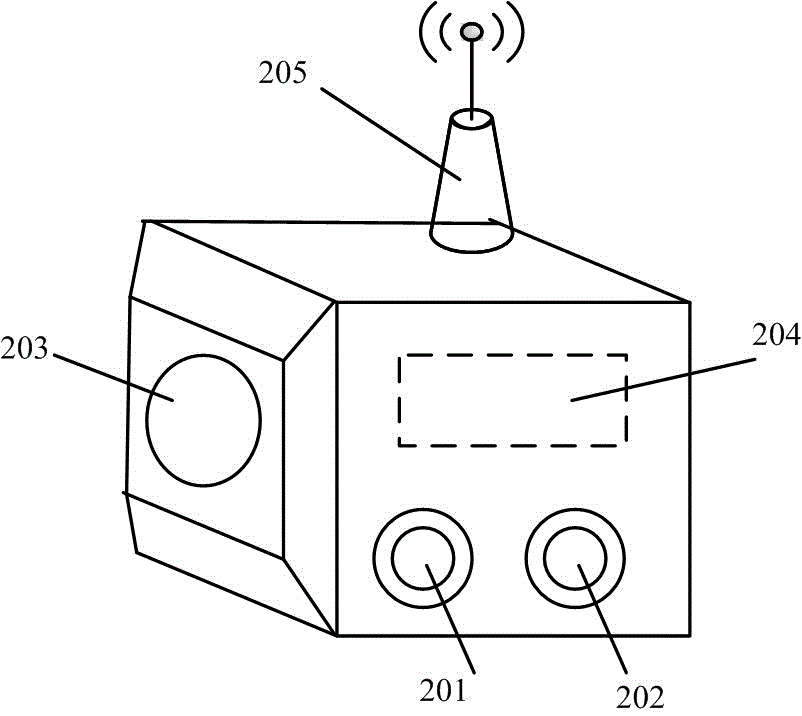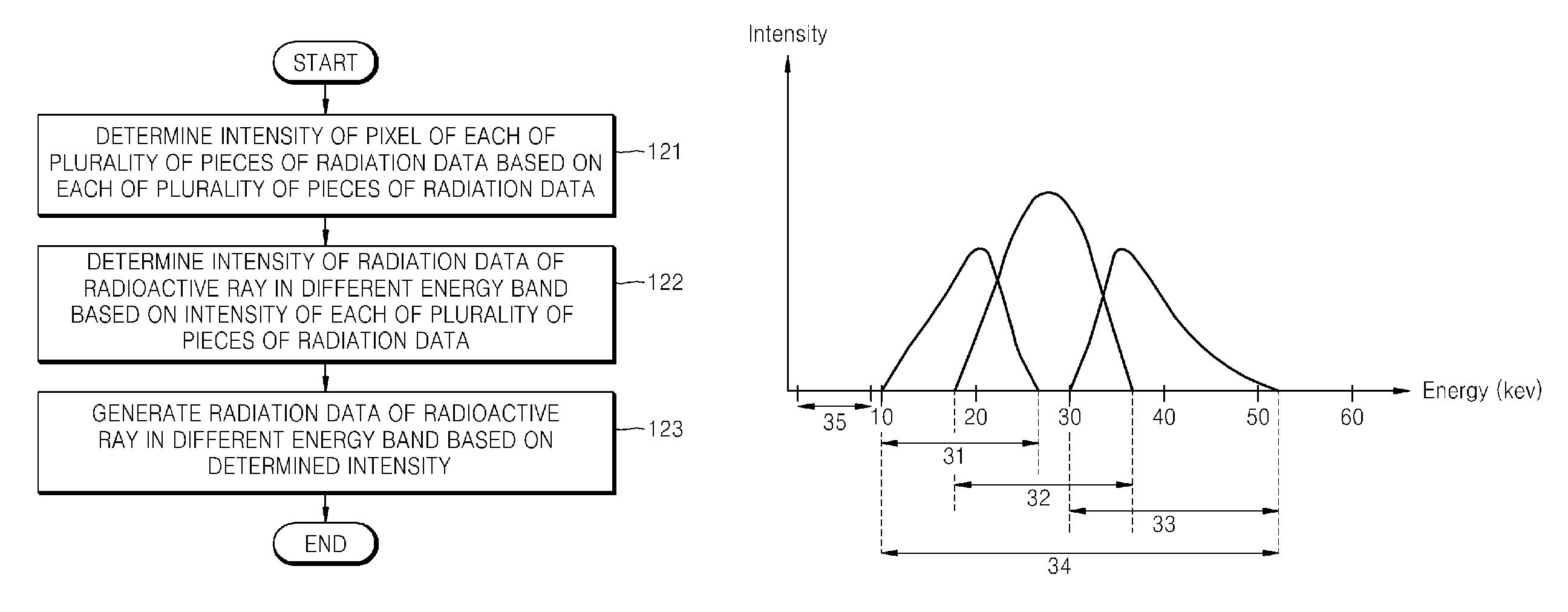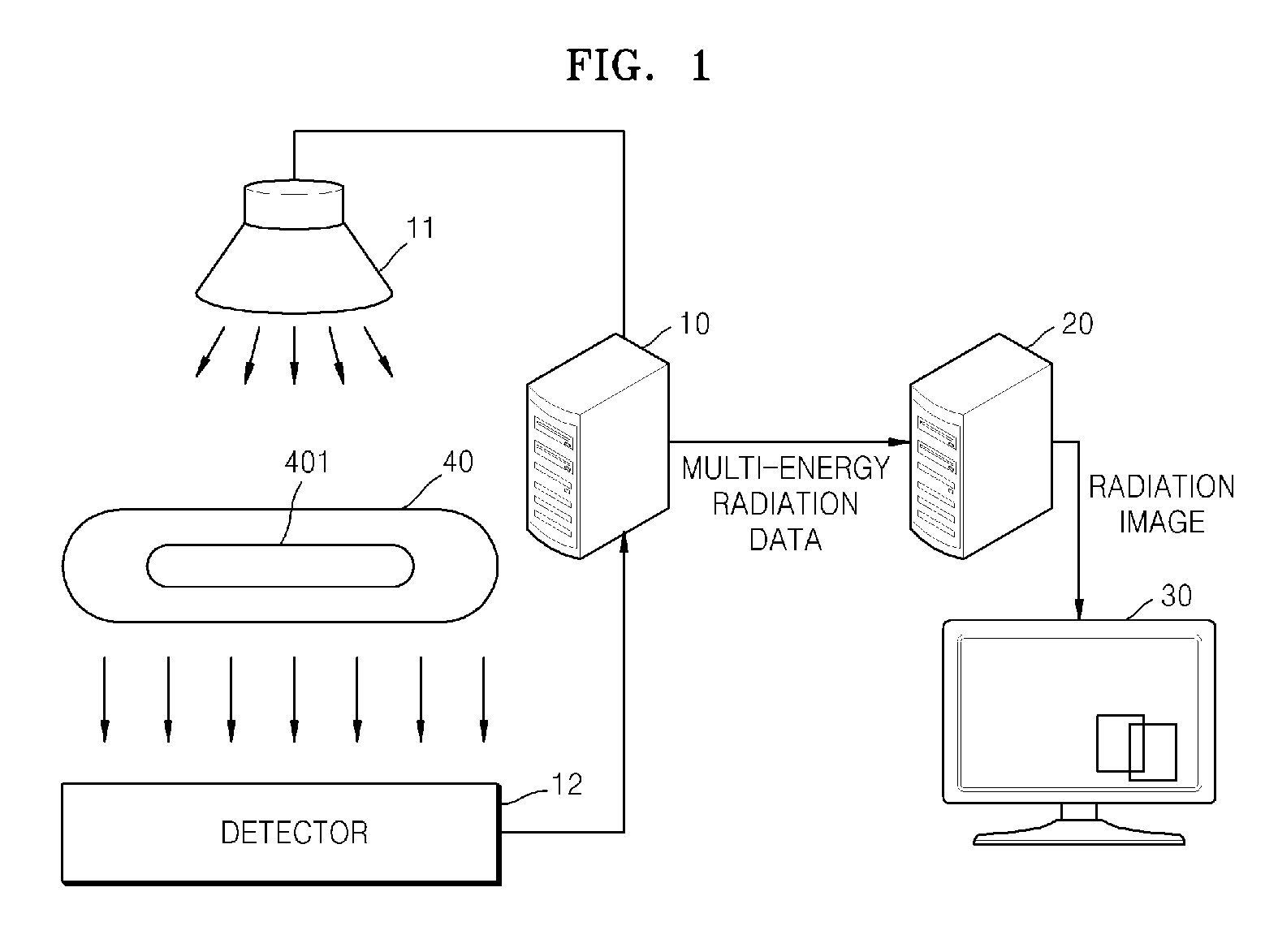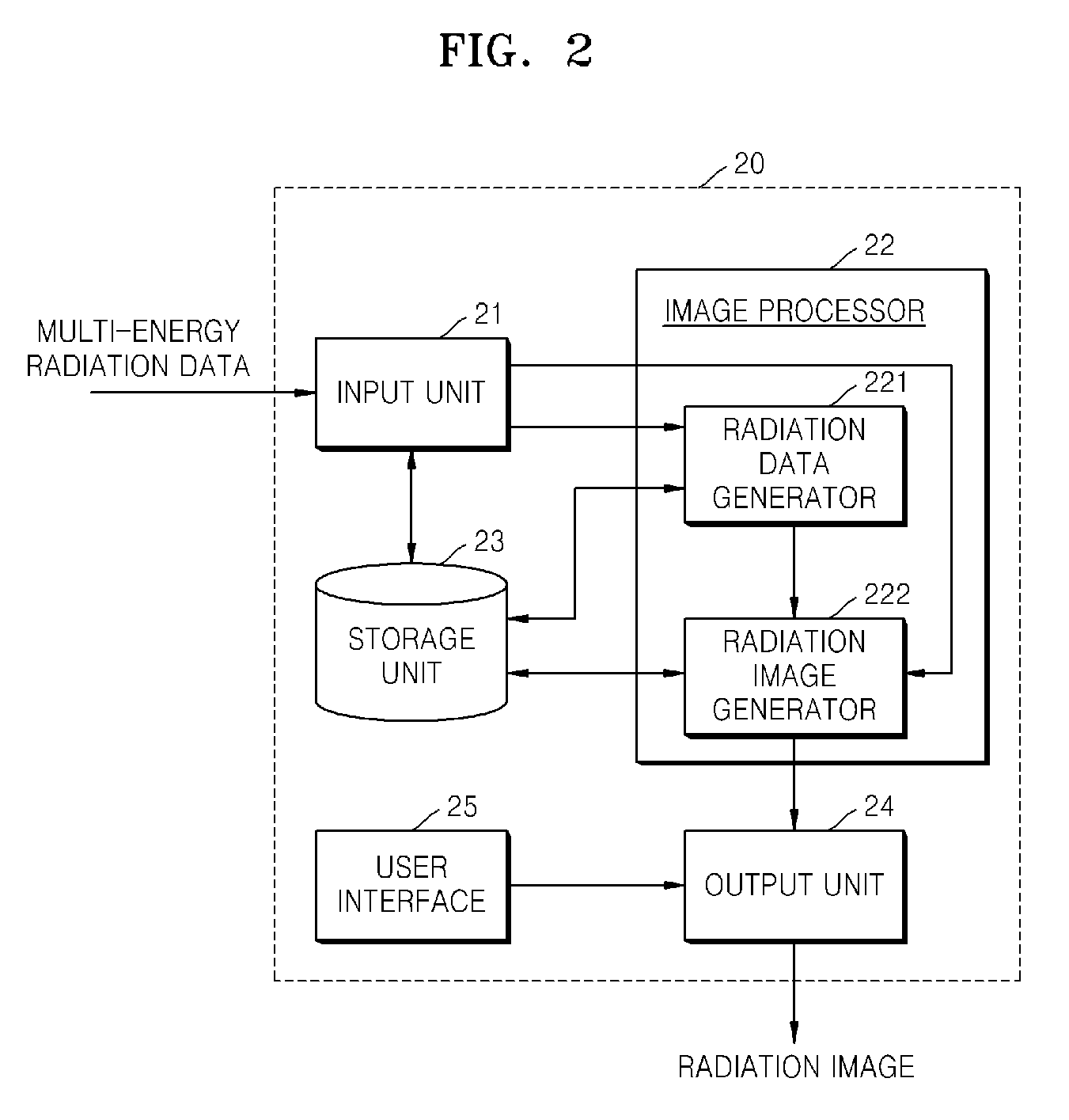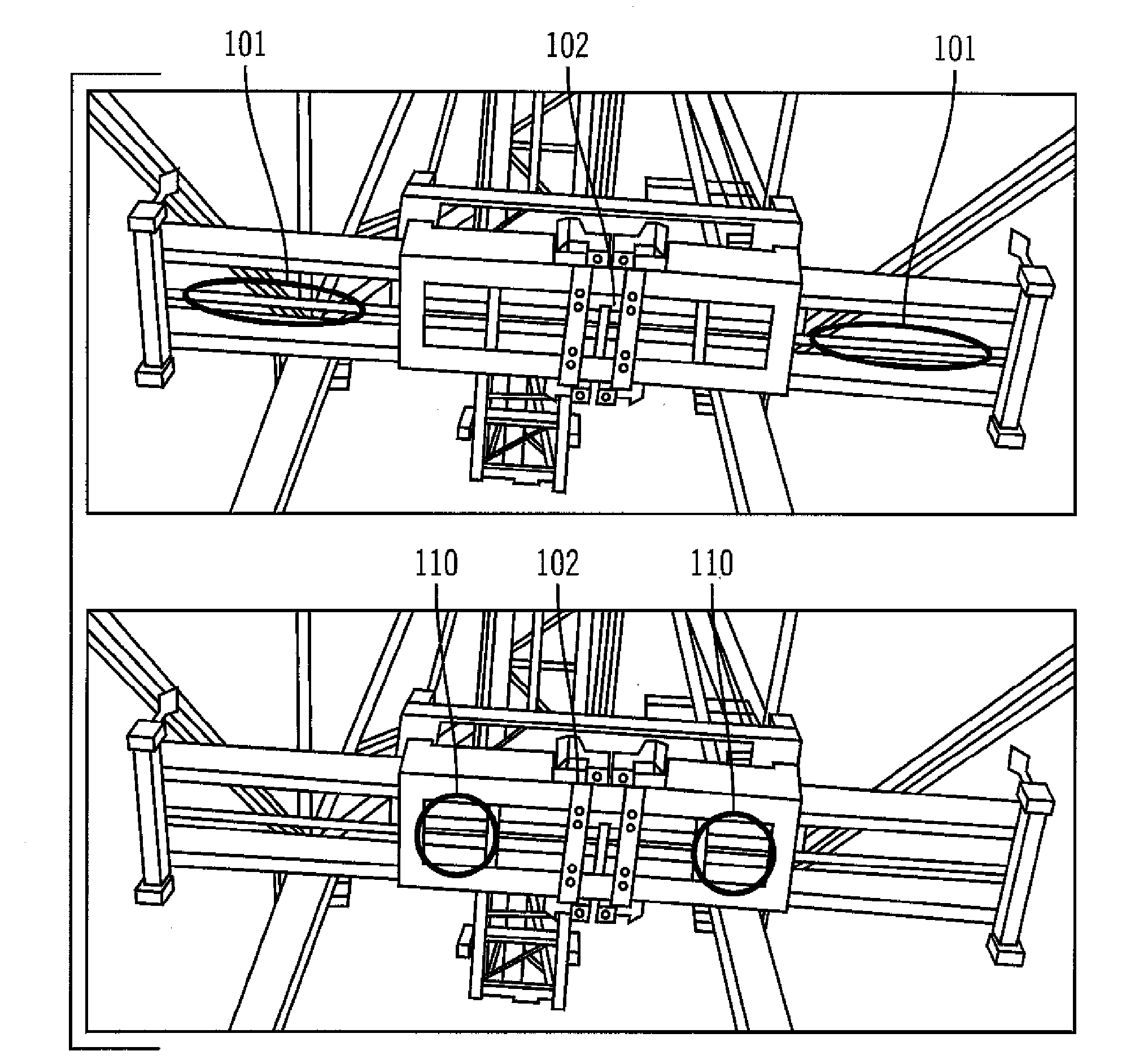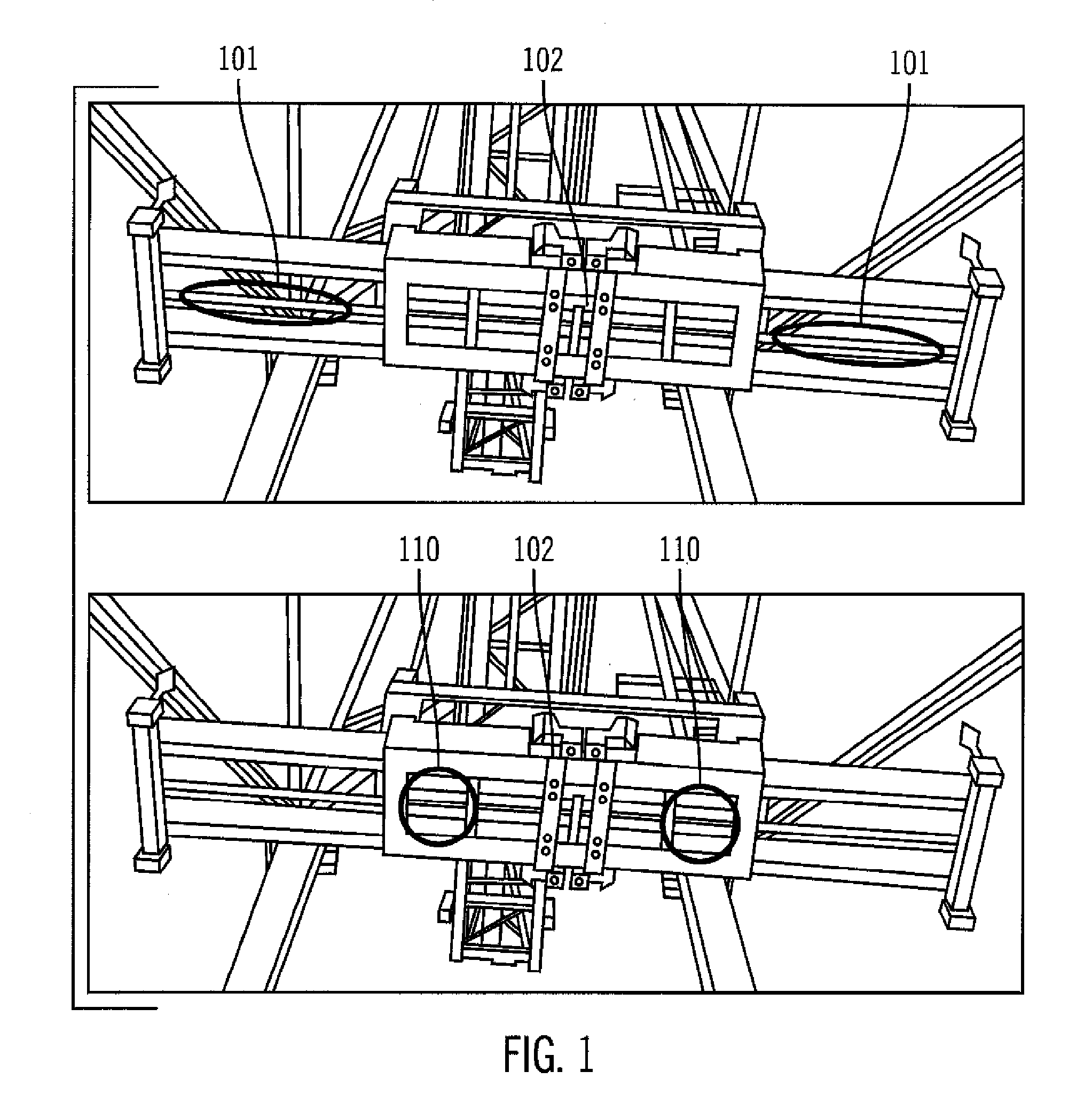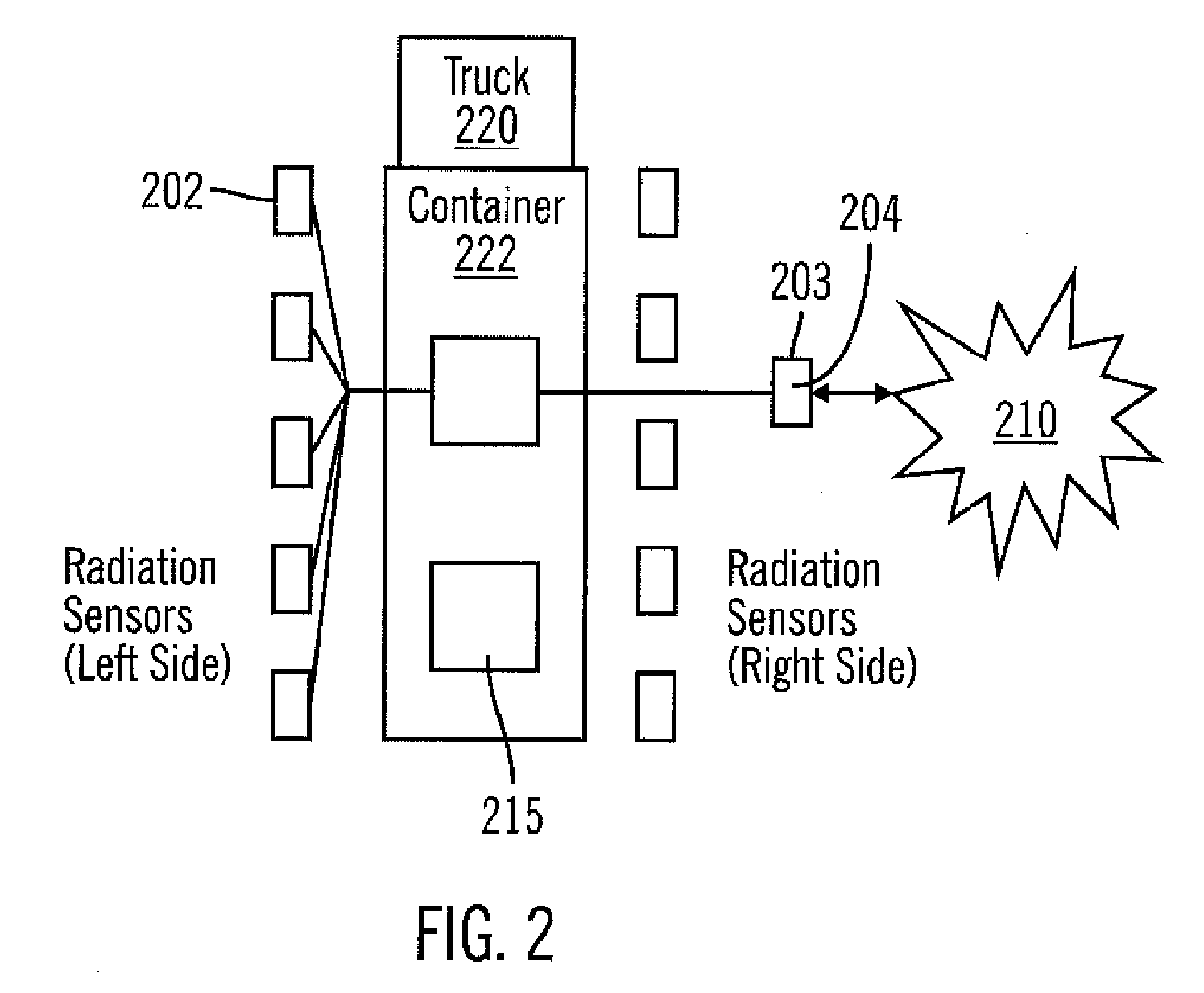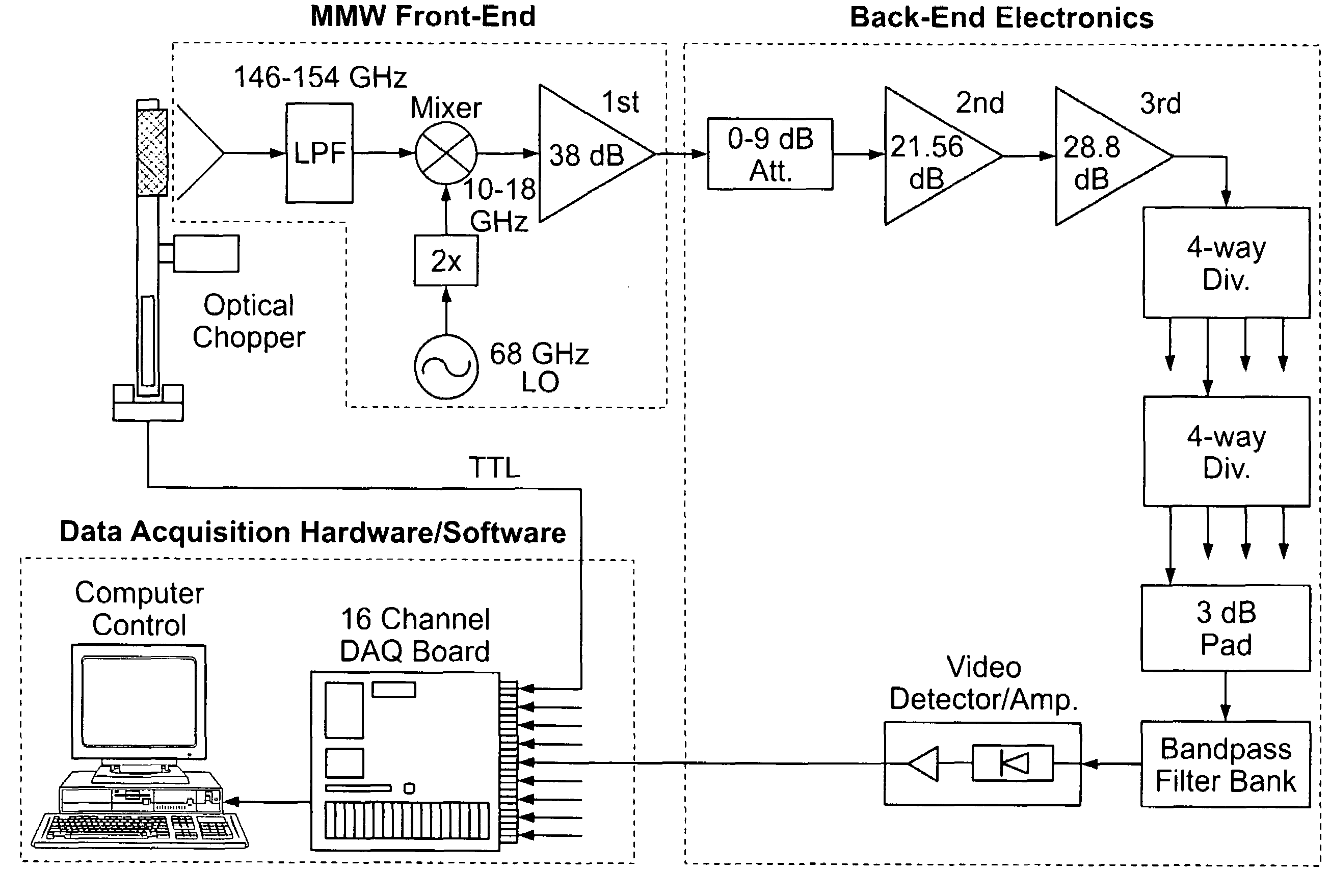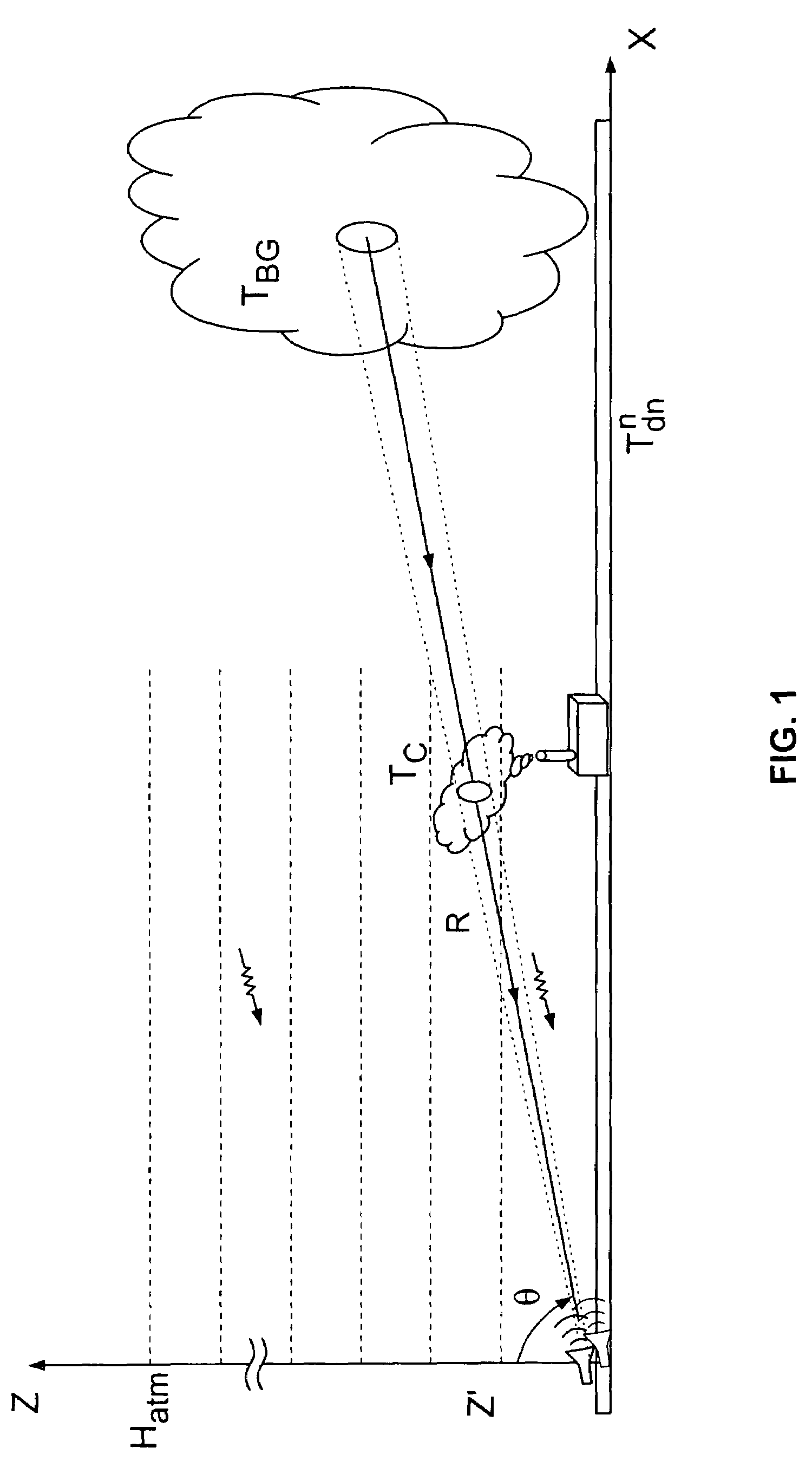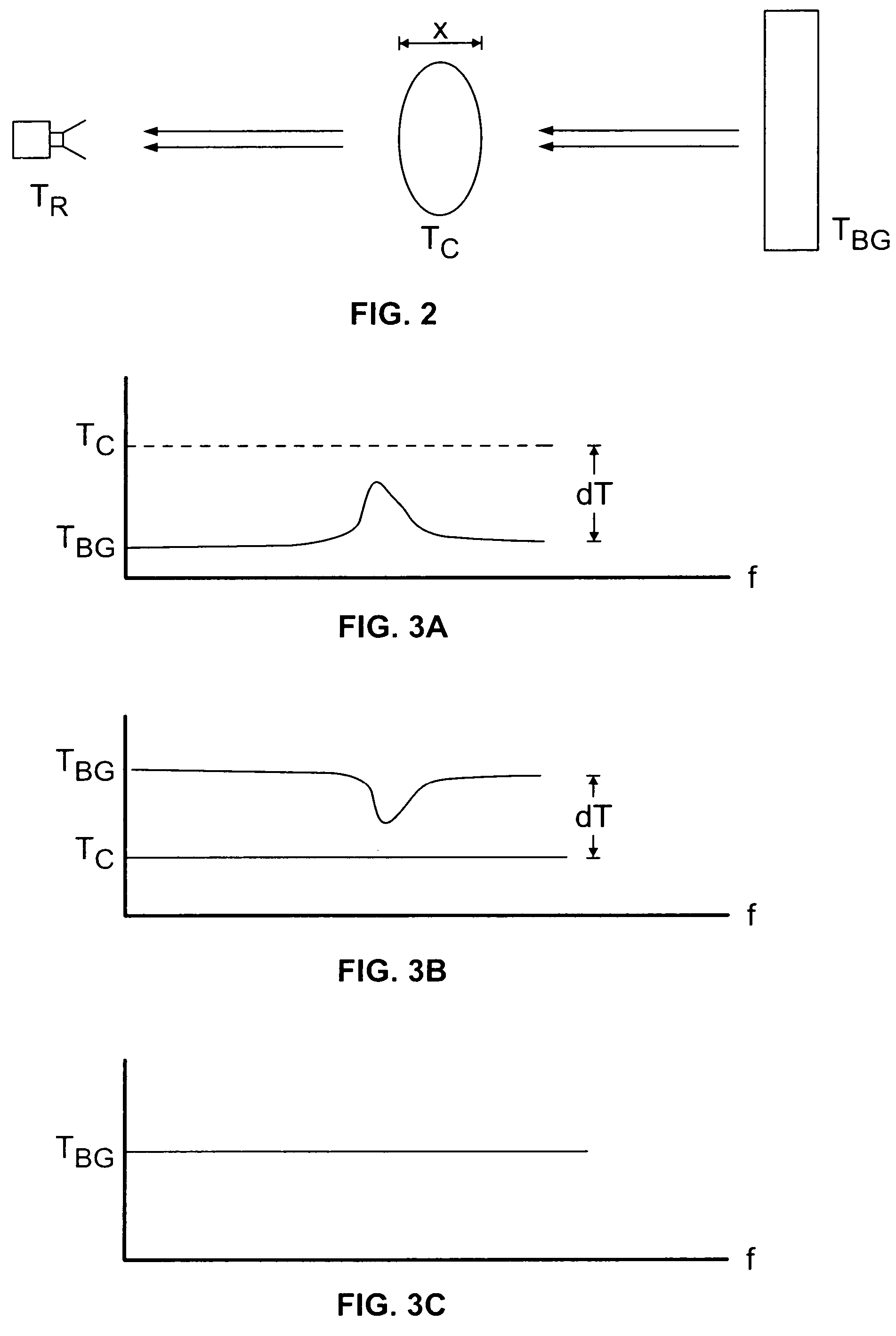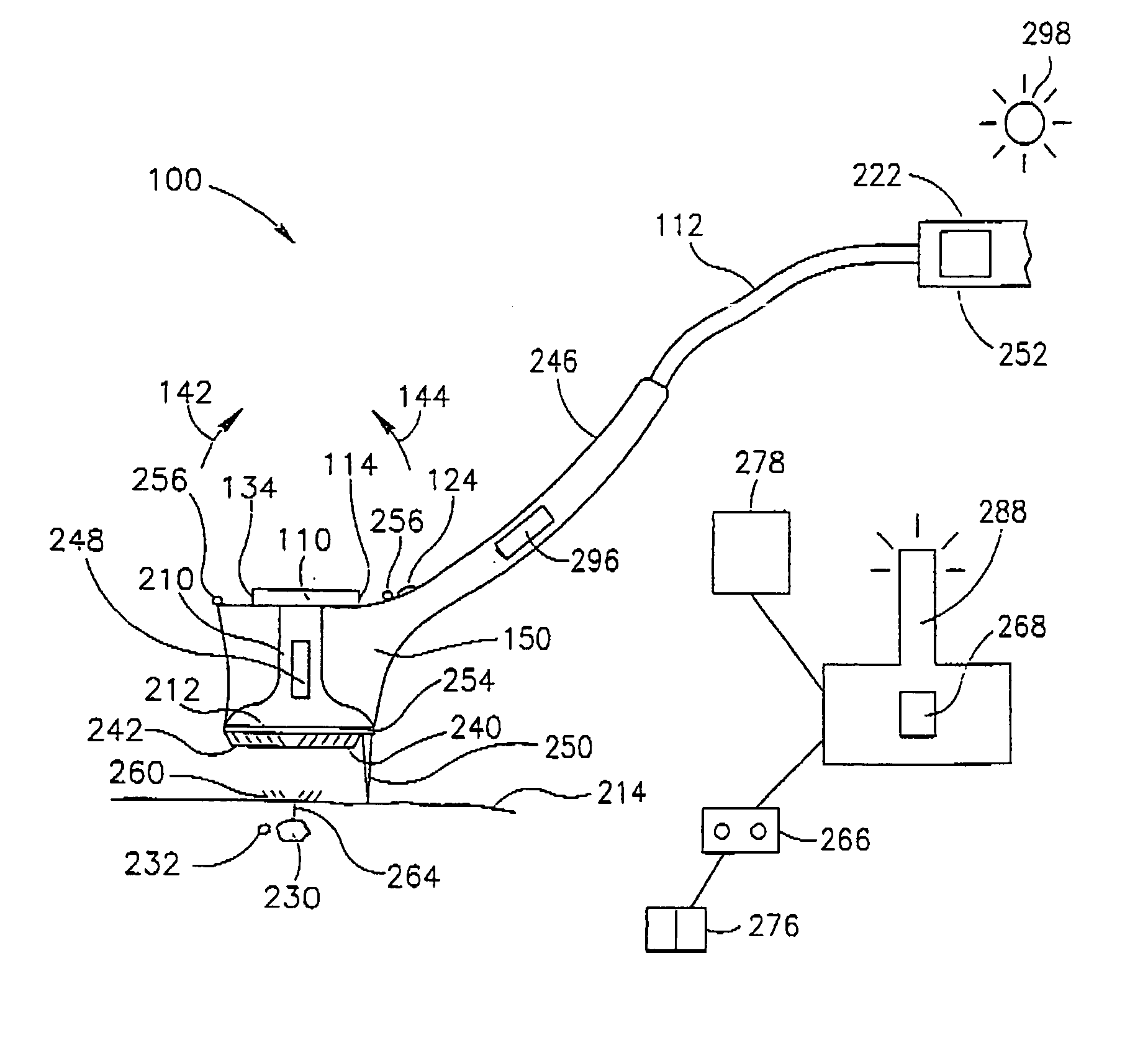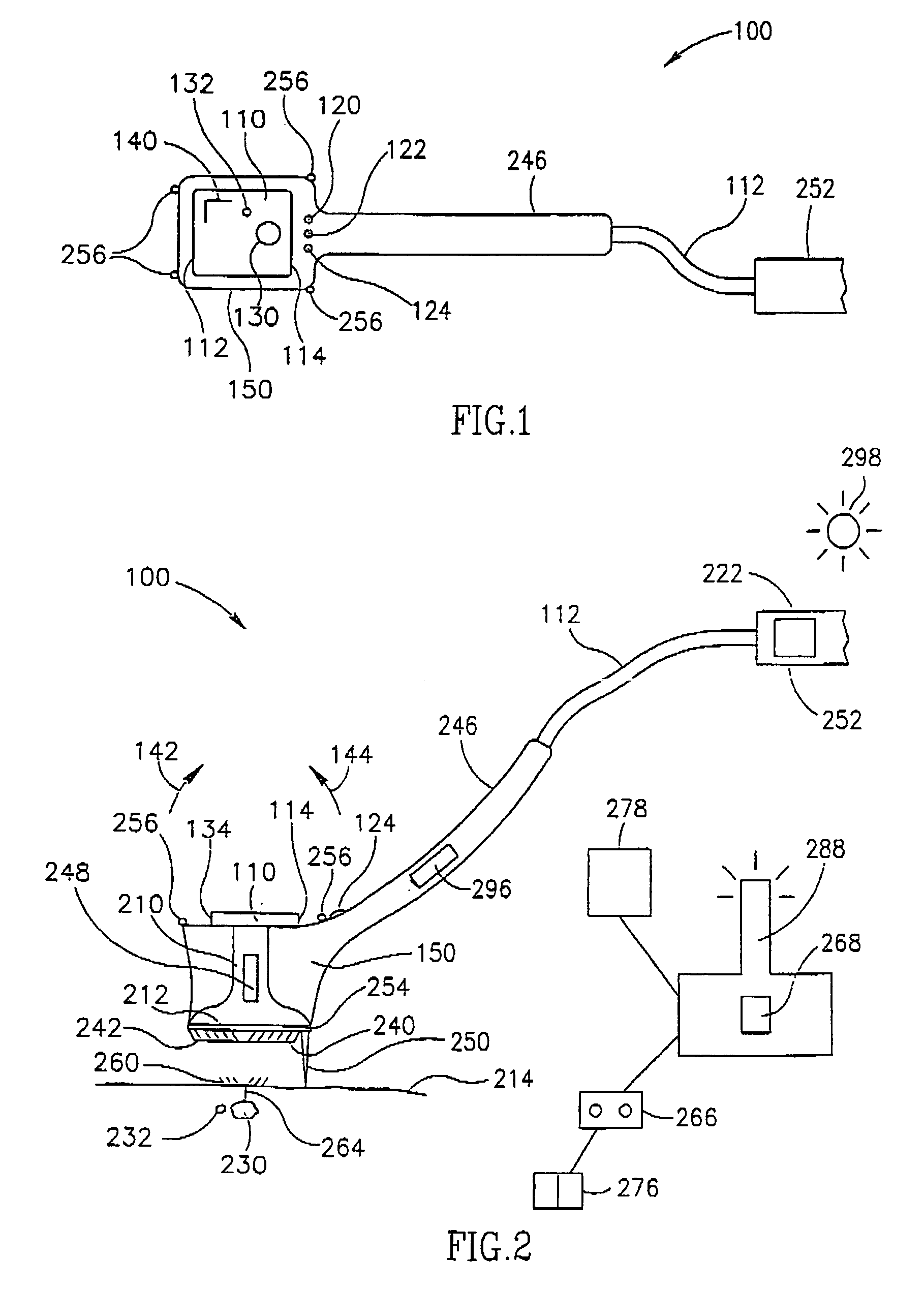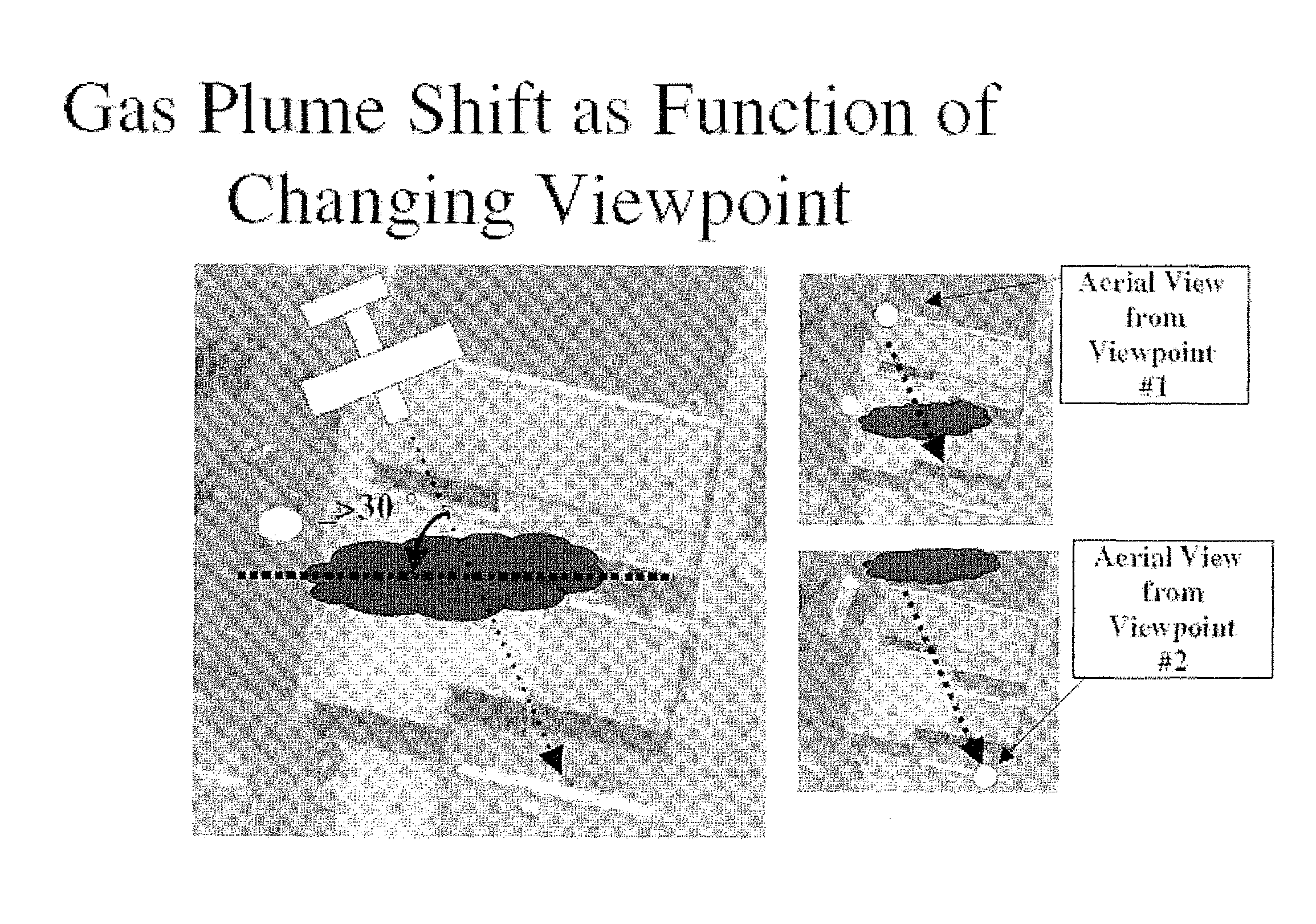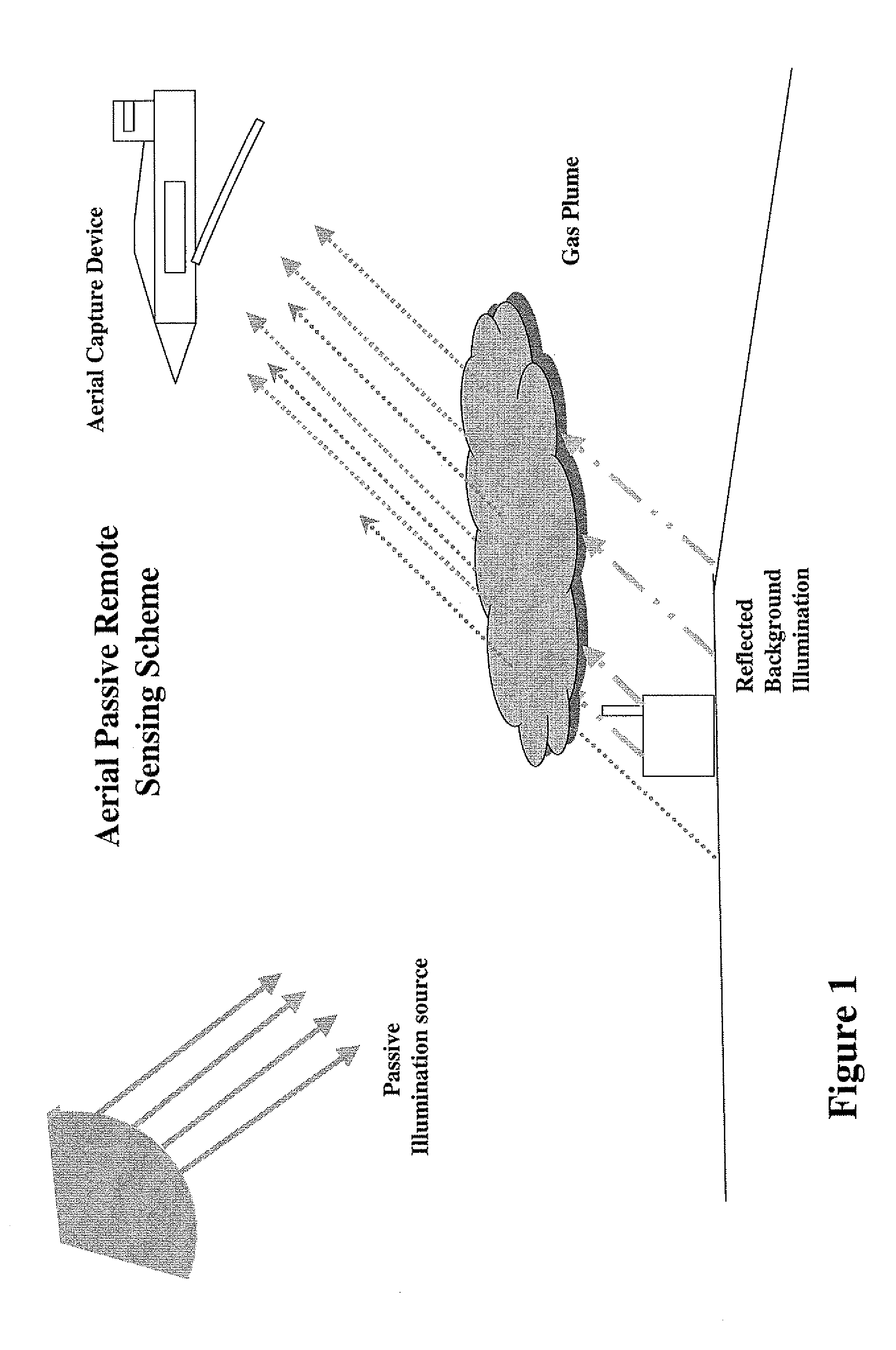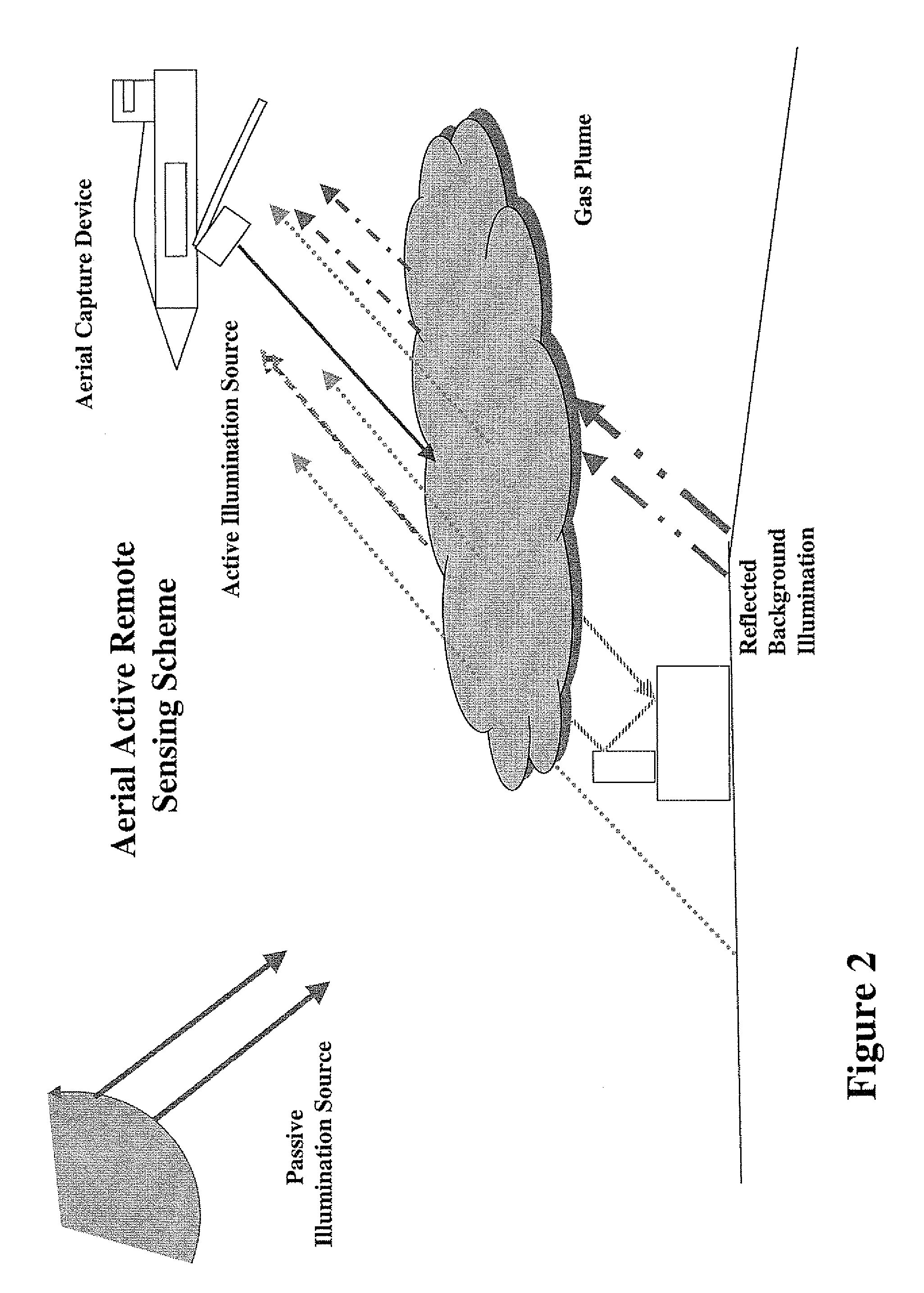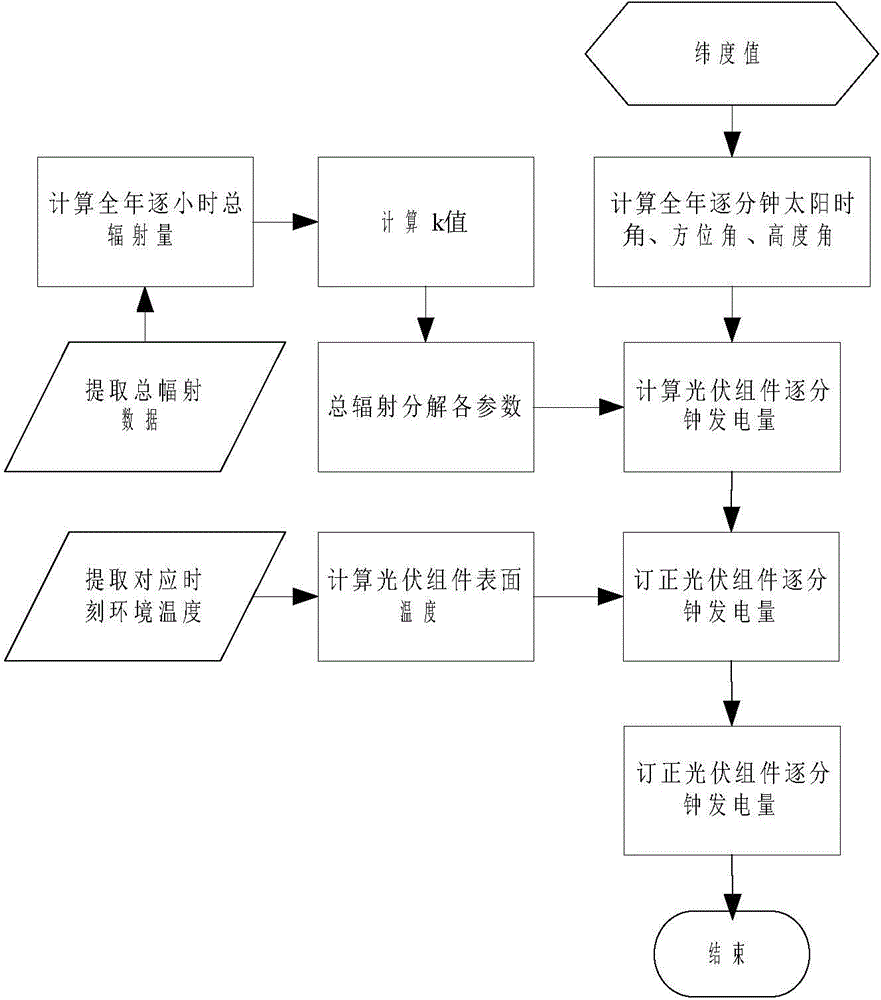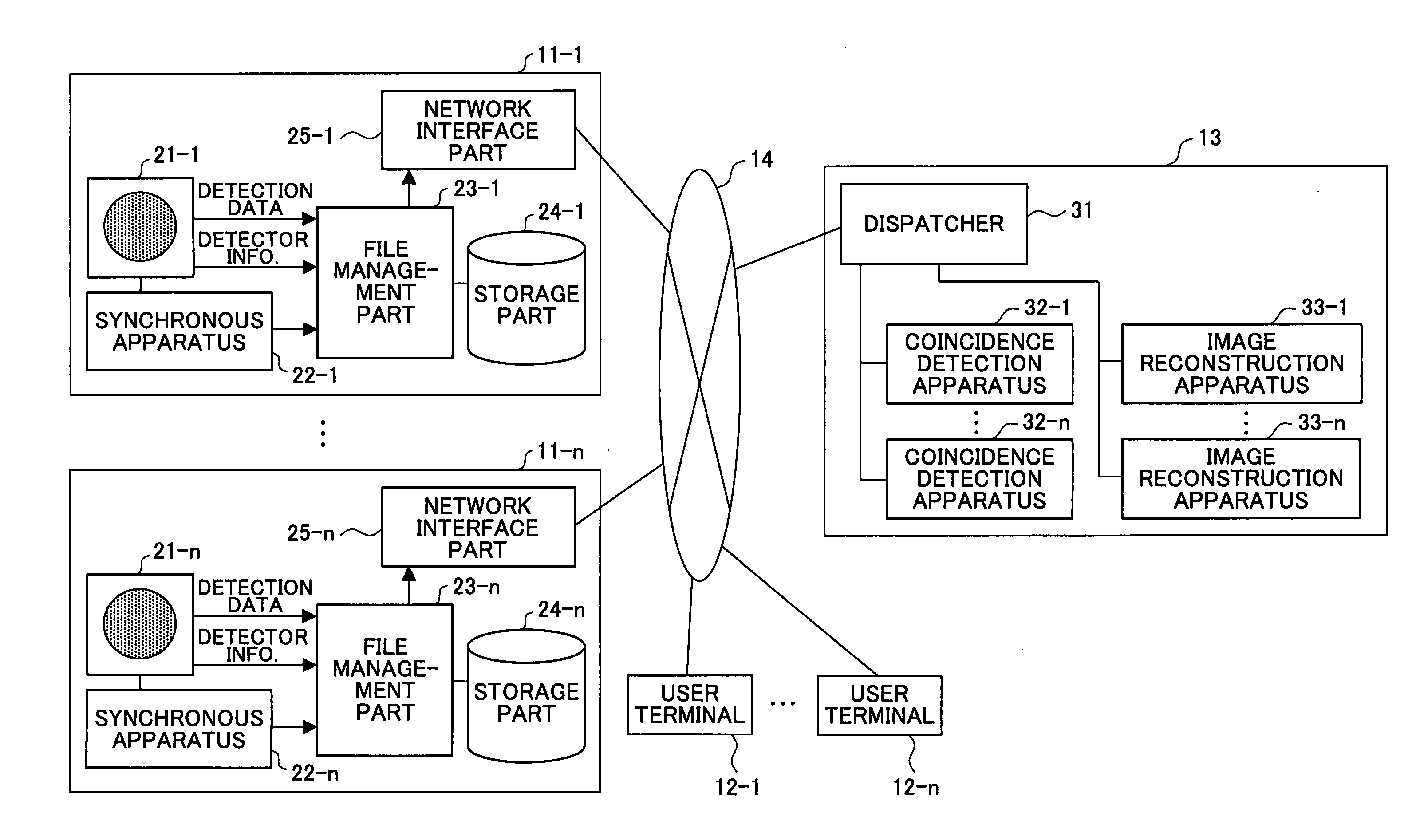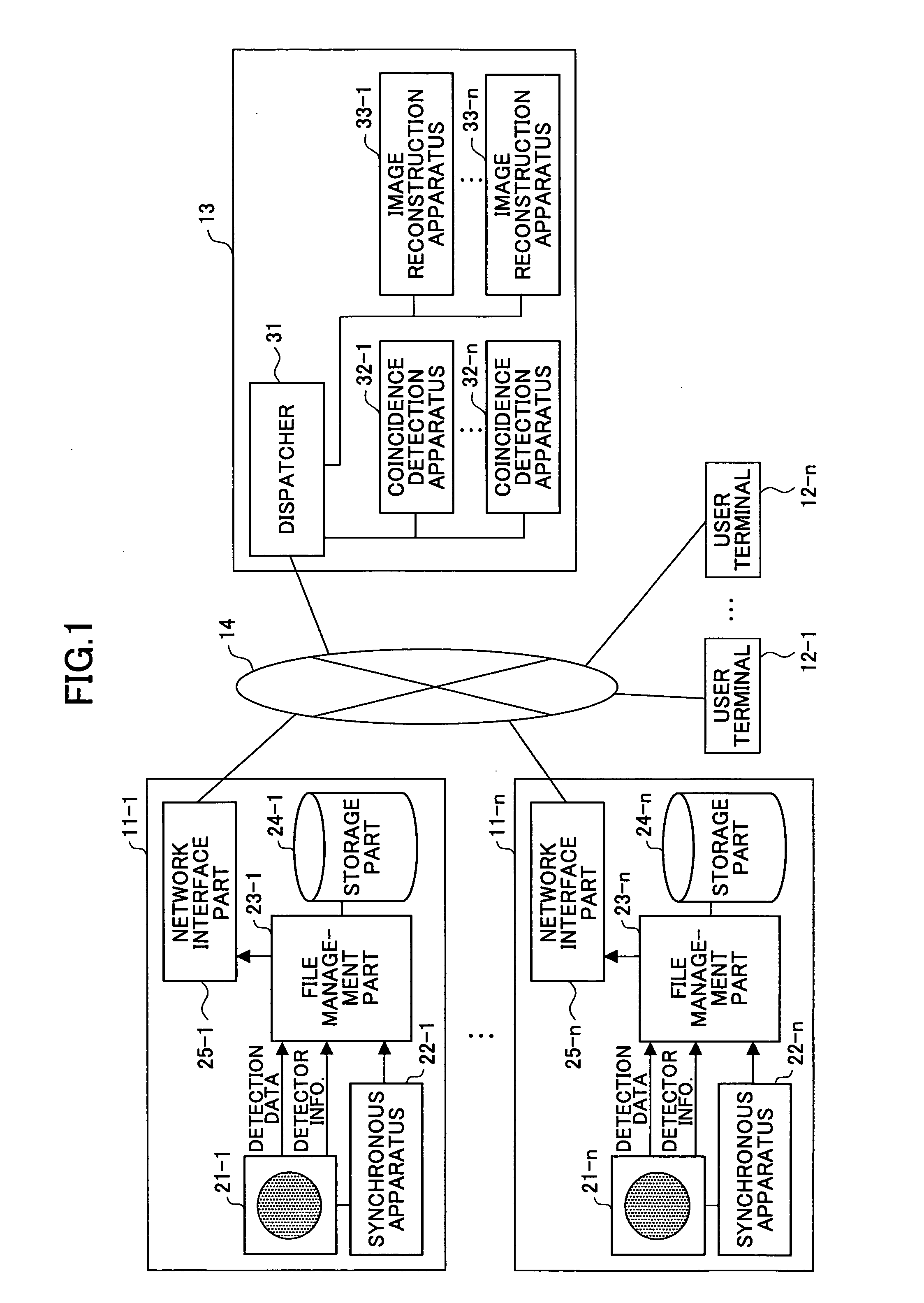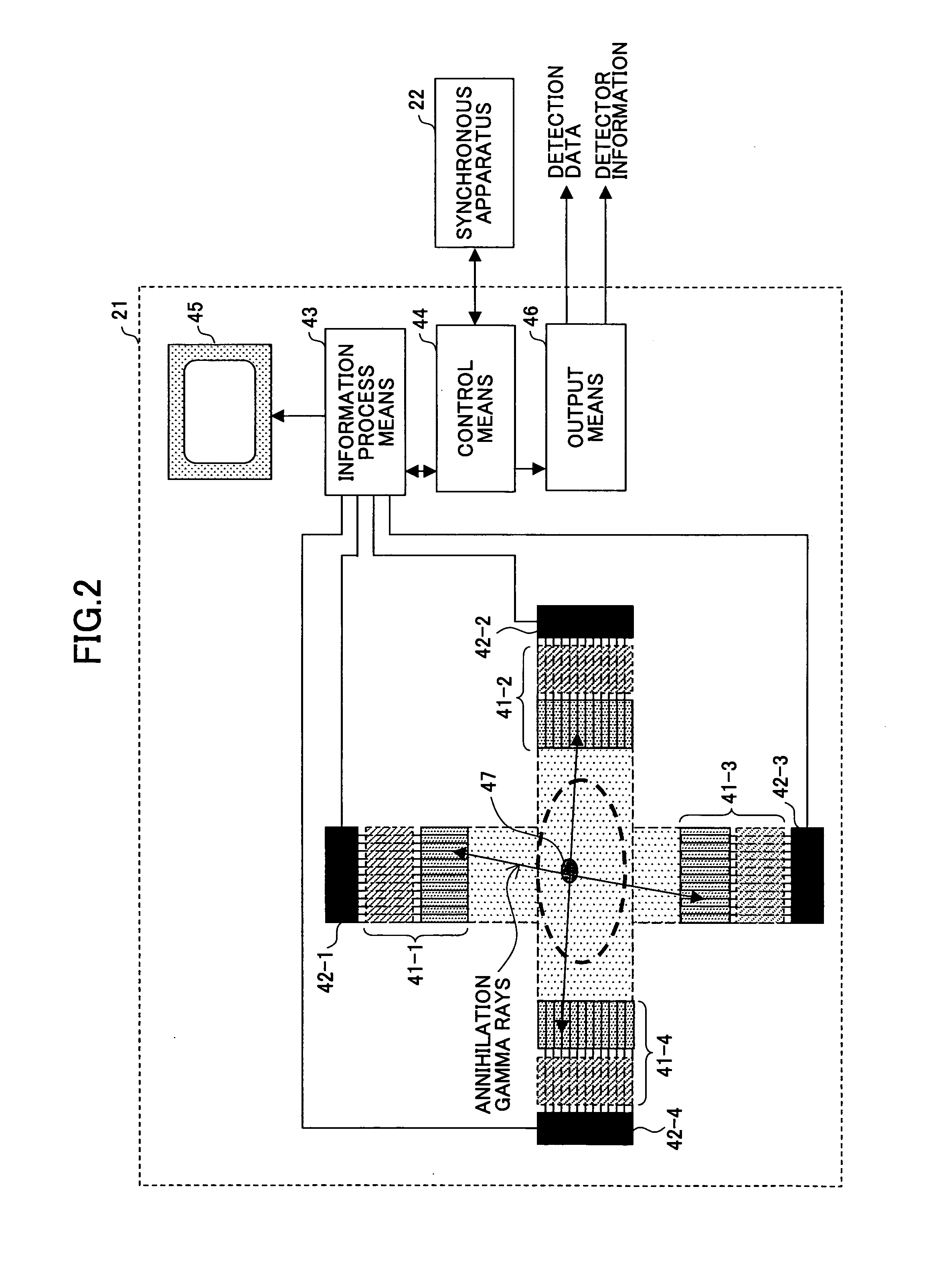Patents
Literature
163 results about "Radiometric data" patented technology
Efficacy Topic
Property
Owner
Technical Advancement
Application Domain
Technology Topic
Technology Field Word
Patent Country/Region
Patent Type
Patent Status
Application Year
Inventor
Method and apparatus of providing a radiation scorecard
ActiveUS20080103834A1Improve patient safetyReduce the environmentMechanical/radiation/invasive therapiesColor television detailsRadiation exposureRetrospective analysis
The present invention relates to a method to measure, record, analyze, and report cumulative radiation exposure to the patient population and provide automated feedback and recommendations to ordering clinicians and consultant radiologists. The data provided from this “radiation scorecard” would in turn be automatically recorded into a centralized data repository (radiation database), which would be independent to the acquisition site, technology employed, and individual end-user. Retrospective analysis can also be performed using a set of pre-defined scorecard data points tied to the individual patient's historical medical imaging database, thereby allowing for comprehensive (both retrospective and prospective) medical radiation exposure quantitative analysis. Patient safety can be improved by a combination of radiation dose reduction, exposure optimization, rigorous equipment quality control (QC), education and training of medical imaging professionals, and integration with computerized physician order entry (CPOE).
Owner:REINER BRUCE
Nuclear detection via a system of widely distributed low cost detectors
A radiation detection system includes many receivers to continuously receive radiation emission data from at least some of a sufficient density of dispersed detectors capable of communicating geo-positions and photon emission counts over a network; the data includes gamma intensities, time stamps, and geo-positions. A processor builds digital image data of the received radiation data for a geographic area by treating gamma-ray proton data from each dispersed detector as a pixel in a low-light image. The processor continuously executes a plurality of statistical computational analyses on the digital image data to separate detected radiation signals from random, undesired signal noise, and known signal noise or sources. The statistical computational analyses include match-filter and / or other convolution techniques. An interface reports to a user when the computational analyses result in detection of a radiation signal and reports a location of one or more of the dispersed detectors that contribute to the detection.
Owner:PURDUE RES FOUND INC
Cargo container inspection method
InactiveUS20080298546A1Improve signal-to-noise ratioEnhanced radiationMaterial analysis by optical meansMachines/enginesData setSignal-to-noise ratio (imaging)
A method of improving a signal to noise ratio of an image data set of a cargo container is disclosed. The method includes transmitting a radiation beam toward the cargo container, detecting the transmitted radiation beam via a plurality of area radiation detectors, each area radiation detector comprising an active area defined by a matrix of pixels, thereby defining enhanced radiation data, processing the enhanced radiation data and reconstructing the image data set representative of contents of the cargo container, combining image attributes of the image data set to improve the signal to noise ratio, thereby defining an enhanced image data set, and displaying on a display the enhanced image data set comprising an improved signal to noise ratio.
Owner:MORPHO DETECTION INC
Lithographic apparatus and device manufacturing method utilizing 2D run length encoding for image data compression
A lithographic apparatus comprises an array of individually controllable elements and a data processing pipeline. The array of individually controllable elements modulates a beam of radiation. The data processing pipeline converts a first representation of a requested dose pattern to a sequence of control data suitable for controlling the array of individually controllable elements in order substantially to form the requested dose pattern on a substrate. The data processing pipeline comprises an offline pre-processing device and an online rasterizer. The offline pre-processing device converts the first representation of the requested dose pattern to an intermediate representation, which can be rasterized in a fewer number of operations than the first representation. The storage device stores the intermediate representation. The online rasterizer accesses the stored intermediate representation and produces therefrom a stream of bitmap data to be used to generate the sequence of control data substantially in real time.
Owner:ASML NETHERLANDS BV
Container verification system for non-invasive detection of contents
InactiveUS7142109B1Accurate CalibrationRemove noiseMeasurement with semiconductor devicesMaterial analysis using microwave meansPower sensorEngineering
A radiation, explosives, and special materials, detection and identification system includes a housing supporting one or more gamma sensors and one or more solid-state neutron sensors proximate to container contents under examination. The system collects radiation data from the sensors and compares the collected data to one or more stored spectral images representing one or more isotopes to identify one or more isotopes present. The identified one or more isotopes present are corresponded to possible materials or goods that they represent. The possible materials or goods are compared with the manifest relating to the container to confirm the identity of materials or goods contained in the container or to detect and / or identify unauthorized materials or goods in the container. A battery powered sensor arrangement is also disclosed.
Owner:S2 PHOTONICS LLC +1
Container verification system for non-invasive detection of contents
InactiveUS20060261942A1Remove noiseEliminate vibrationMeasurement with semiconductor devicesMaterial analysis using microwave meansPower sensorEngineering
A radiation, explosives, and special materials, detection and identification system includes a housing supporting one or more gamma sensors and one or more solid-state neutron sensors proximate to container contents under examination. The system collects radiation data from the sensors and compares the collected data to one or more stored spectral images representing one or more isotopes to identify one or more isotopes present. The identified one or more isotopes present are corresponded to possible materials or goods that they represent. The possible materials or goods are compared with the manifest relating to the container to confirm the identity of materials or goods contained in the container or to detect and / or identify unauthorized materials or goods in the container. A battery powered sensor arrangement is also disclosed.
Owner:S2 PHOTONICS LLC +1
Gamma camera
InactiveUS6906330B2Easy to holdEasy to manipulateSolid-state devicesMaterial analysis by optical meansHand heldDisplay device
A hand gamma camera system for generating an image of a gamma radiation source, said camera comprising a housing designed to be hand held, a gamma radiation image detector mounted on or in said housing that generates detection data responsive to radiation data from a gamma source incident on said radiation detector, a controller connected to said radiation detector that receives said detection data and generates image data and a display mounted on or in said housing that receives said image data from said controller and generates an image.
Owner:ELGEMS
Multi-stage system for verification of container contents
InactiveUS7760103B2Further analysisWithout negative impact to the flow of commerceMeasurement with semiconductor devicesMaterial analysis by optical meansNeutron pulseIsotope
A multi-stage process utilizing one or more radiation sensors on a distributed network for the detection and identification of radiation, explosives, and special materials within a shipping container. The sensors are configured as nodes on the network. The system collects radiation data from one or more nodes and compares the collected data to one or more stored spectral images representing one or more isotopes to identify one or more isotopes present. The identified one or more isotopes present are corresponded to possible materials or goods that they represent. The possible materials or goods are compared with the manifest relating to the container to confirm the identity of materials or goods contained in the container or to detect and / or identify unauthorized materials or goods in the container. For shielded materials, explosives and other types of material detection, a neutron pulse device could be incorporated into the system.
Owner:S2 PHOTONICS LLC +1
Multi-stage system for verification of container contents
InactiveUS20080048872A1Measurement with semiconductor devicesX/gamma/cosmic radiation measurmentNeutron pulseIsotope
Owner:S2 PHOTONICS LLC +1
Photovoltaic power prediction method based on a convolutional neural network and meta-learning
ActiveCN110070226AEfficient analysisImprove forecast accuracyForecastingNeural architecturesPredictive methodsNetwork model
The invention discloses a photovoltaic power prediction method based on a convolutional neural network and meta-learning. The method belongs to the technical field of renewable energy development andutilization, and comprises the steps of establishing a deep convolutional neural network model, taking historical photovoltaic power data, historical meteorological data and numerical meteorological forecast data as model input, and taking photovoltaic power of a day to be predicted as output to form a model training sample; analyzing the weather type of the day to be predicted based on the radiation data in the numerical weather forecast, and selecting a similar day training sample; based on a meta-learning strategy and similar day training samples, training a neural network model by using eight loss function indexes, and outputting eight prediction results to realize point prediction and probability prediction of photovoltaic power. The invention also discloses a prediction system of themethod. The method can adapt to photovoltaic power prediction conditions of different seasons and different weathers, has extremely high prediction precision, and can effectively improve the operation stability of the photovoltaic grid-connected system.
Owner:HOHAI UNIV
System and method for photovoltaic plant power curve measurement and health monitoring
InactiveUS20110282600A1Detect degradationPhotovoltaic monitoringElectric devicesTime rangeEngineering
A photovoltaic (PV) plant power curve measurement system determines normalized irradiation data in response to algorithmic software based on measured or calculated irradiance at one or more desired PV plant locations. The measurement system also measures PV plant electrical power and generates an estimated power curve map of corresponding photovoltaic plant electrical power as a function of the normalized irradiation data and the measured PV plant electrical power, such that corresponding power curve data can be compared to historical, theoretical or simulated power curve data based on normalized irradiation data for the photovoltaic plant to detect degradation of the photovoltaic plant in a desired time frame.
Owner:GENERAL ELECTRIC CO
Method for remote spectral analysis of gas plumes
ActiveUS20090257622A1Reduce the impactAnalysing fluids using sonic/ultrasonic/infrasonic wavesMaterial analysis by electric/magnetic meansParallaxImaging processing
A method for reducing the effects of background radiation introduced into gaseous plume spectral data obtained by an aerial imaging sensor, includes capturing spectral data of a gaseous plume with its obscured background along a first line of observation and capturing a second image of the previously obscured background along a different line of observation. The parallax shift of the plume enables the visual access needed to capture the radiometric data emanating exclusively from the background. The images are then corresponded on a pixel-by-pixel basis to produce a mapping. An image-processing algorithm is applied to the mapped images to reducing the effects of background radiation and derive information about the content of the plume.
Owner:RAFAEL ADVANCED DEFENSE SYSTEMS
Method and apparatus for acquiring radiation data
Method and apparatus for sensing and acquiring radiation data comprises sensing radiation events with a multi-modality detector. The detector comprises solid state crystals forming a matrix of pixels which may be arranged in rows and columns, and has a radiation detection field for sensing radiation events. The radiation events for each pixel are counted by an electronic module attached to each pixel. The electronic module comprises a threshold analyzer for analyzing the radiation events. The threshold analyzer identifies valid events by comparing an energy level associated with the radiation event to a predetermined threshold. The electronic module further comprises at least a first counter for counting the valid events.
Owner:GE MEDICAL SYST ISRAEL
Method for predicting radiation of photovoltaic power station based on all-sky nephogram
ActiveCN106779130ARadiation predictionRadiation accurateClimate change adaptationForecastingPredictive methodsMotion vector
The invention provides a method for predicting radiation of a photovoltaic power station based on an all-sky nephogram. The method comprises the steps of building a clear sky radiation model according to historical radiation data of clear sky of the photovoltaic power station; acquiring motion vectors and cloud form variation trends of cloud clusters with different thicknesses in a future time period by using the all-sky nephogram; acquiring the solar intensity in the cloud clusters; and building an ultra-short term radiation prediction model, and performing prediction on the radiation of the photovoltaic power station in the future time period. The method provided by the invention is accurate and effective, and can accurately predict the radiation of a future time period on the basis of ensuring predicted data output of basic weather types; accurate prediction for moving conditions of cloud clusters within a certain period of time in the future and conditions of radiation attenuation caused by shielding of various cloud clusters for the solar radiation is realized, so that the radiation of the photovoltaic power station in the future time period can be predicted accurately, accurate and effectively decision-making support is provided for power dispatching, thus the operation cost of an electric power system is reduced, and greater economic benefits and social benefits are acquired.
Owner:CHINA ELECTRIC POWER RES INST +1
Distributed system for radiation detection utilizing multiple clustered detectors
ActiveUS8502158B1Intuitive imageEasy to understandMaterial analysis by optical meansPhotometry using electric radiation detectorsComputer scienceData integration
Owner:POLIMASTER IP SOLUTIONS
System and method for detecting, tracking and identifying a gas plume
A system and method for detecting, tracking and identifying a gas plume. The system comprises a processor and a detector in communication with the processor. The detector is effective to detect spectral radiance from a region of interest to detect first and second detected spectral radiance data with a known time difference. A database is in communication with the processor, the database includes a library. The processor is effective to create at least a first image and a second image from the first and second detected spectral radiance data and co-register the first and second images to produce a first co-registered image and a second co-registered image. The processor is further effective to subtract the first co-registered image from the second co-registered image to produce a difference image and generate a cluster region around a difference region in the difference image. The processor is further effective to analyze the spectral radiance from the cluster region to produce a spectral characteristic curve; and correlate the spectral characteristic curve against the library to identify the gas plume.
Owner:BAE SYST INFORMATION & ELECTRONICS SYST INTERGRATION INC
Marine environment nuclear radiation monitoring system and monitoring method thereof
PendingCN110542917AHigh continuous data acquisition rateRich forward interfaceIndication of weather conditions using multiple variablesTesting waterData acquisitionBuoy
The invention discloses a marine environment nuclear radiation monitoring system and a monitoring method thereof. The monitoring system comprises marine environment monitoring equipment, a marine monitoring buoy and a remote monitoring platform, wherein the marine environment monitoring equipment comprises a PH value sensor, a dissolved oxygen sensor, a salinity sensor, a temperature sensor, a nuclear radiation sensor, a meteorological sensor and a GPS (global positioning system); a data acquisition interface module, an intelligent sensor interface module, a power monitoring module, a data acquisition processing computer and a data communication module are carried in the marine monitoring buoy; and the remote monitoring platform comprises a database server, a monitoring center upper computer and a movement monitoring terminal. In order to achieve the purpose of real-time online monitoring, marine environment data, environment nuclear radiation data and meteorological data are acquiredin real time and transmitted to the monitoring platform for decision analysis, the nuclear radiation level of the marine environment and other environment information can be effectively monitored, andpollution to the marine environment due to possible nuclear accidents can be warned early.
Owner:SOUTH CHINA UNIV OF TECH
Method for predicting hourly scattering ratios on basis of astronomical and meteorological environmental factors
ActiveCN107991721AReliable resultsAccurate divisionWeather condition predictionPredictive methodsPrincipal component analysis
The invention relates to a method for predicting hourly scattering ratios on the basis of astronomical and meteorological environmental factors. The method includes steps of (1), acquiring radiation data, astronomical data and meteorological environmental data; (2), dividing weather types including fine weather types, fine-to-cloudy weather types, fine-to-overcast weather types, cloudy-to-overcastweather types and rain, snow and haze weather types; (3), selecting preset models according to the weather types to predict the hourly scattering ratios, to be more specific, predicting the hourly scattering ratios by the aid of PCA-LMBP (principal component analysis-Levenberg Marquardt back propagation) neural network models when the weather types are the fine weather types, the fine-to-cloudy weather types and the fine-to-overcast weather types, predicting the hourly scattering ratios by the aid of LMBP neutral network models when the weather types are the cloudy-to-overcast weather types,and predicting the hourly scattering ratios by the aid of linear regression models when the weather types are the rain, snow and haze weather types. The PCA-LMBP neutral network models, the LMBP neutral network models and the linear regression models are prediction models screened on the basis of astronomical factors, meteorological factors and the weather types. Compared with the prior art, the method has the advantage of accurate and reliable prediction results.
Owner:SHANGHAI UNIVERSITY OF ELECTRIC POWER
Stereomicroscopy method and stereomicroscopy system
InactiveUS7193773B2Slow performanceReduce conversionSurgeryClosed circuit television systemsLocation detectionComputer graphics (images)
A stereomicroscopy system and method for generating at least a pair of representations of an object 7 for observation a user 9 are provided, comprising a detection system 15 for providing radiation data corresponding to detected radiation emanating from a region 17 of the object, a position detection apparatus 29 for detecting a position of the user, a location determination device 23 for determining a first and a second location in an object coordinate system 25, an image data generation device 23 for generating image data from the radiation data for a first representation and a second representation representing the region of the object viewed from the first and second locations, respectively, and a display apparatus 75 for displaying the first representation for a left eye of the user and for displaying the second representation for a right eye of the user as a function of the image data.
Owner:CARL-ZEISS-STIFTUNG TRADING AS CARL ZEISS
Radiometric Approach to Temperature Monitoring Using a Magnetic Resonance Scanner
InactiveUS20070293753A1Accurate and absolute non-invasive thermal imagingEffective diagnosisBody temperature measurementThermometers using physical/chemical changesElectromagnetic shieldingTemperature monitoring
Disclosed is a method and system for acquiring absolute temperature imagery using an MR scanner. The method involves using the RF coil as a passive antenna, and performing radiometric measurements of the noise variance of the target within the field of view of the RF coil. The noise variance corresponds to the absolute temperature of the volume within the field of view of the RF coil. The room of the MR scanner is used for electromagnetic shielding during the acquisition of radiometric data. This method may be performed with minimal or no add-ons to existing MR scanner hardware. Disclosed are a method for calibrating an MR scanner for radiometric temperature measurements, and a method for acquiring and generating thermal imagery with a calibrated MR scanner.
Owner:THE JOHN HOPKINS UNIV SCHOOL OF MEDICINE
High-resolution vegetation productivity remote sensing estimation method based on downscaling
InactiveCN110276304AHigh precisionUniversalCharacter and pattern recognitionResourcesTerrainDownscaling
The invention provides a high-resolution vegetation productivity remote sensing estimation method based on downscaling. The high-resolution vegetation productivity remote sensing estimation method based on the downscaling comprises: carrying out downscaling on factors LAI / FPAR estimated by vegetation productivity, and obtaining high-resolution LAI / FPAR of a time sequence; performing spatial interpolation and terrain correction on the temperature to obtain a high-resolution temperature factor; simulating high-resolution solar short-wave radiation by using a mountainous microclimate model; inputting the downscaled high-resolution LAI / FPAR, the terrain-corrected high-resolution temperature factor and the solar short wave radiation data into a vegetation productivity model MuSyQ-NPP to obtain the high-resolution GPP / NPP of the continuous time sequence. The advantages of remote sensing data with different resolutions are fully exerted, the remote sensing data with high resolution and low resolution are fused, a technical scheme of a high-resolution vegetation productivity product with higher precision and stronger universality is constructed, and the problems that an existing vegetation productivity downscaling scheme is low in precision and insufficient in universality are solved.
Owner:BEIJING NORMAL UNIVERSITY
Method and system for monitoring aquatic vegetation based on unmanned aerial vehicle
InactiveCN106197380AStrong penetrating powerHigh precisionPhotogrammetry/videogrammetryVegetationConical scanning
The invention discloses a method and a system for monitoring aquatic vegetation based on an unmanned aerial vehicle. The method comprises the following steps that (10), in the general investigation of the aquatic vegetation: the unmanned aerial vehicle flies above water areas along a set route, collects millimeter-wave radiometric data along the route, and transmits aquatic-vegetation radiometric data and position information in the radiometric data along the route to a ground control console; (20), in the detailed investigation of the aquatic vegetation: the ground control console preliminarily and briefly judges the water area to be intensively monitored according to the aquatic-vegetation radiometric data and the position information, and controls the unmanned aerial vehicle to carry out conical scanning on the water area to be intensively monitored, to obtain the radiometric image of the water area, meanwhile, to photograph the optical image of the water area, and to transmit the radiometric image and the optical image to the ground control console; (30), in the analysis of the aquatic vegetation: the ground control console carries out treatment on the radiometric image, carries out comparative analysis with the optical image, determines the distribution range, the polluted site and the pollution level of the aquatic vegetation, and realizes real-time monitoring. The system comprises an information collection device (2) carried in the unmanned aerial vehicle (1) and the control console (3) located on the ground. The method and the system which are provided by the invention work in all-day and all-weather manners, and high in monitoring precision.
Owner:NANJING UNIV OF SCI & TECH
Nuclear emergency system of nuclear power plant
InactiveCN106024083AFacilitate normal inspection arrangementsKeep abreast of the radiation situationPower plant safety arrangementChecking time patrolsNuclear powerCommand system
The invention provides a nuclear emergency system of a nuclear power plant, and belongs to the technical field of nuclear power plant emergency planning and preparing. The system comprises portable individual emergency devices, a fixed nuclear radiation monitoring device, an emergency refuge and a control center. The portable individual emergency device and the fixed nuclear radiation monitoring device can position and measure current radiation data and send the data to the control center. The control center judges whether leakage happens or not, confirms the accident location and radiation range, and plans the retreating and emergency refuge route according to positions of all workers through summarization and analysis, and sends the information to the corresponding portable individual emergency devices to be displayed on a map through display modules, and safe retreating of the workers is ensured. The system is simple in structure, complete in function, rapid, efficient and high in safety coefficient, greatly improves nuclear emergency reaction capacity and increases the survival rate of the workers on site, and meanwhile can be used as a nuclear emergency command system of the nuclear power plant.
Owner:HARBIN UNIV OF SCI & TECH +1
Method of generating image by using multi-energy radiation data and apparatus therefor
ActiveUS9149241B2Radiation diagnosis data transmissionOrgan movement/changes detectionPhysicsRadiation
A method of generating an image by using multi-energy radiation data and an apparatus therefor is provided. The method includes receiving multi-energy radiation data including a plurality of pieces of radiation data indicating an inner portion of a subject with respect to a plurality of radioactive rays in different energy bands, respectively, generating, based on the received multi-energy radiation data, radiation data of a radioactive ray in an energy band that is different from the different energy bands, and generating a radiation image of the subject based on the generated radiation data.
Owner:SAMSUNG ELECTRONICS CO LTD
Multi-stage system for verification of container contents
InactiveUS20090101826A1Further analysisMeasurement with semiconductor devicesDigital computer detailsData acquisitionNeutron pulse
A multi-stage process utilizing one or more radiation sensors on a distributed network for the detection and identification of radiation, explosives, and special materials within a shipping container. The sensors are configured as nodes on the network. The system supports extended time options at each node and the ability to combine data from multiple nodes for the data acquisition and analysis of shipping containers. The system collects radiation data from one or more nodes and compares the collected data to one or more stored spectral images representing one or more isotopes to identify one or more isotopes present. The identified one or more isotopes present are corresponded to possible materials or goods that they represent. The possible materials or goods are compared with the manifest relating to the container to confirm the identity of materials or goods contained in the container or to detect and / or identify unauthorized materials or goods in the container. The containers are monitored and tracked as they are moved between the nodes. A central monitoring station monitors the radiological sensors, the information from the nodes and the tracking of the shipping containers. For shielded materials, explosives and other types of material detection, a neutron pulse device could be incorporated into the spreader bar position, the secondary position or both.
Owner:S2 PHOTONICS LLC +1
Passive millimeter wave spectrometer for remote detection of chemical plumes
Owner:UCHICAGO ARGONNE LLC
Gamma camera
InactiveUS20050218331A1Easy to holdEasy to manipulateSolid-state devicesMaterial analysis by optical meansDisplay deviceHand held
A hand gamma camera system for generating an image of a gamma radiation source, the camera comprising a housing designed to be hand held, a gamma radiation image detector mounted on or in the housing that generates detection data responsive to radiation data from a gamma source incident on the radiation detector, a controller connected to the radiation detector that receives the detection data and generates image data and a display mounted on or in the housing that receives the image data from the controller and generates an image.
Owner:ELGEMS
Method for remote spectral analysis of gas plumes
ActiveUS8284986B2Analysing fluids using sonic/ultrasonic/infrasonic wavesMaterial analysis by electric/magnetic meansParallaxImaging processing
A method for reducing the effects of background radiation introduced into gaseous plume spectral data obtained by an aerial imaging sensor, includes capturing spectral data of a gaseous plume with its obscured background along a first line of observation and capturing a second image of the previously obscured background along a different line of observation. The parallax shift of the plume enables the visual access needed to capture the radiometric data emanating exclusively from the background. The images are then corresponded on a pixel-by-pixel basis to produce a mapping. An image-processing algorithm is applied to the mapped images to reducing the effects of background radiation and derive information about the content of the plume.
Owner:RAFAEL ADVANCED DEFENSE SYSTEMS
Method for calculating photovoltaic power station generating capacity based on light metering data
InactiveCN103985060AData processing applicationsSystems intergating technologiesPhotovoltaic power stationEngineering
The invention provides a method for calculating photovoltaic power station generating capacity based on light metering data. The method comprises the steps that the generated power of a photovoltaic power station at any time in the whole year is calculated according to radiation data and the environment temperature data minute by minute in the whole year after correction; the generating capacity day by day, the generating capacity month by month and the generating capacity in the whole year of the planned construction photovoltaic power station are calculated. The method achieves calculation of the generating capacity hour by hour, the generating capacity day by day, the generating capacity month by month and the generating capacity in the whole year of the photovoltaic power station. The method has been applied to early stage construction of a plurality of photovoltaic power stations in China, and a foundation is laid for generating capacity and technical and economic assessment in the preliminary work of the photovoltaic power station. Through analysis of the generating capacity characteristics of the photovoltaic power station, a theoretical basis can further be provided for component inclination angle optimization, component distance design, station post-assessment and the like of the photovoltaic power station.
Owner:ENERGY CHINA YNPD
Positron emission tomography imaging system, detector, data processing apparatus, computer readable program product having positron emission tomography imaging program for user terminal, and method for positron emission tomography diagnosis
InactiveUS20050199817A1Efficiently image dataImprove accuracyMaterial analysis by optical meansComputerised tomographsData treatmentData reconstruction
A positron emission tomography imaging system includes a detector configured to detect radiation emitted from an object to be examined, a data processing apparatus configured to reconstruct image data for positron emission tomography diagnosis from detection data obtained from the detector, and a user terminal configured to obtain desired information by operating the detector and the data processing apparatus. The detector includes a detection part having a plurality of detection elements configured to detect the radiation emitted from the object to be examined for every designated timing, and an event information file generation part configured to generate an event information file based on the detection data obtained from the detector.
Owner:SUMITOMO HEAVY IND LTD
Features
- R&D
- Intellectual Property
- Life Sciences
- Materials
- Tech Scout
Why Patsnap Eureka
- Unparalleled Data Quality
- Higher Quality Content
- 60% Fewer Hallucinations
Social media
Patsnap Eureka Blog
Learn More Browse by: Latest US Patents, China's latest patents, Technical Efficacy Thesaurus, Application Domain, Technology Topic, Popular Technical Reports.
© 2025 PatSnap. All rights reserved.Legal|Privacy policy|Modern Slavery Act Transparency Statement|Sitemap|About US| Contact US: help@patsnap.com
